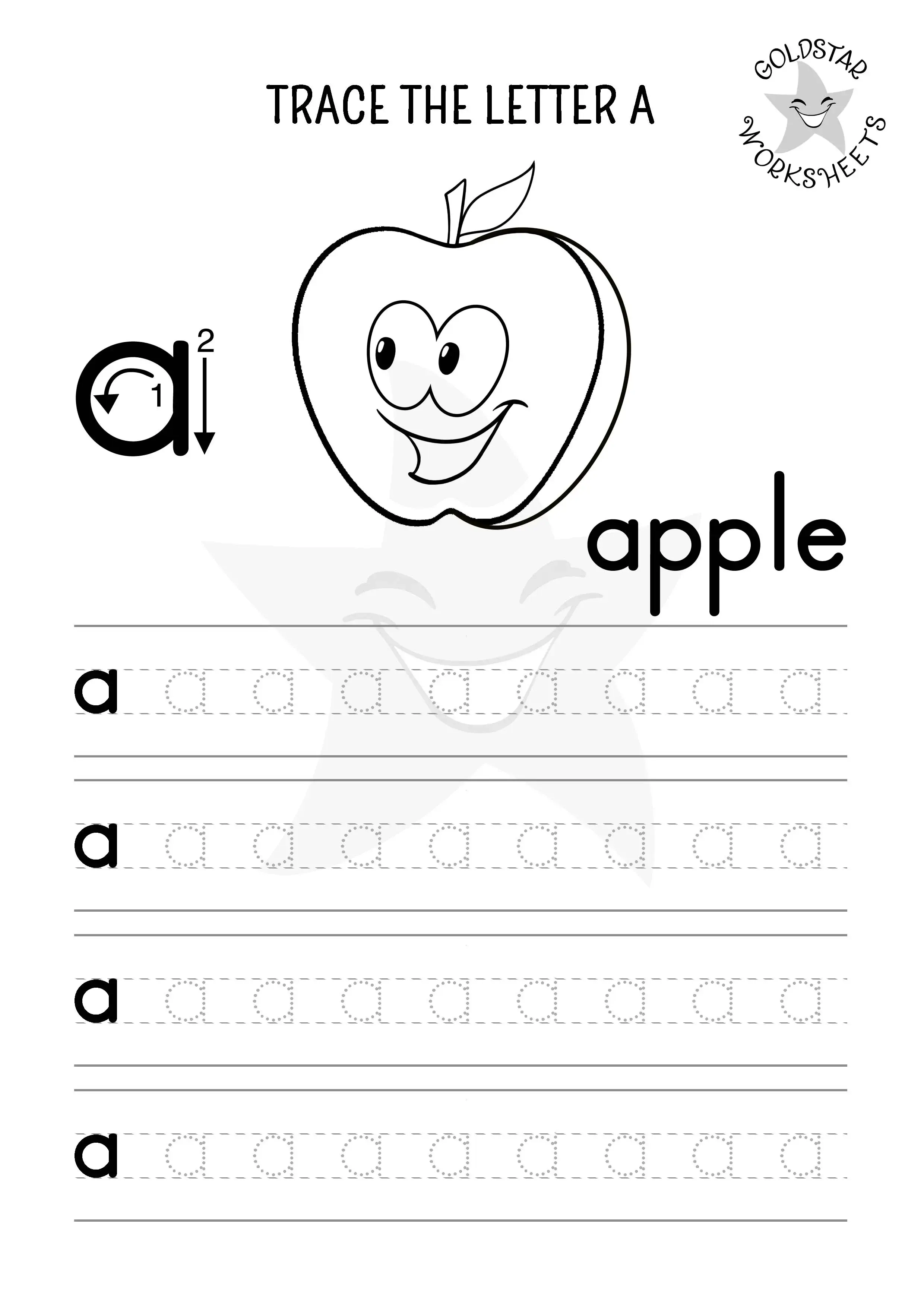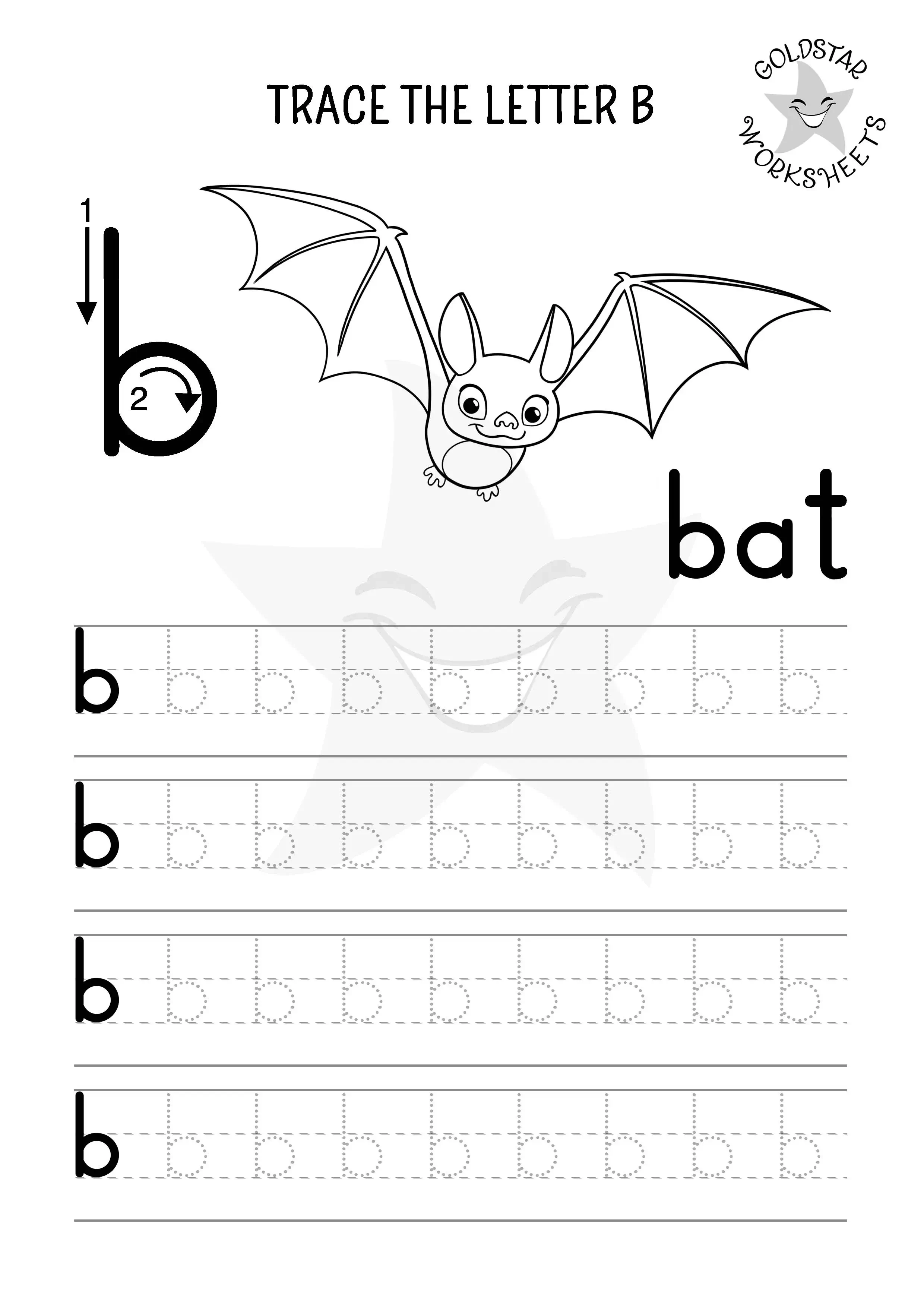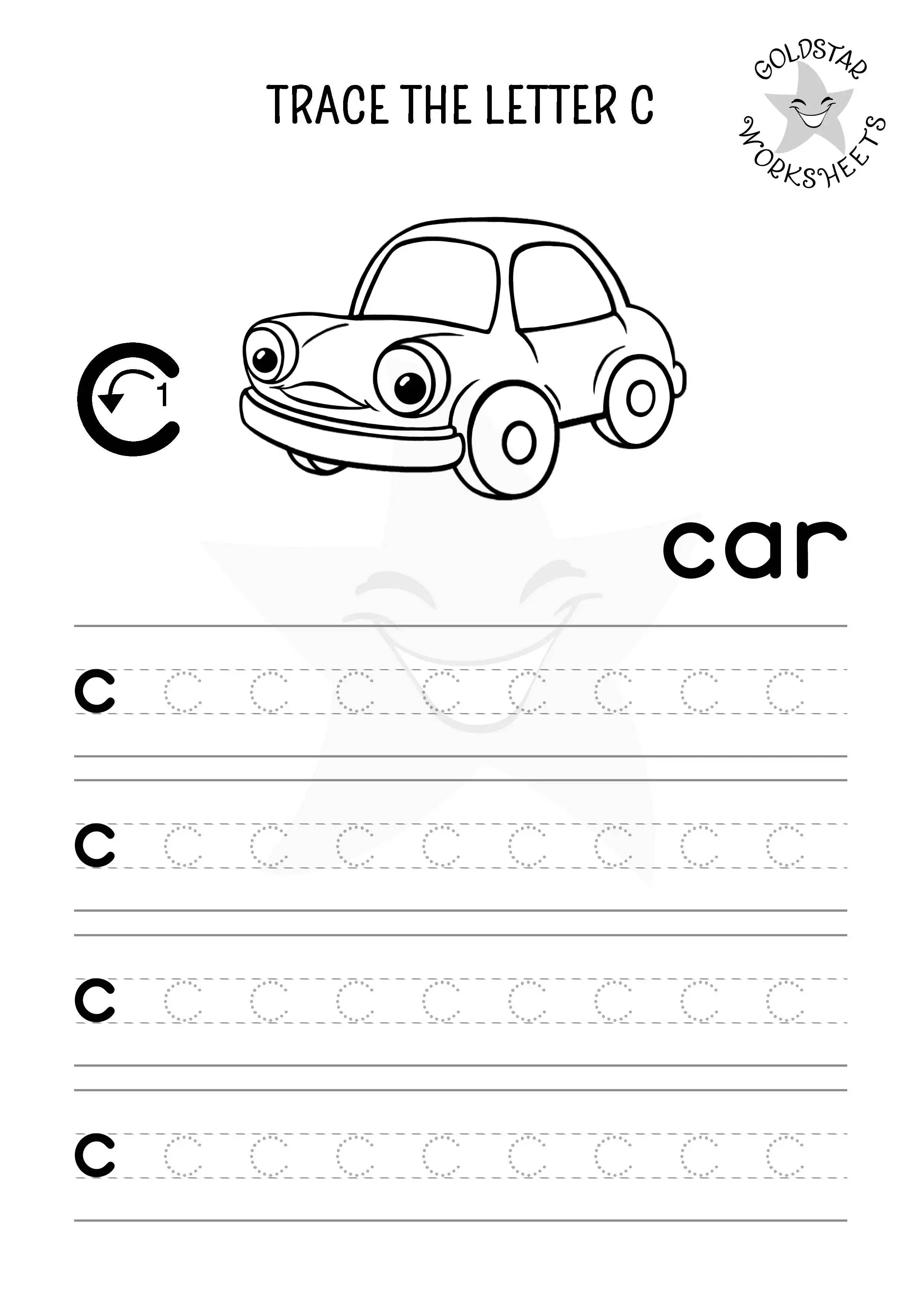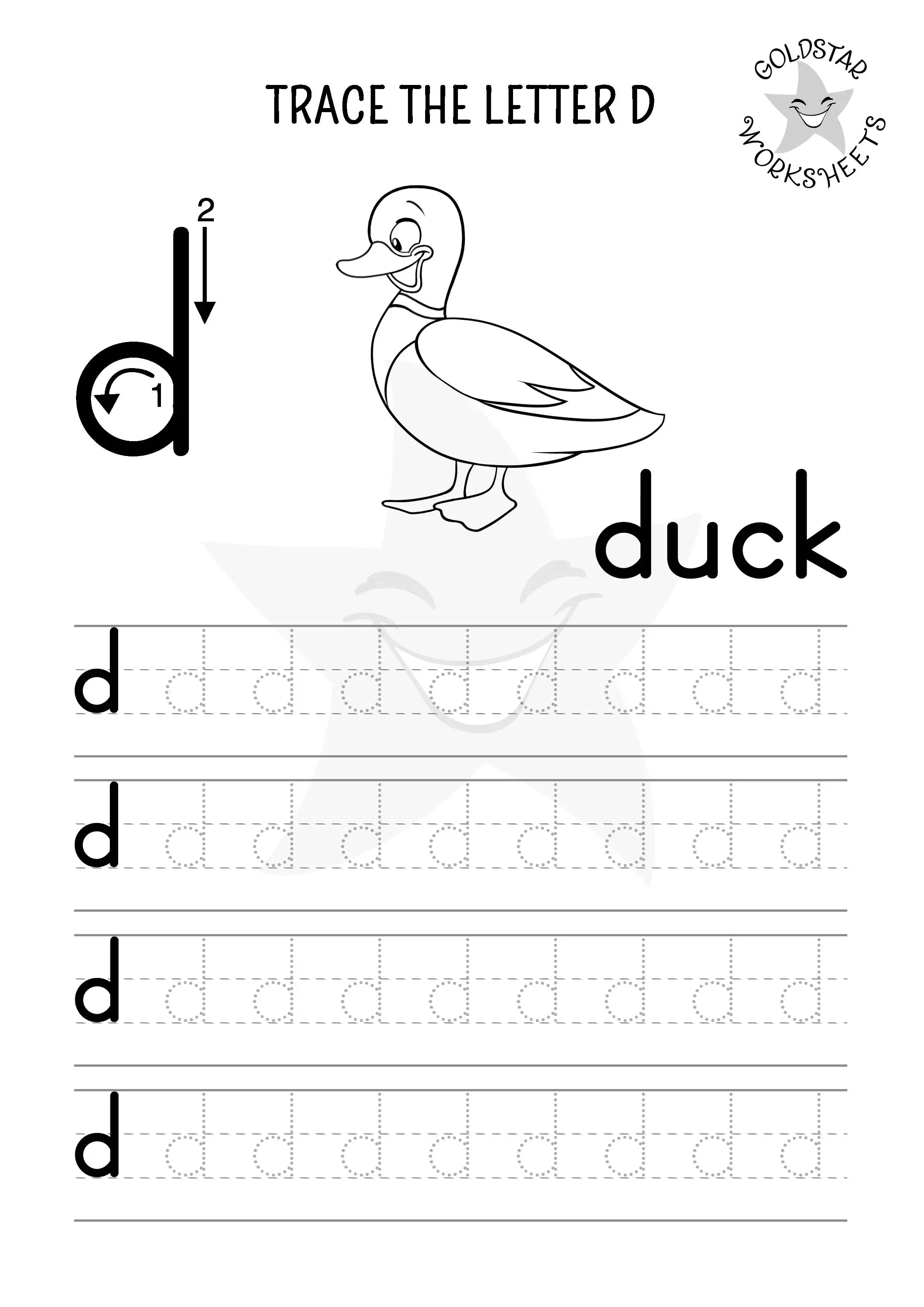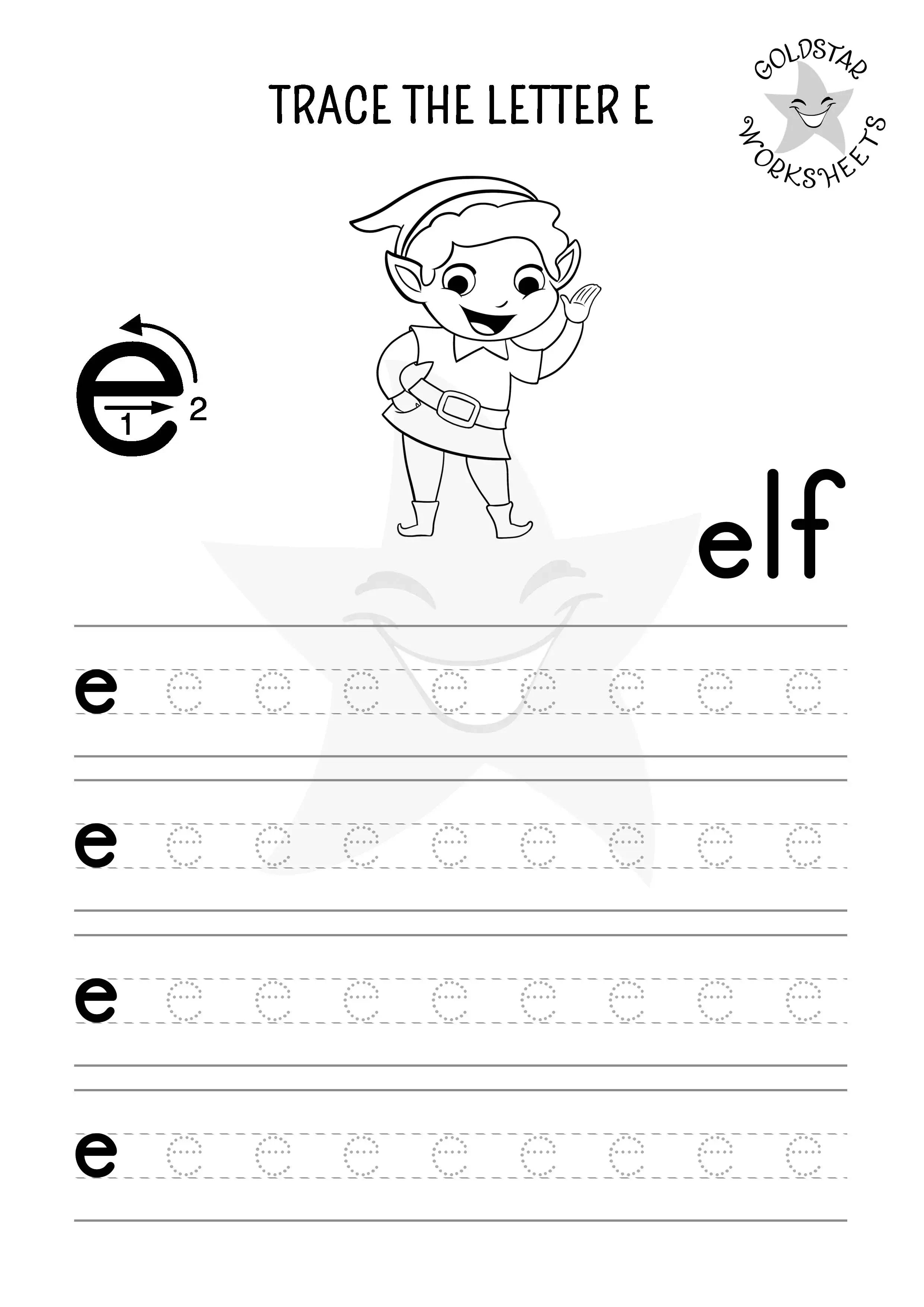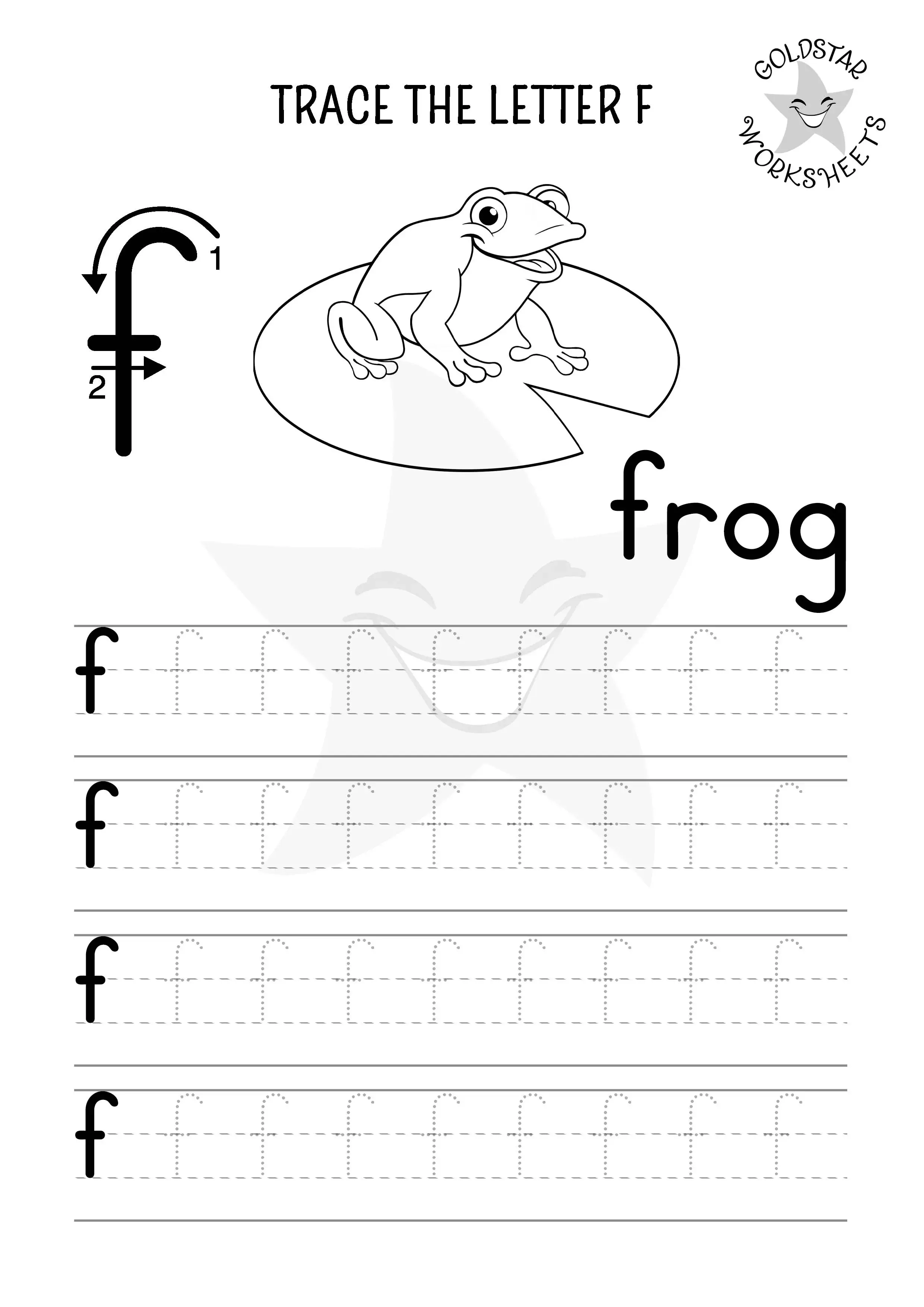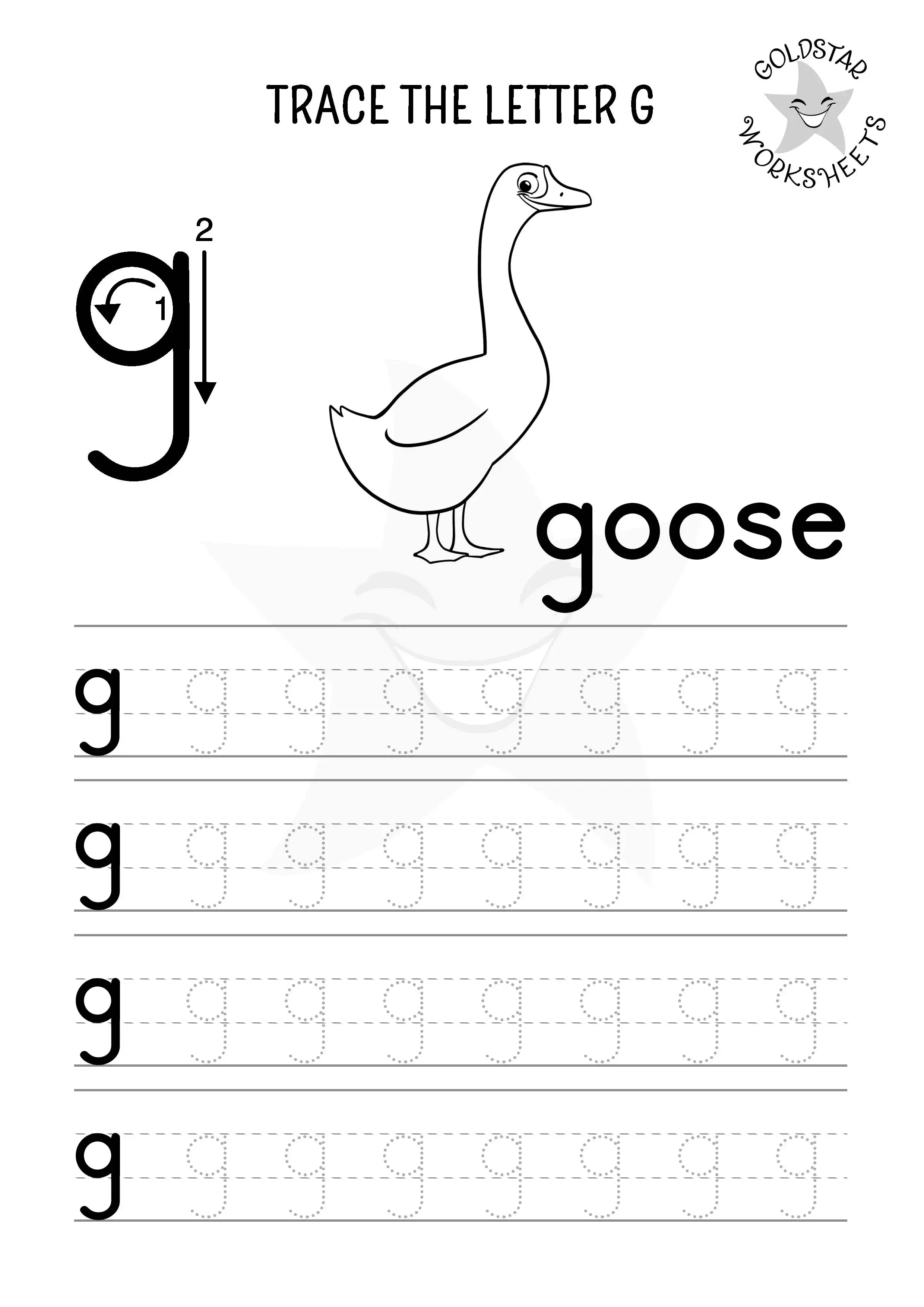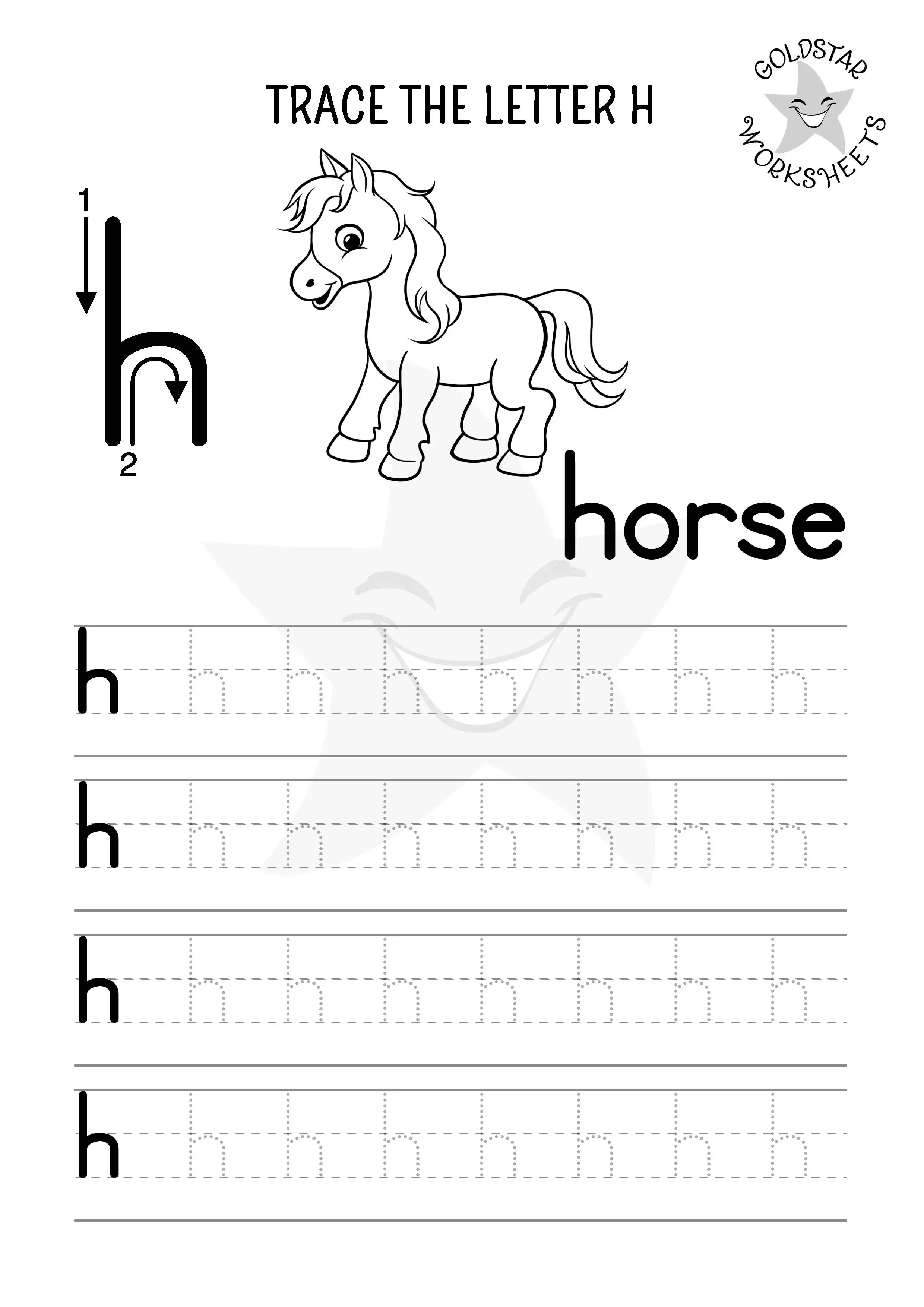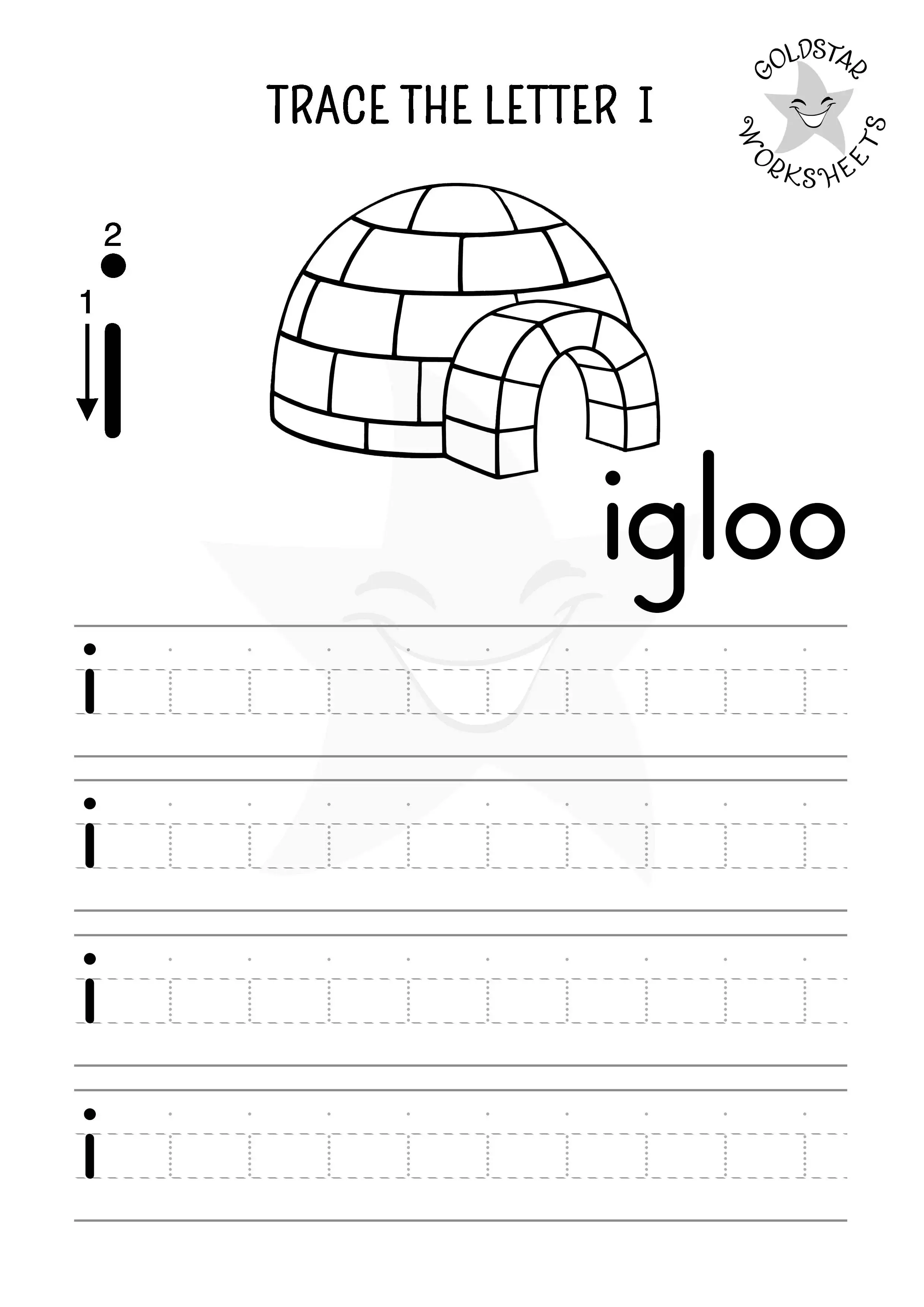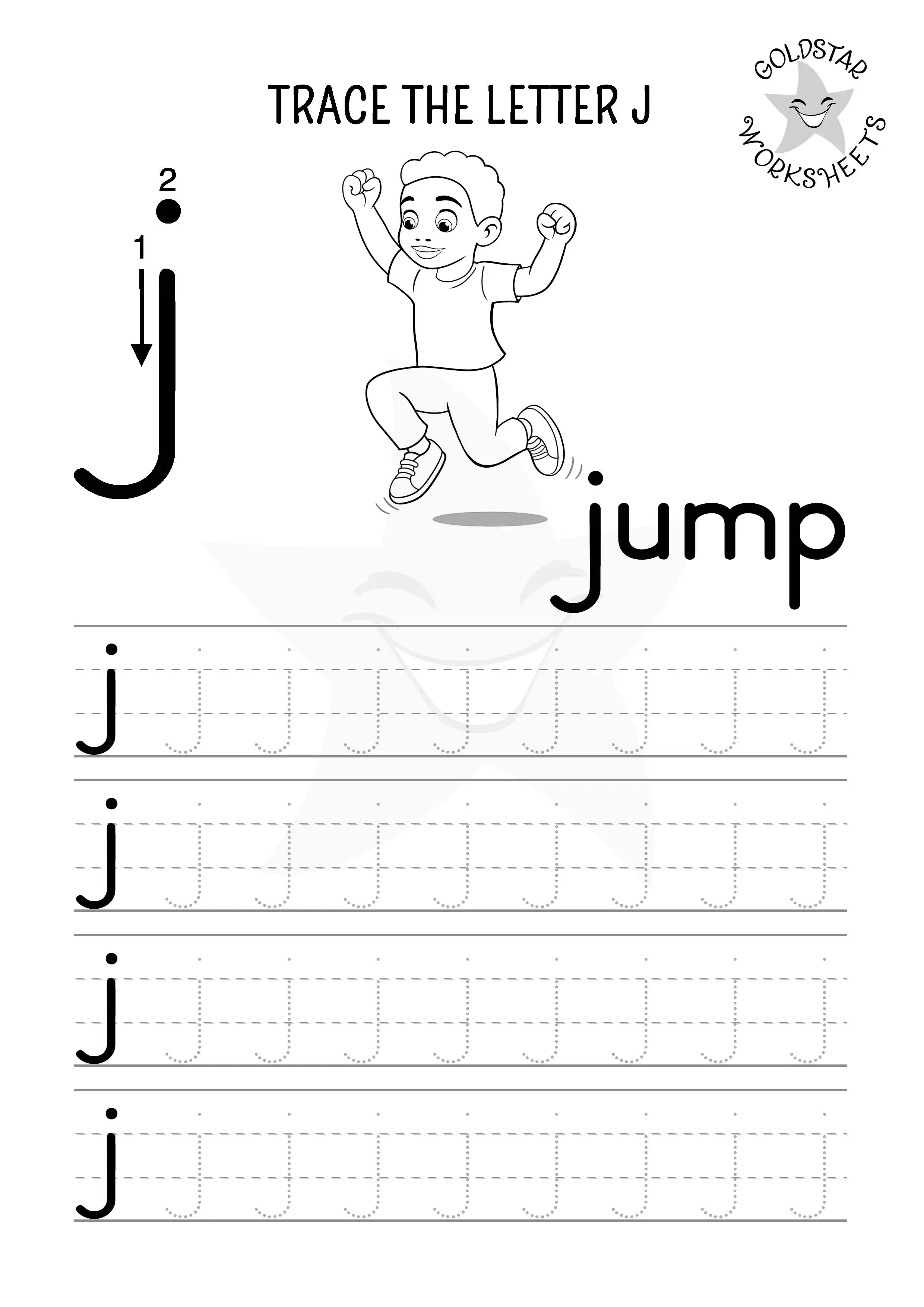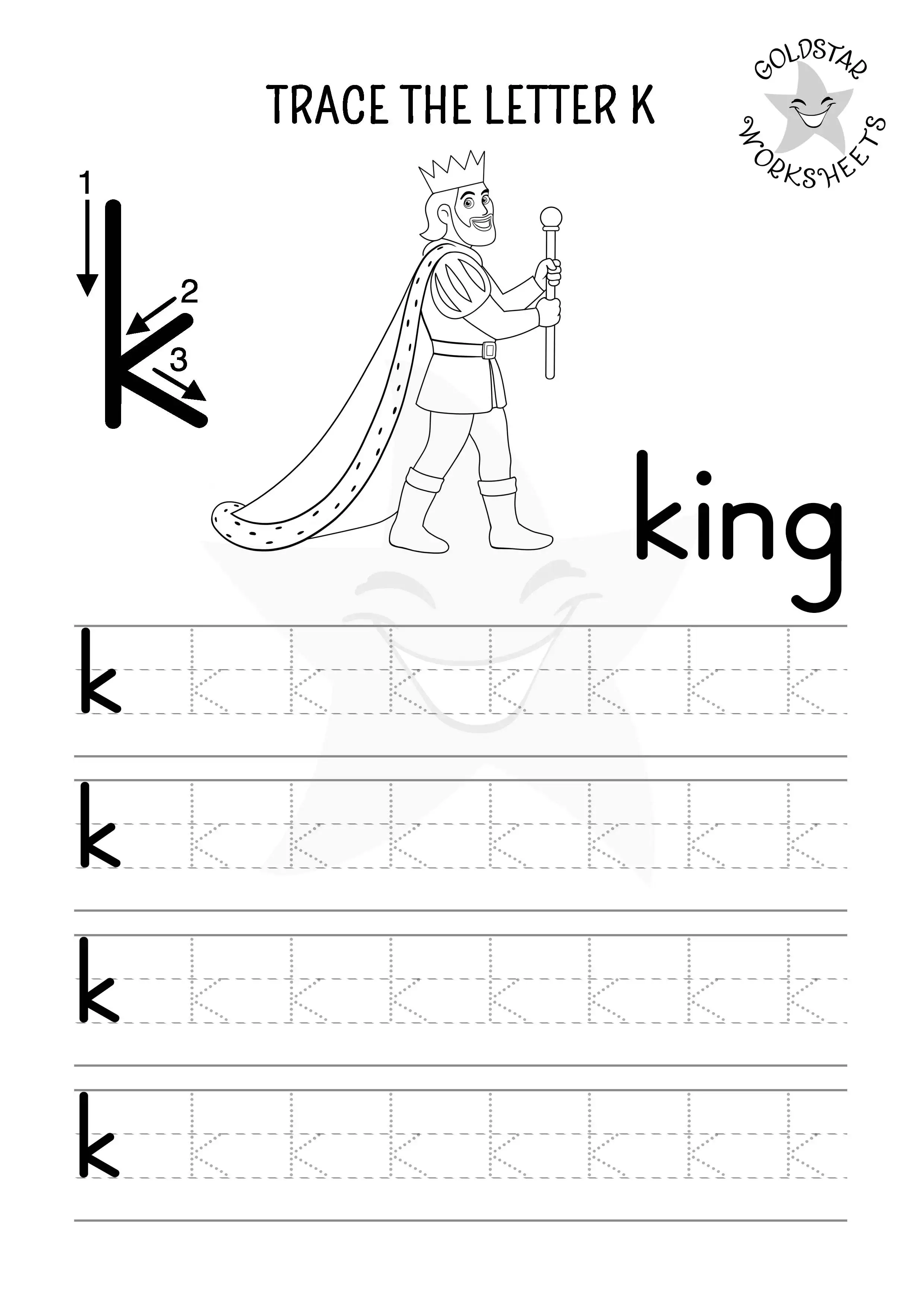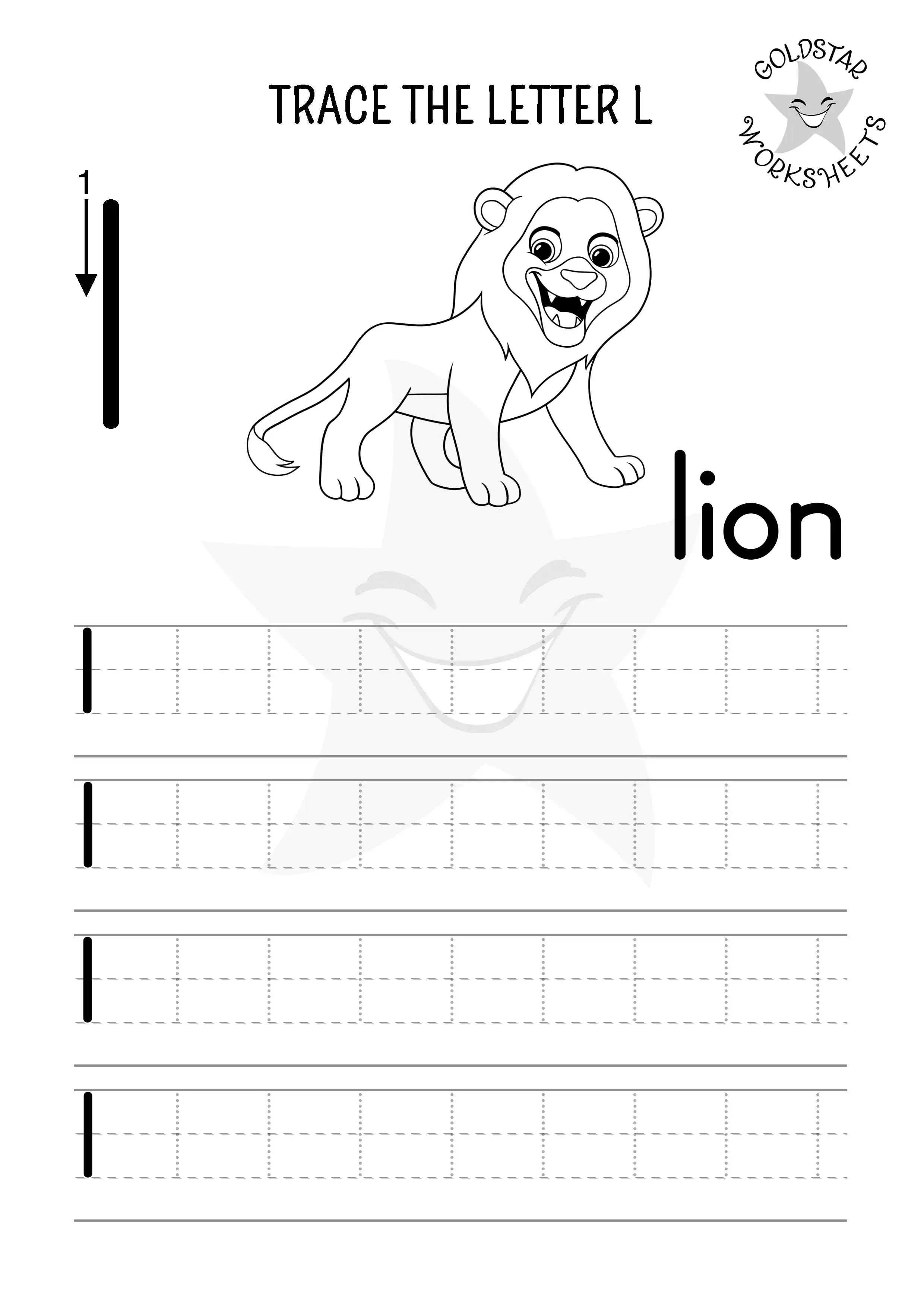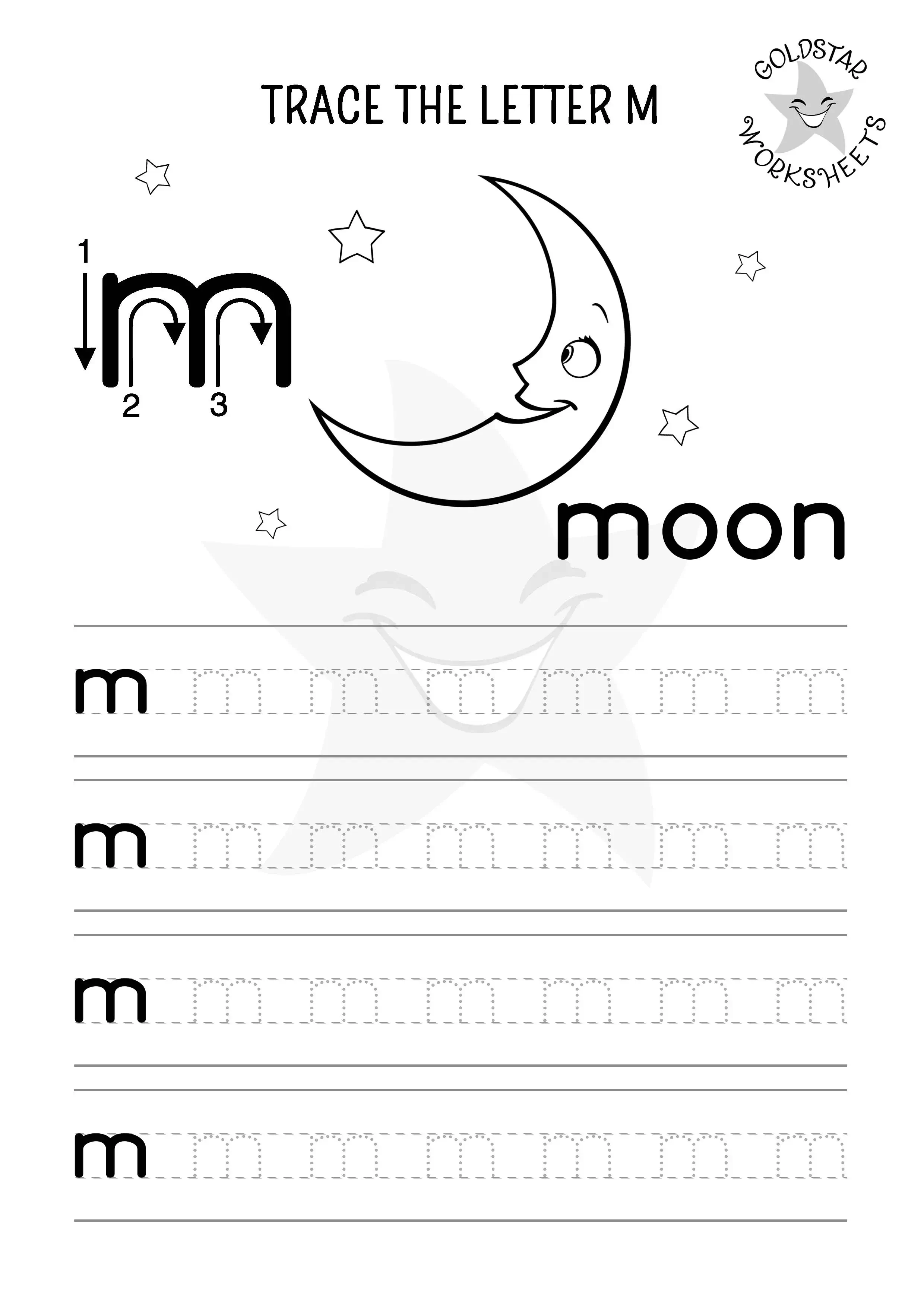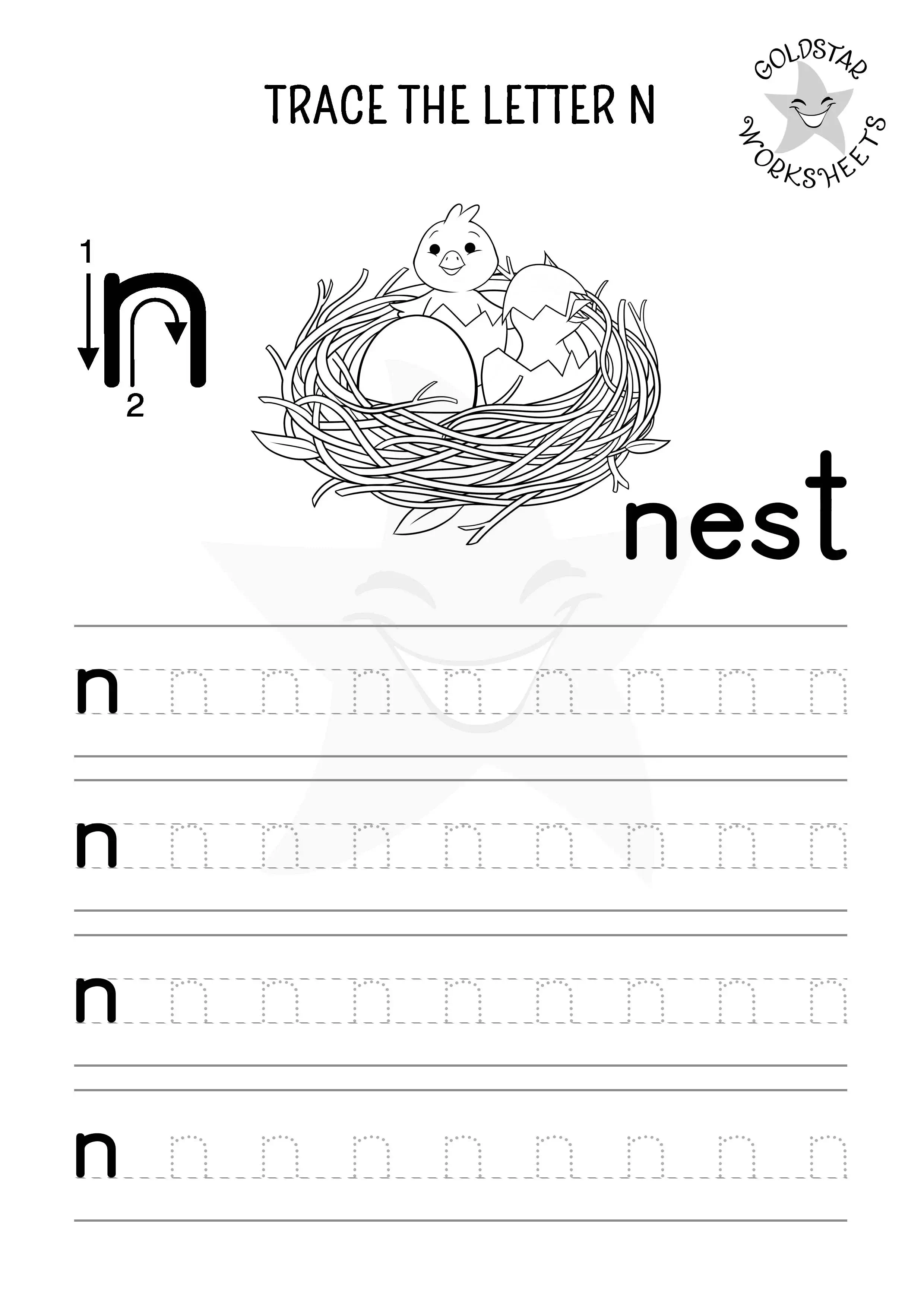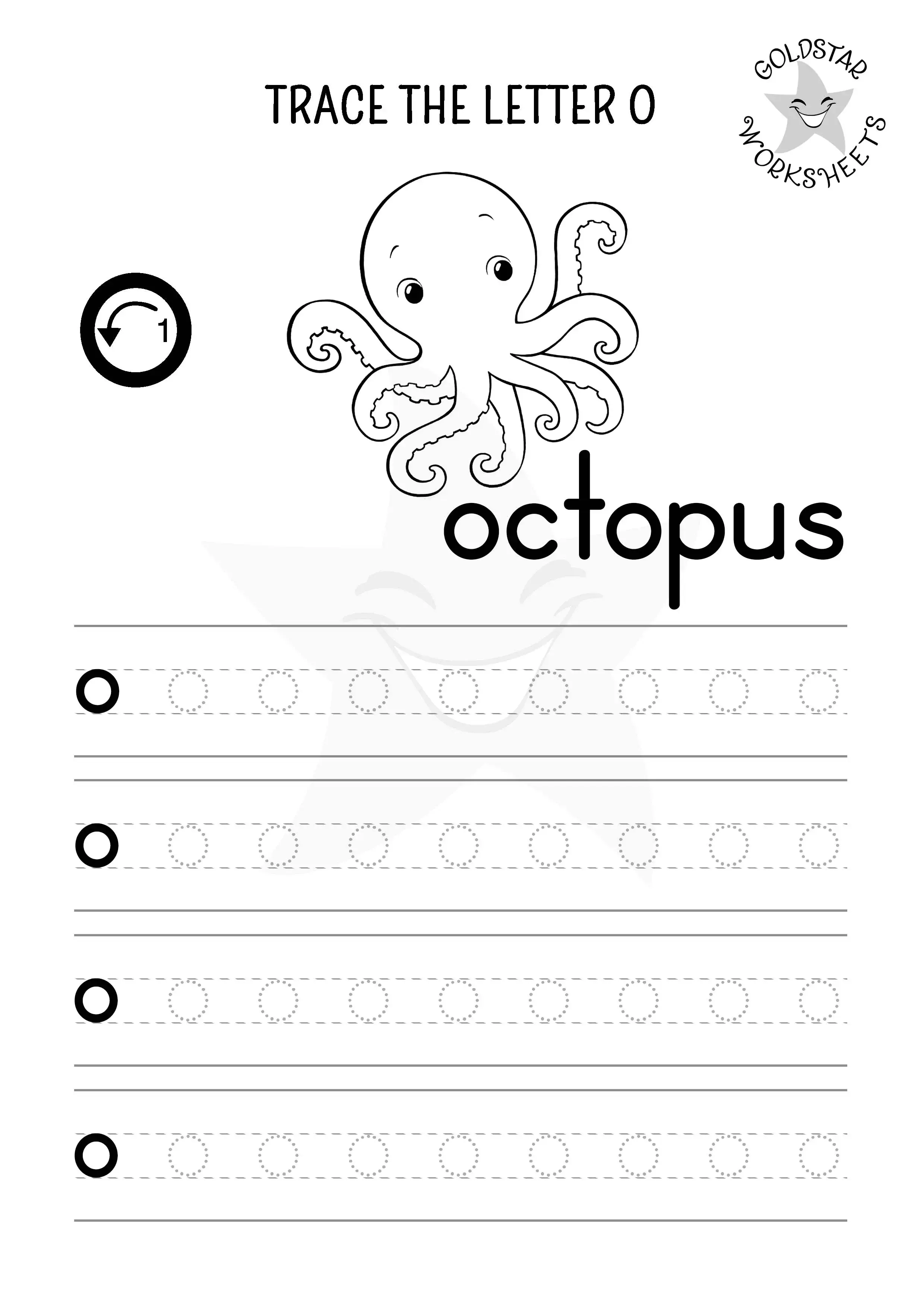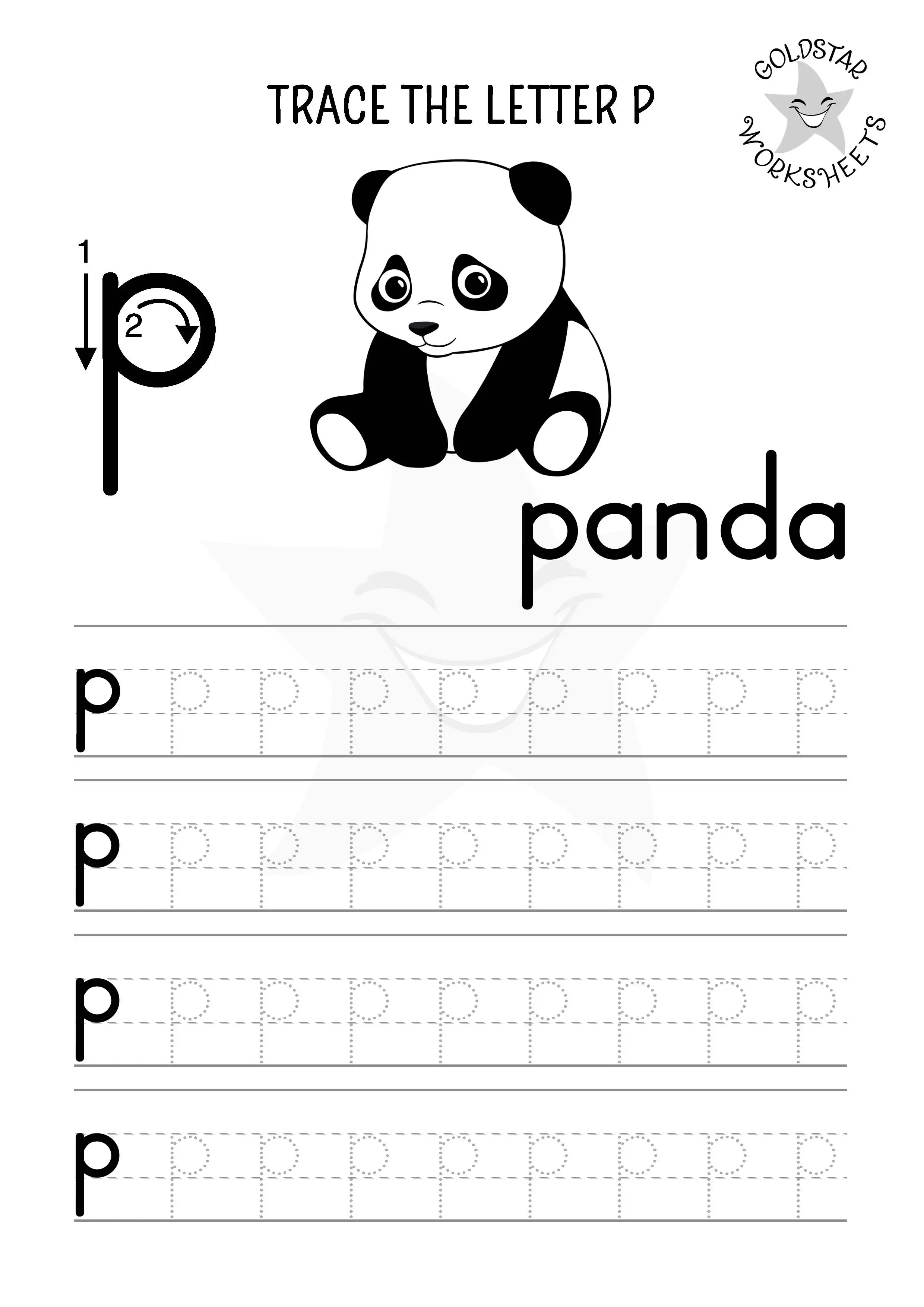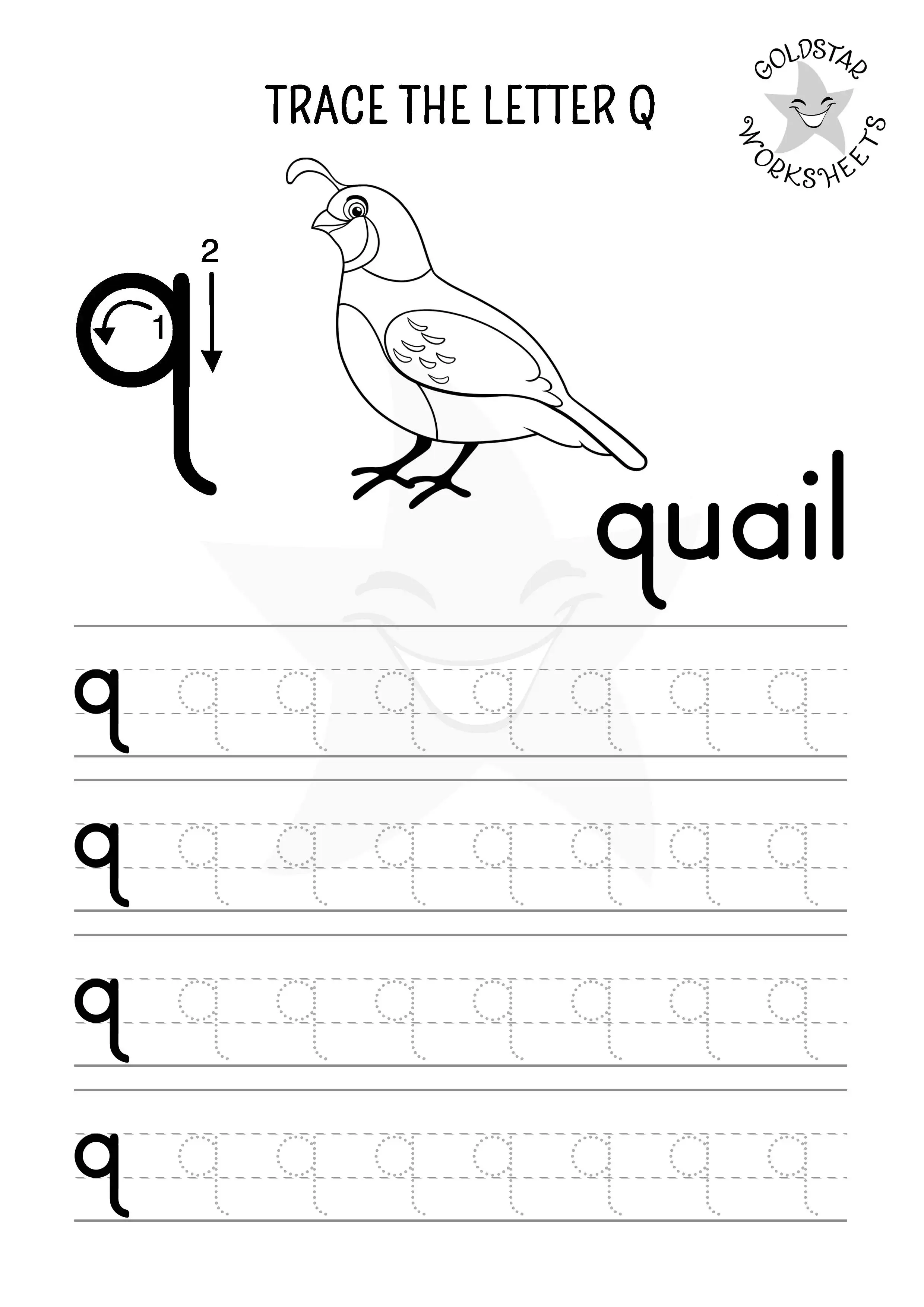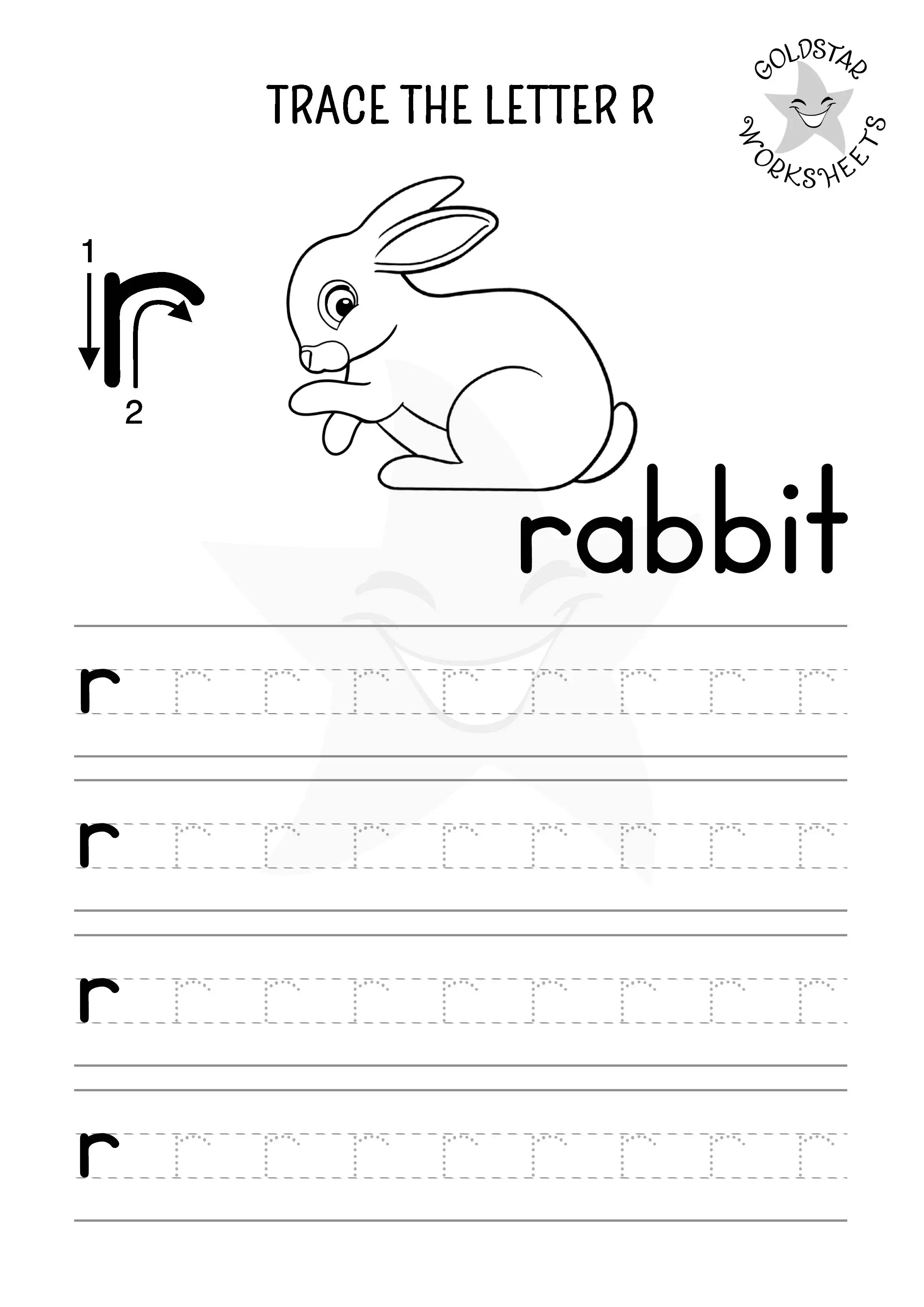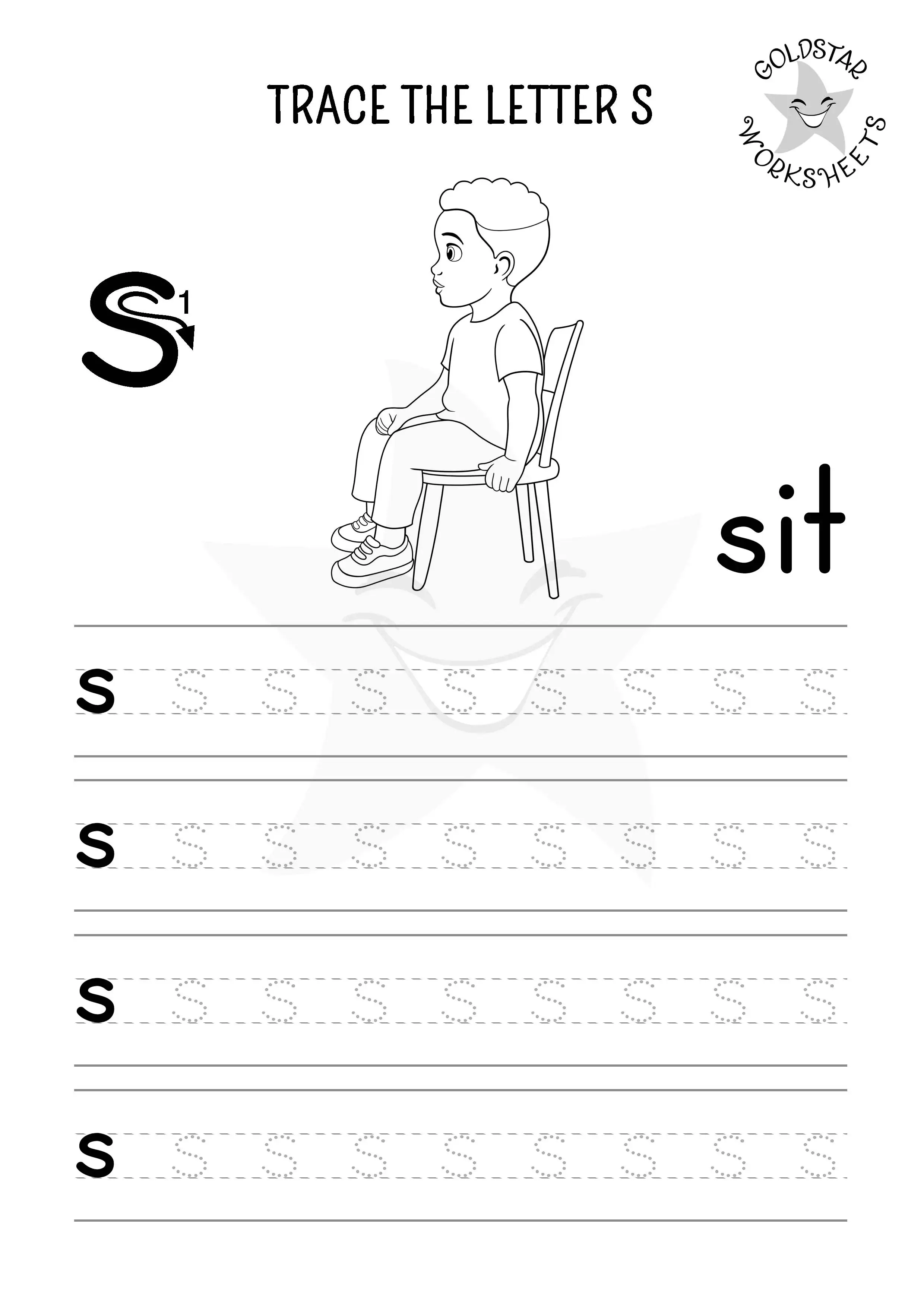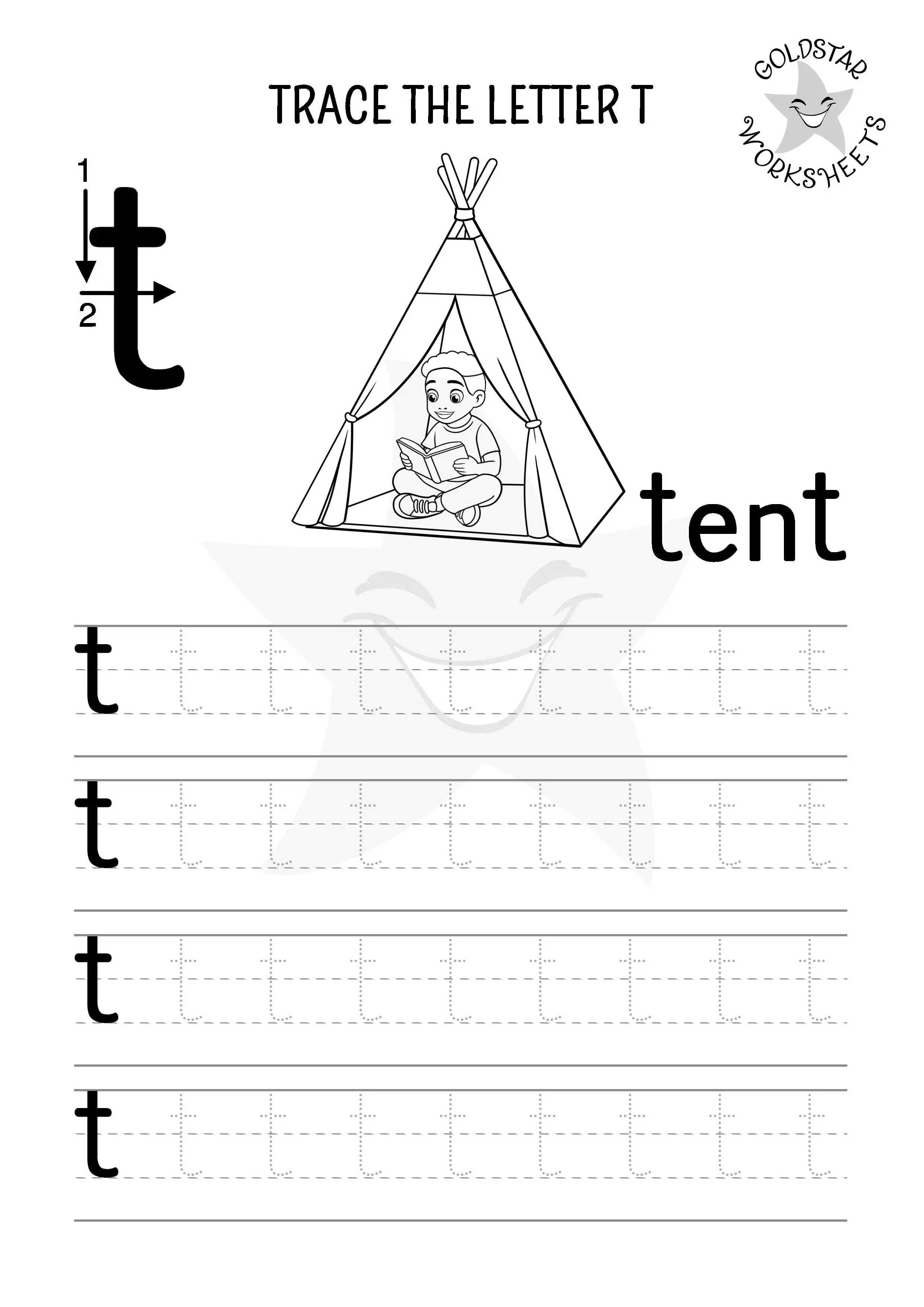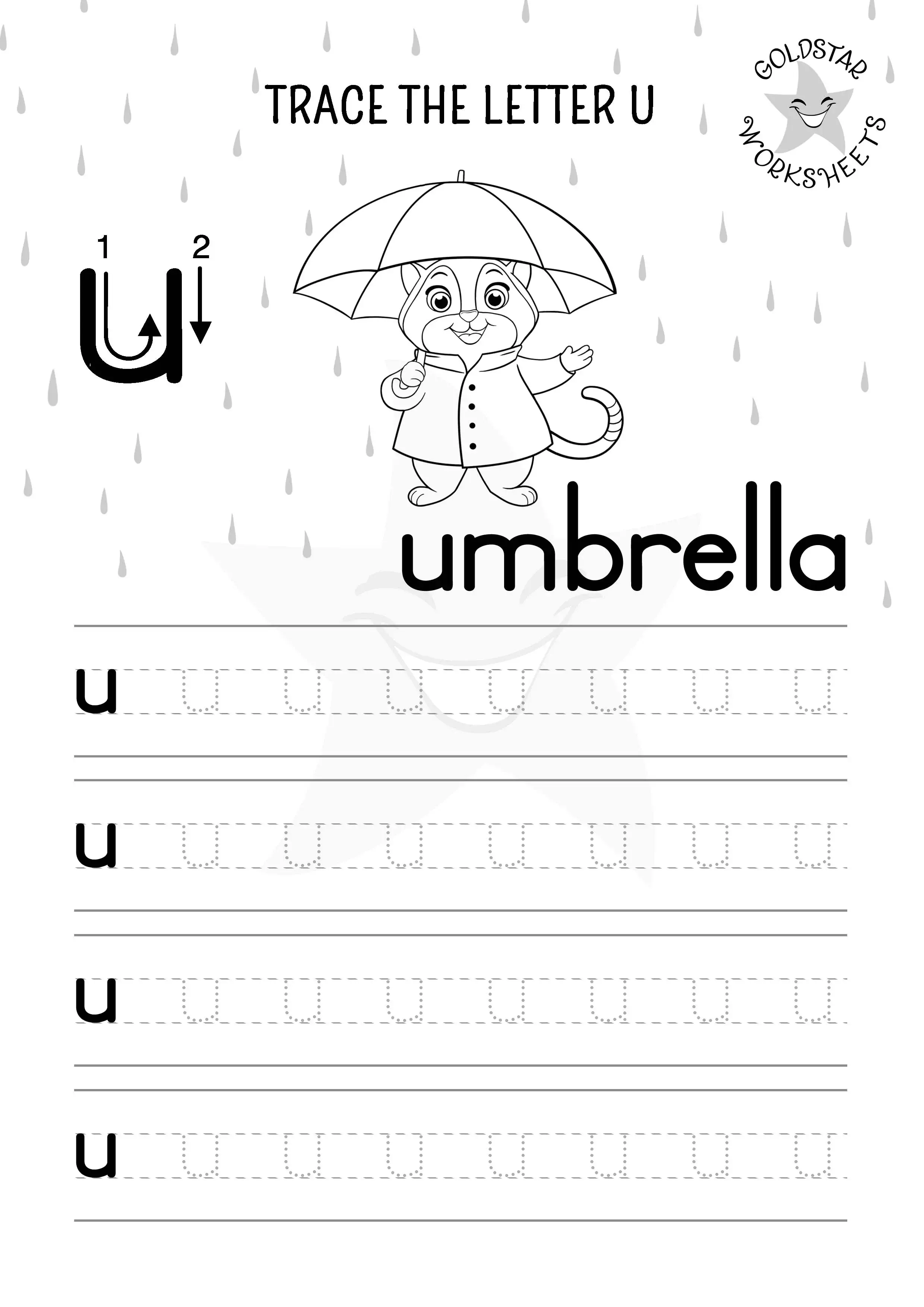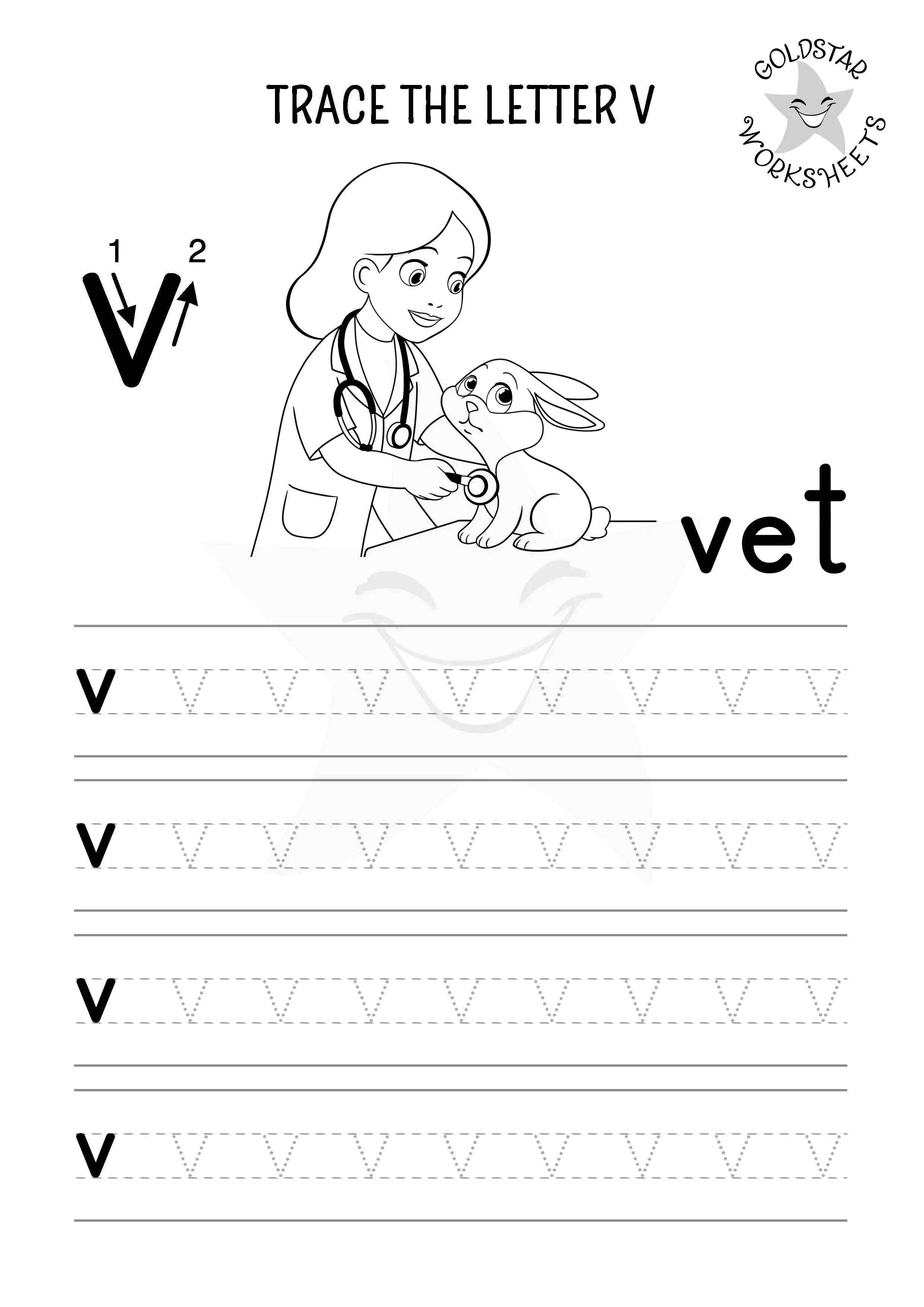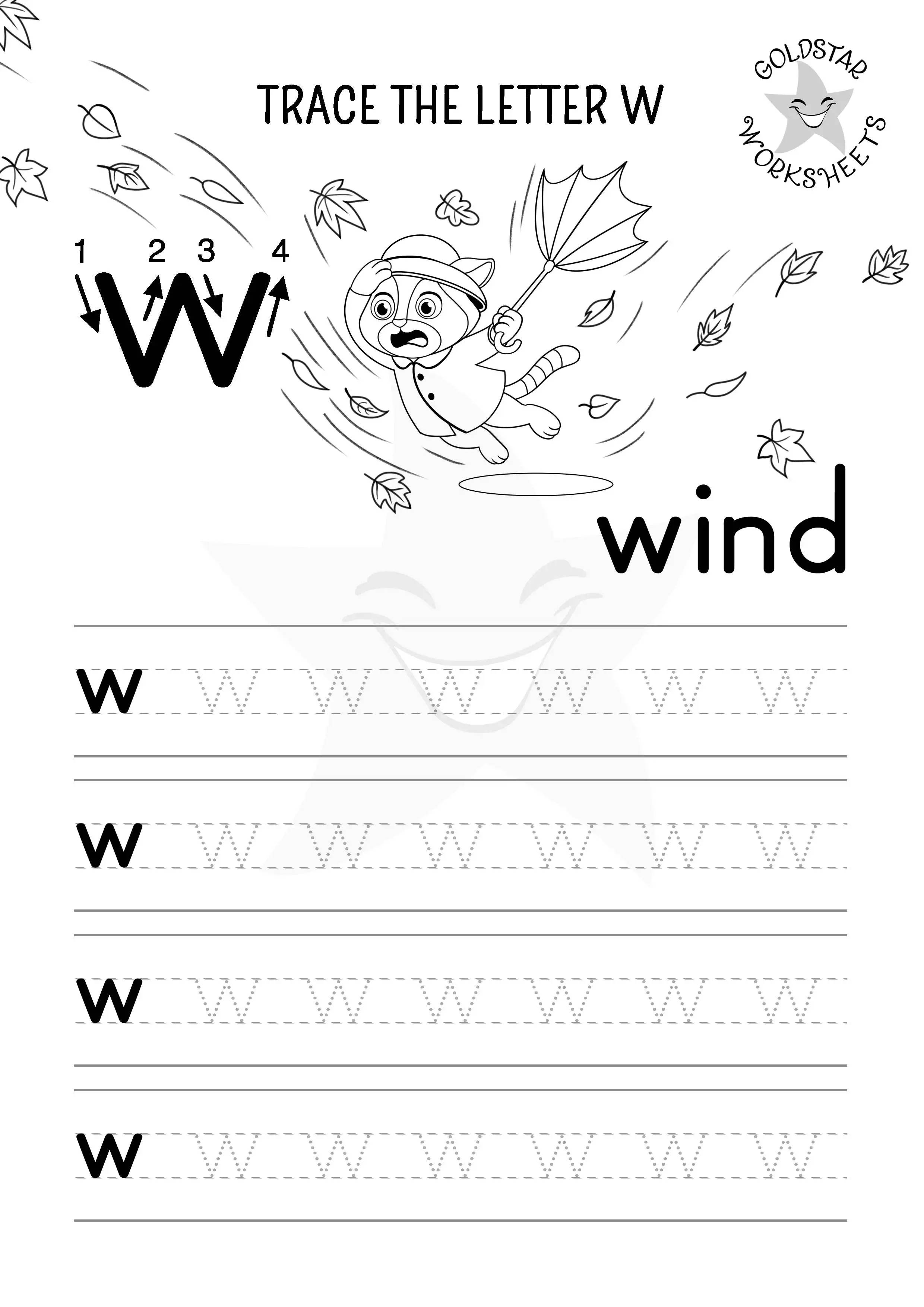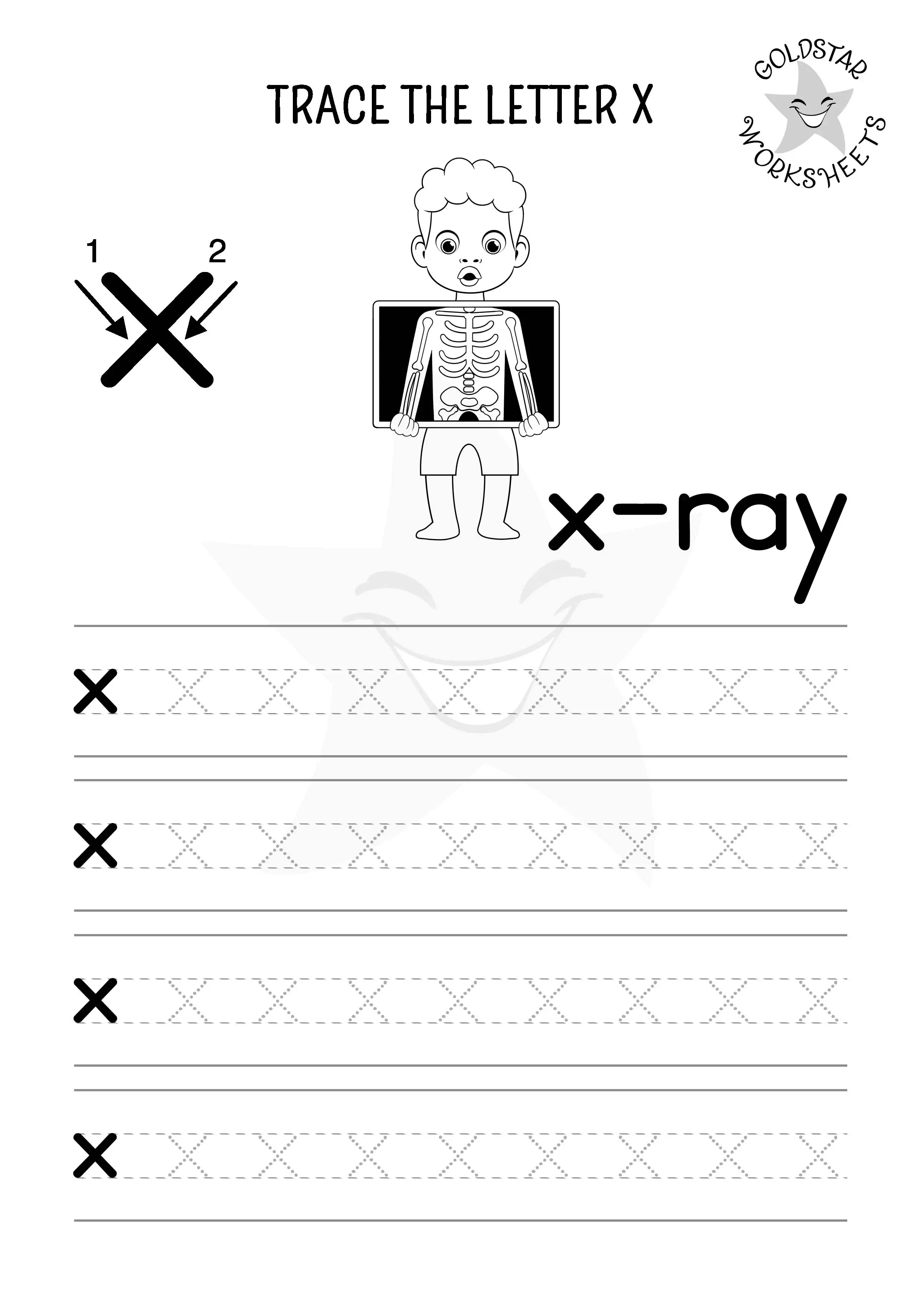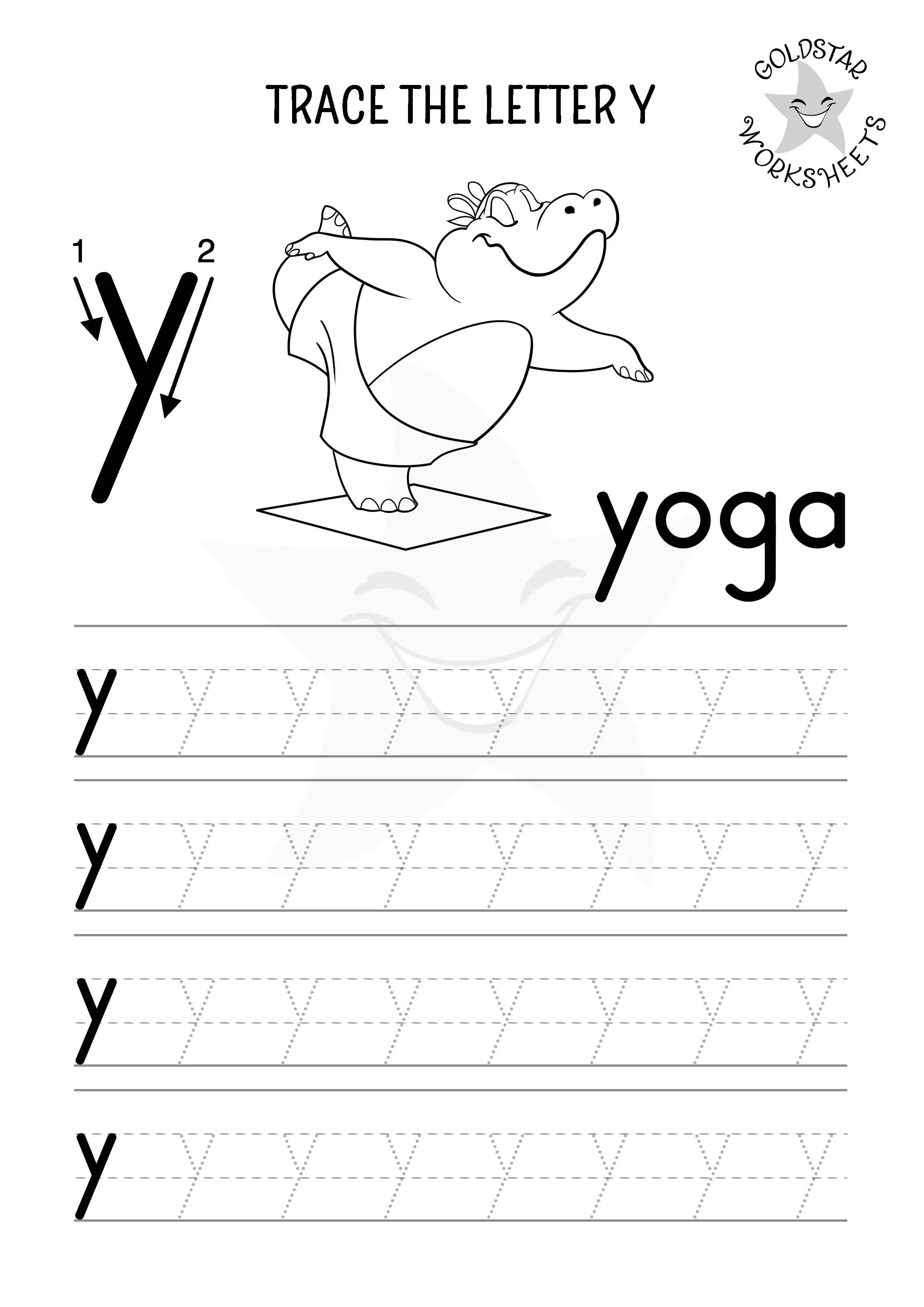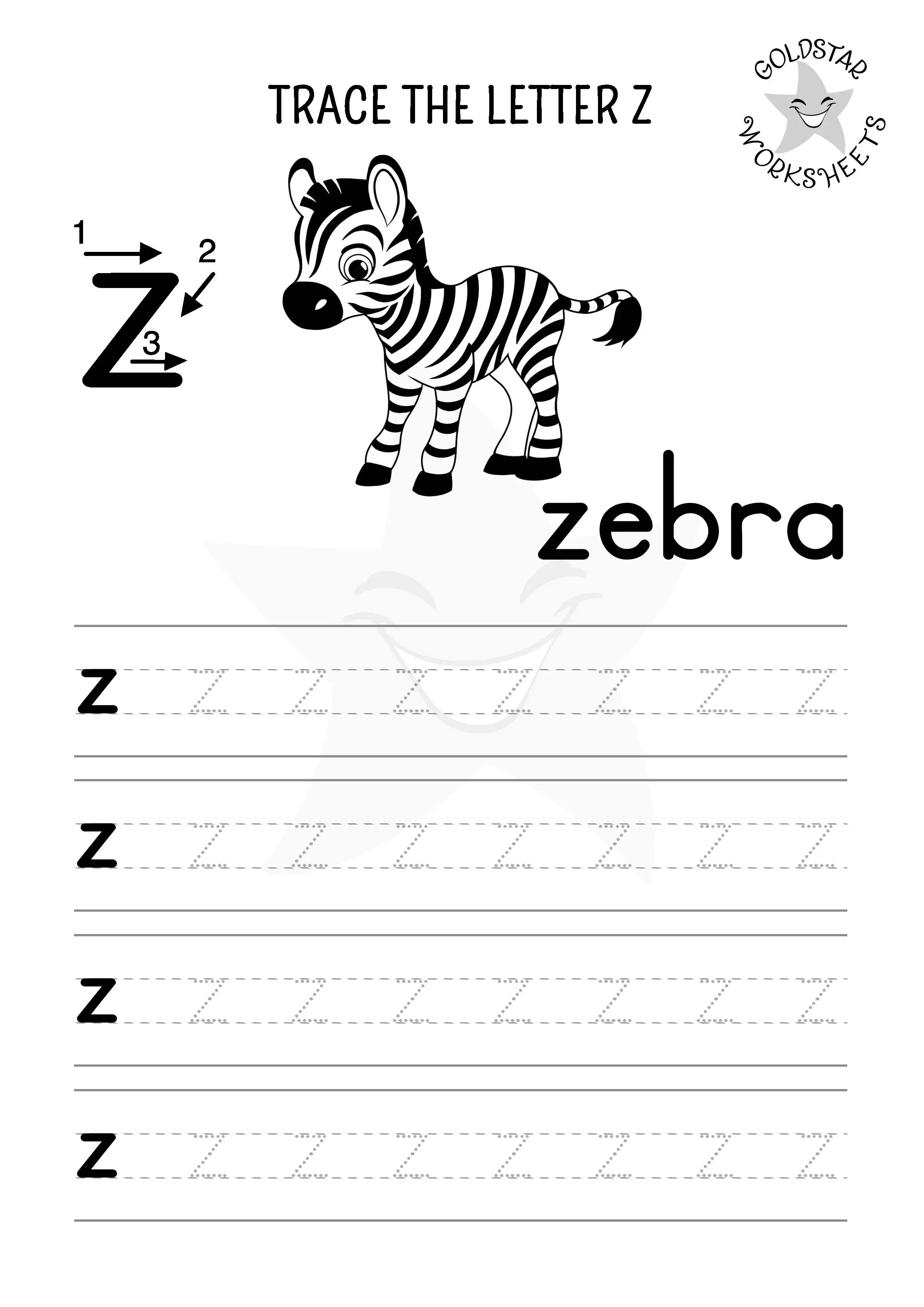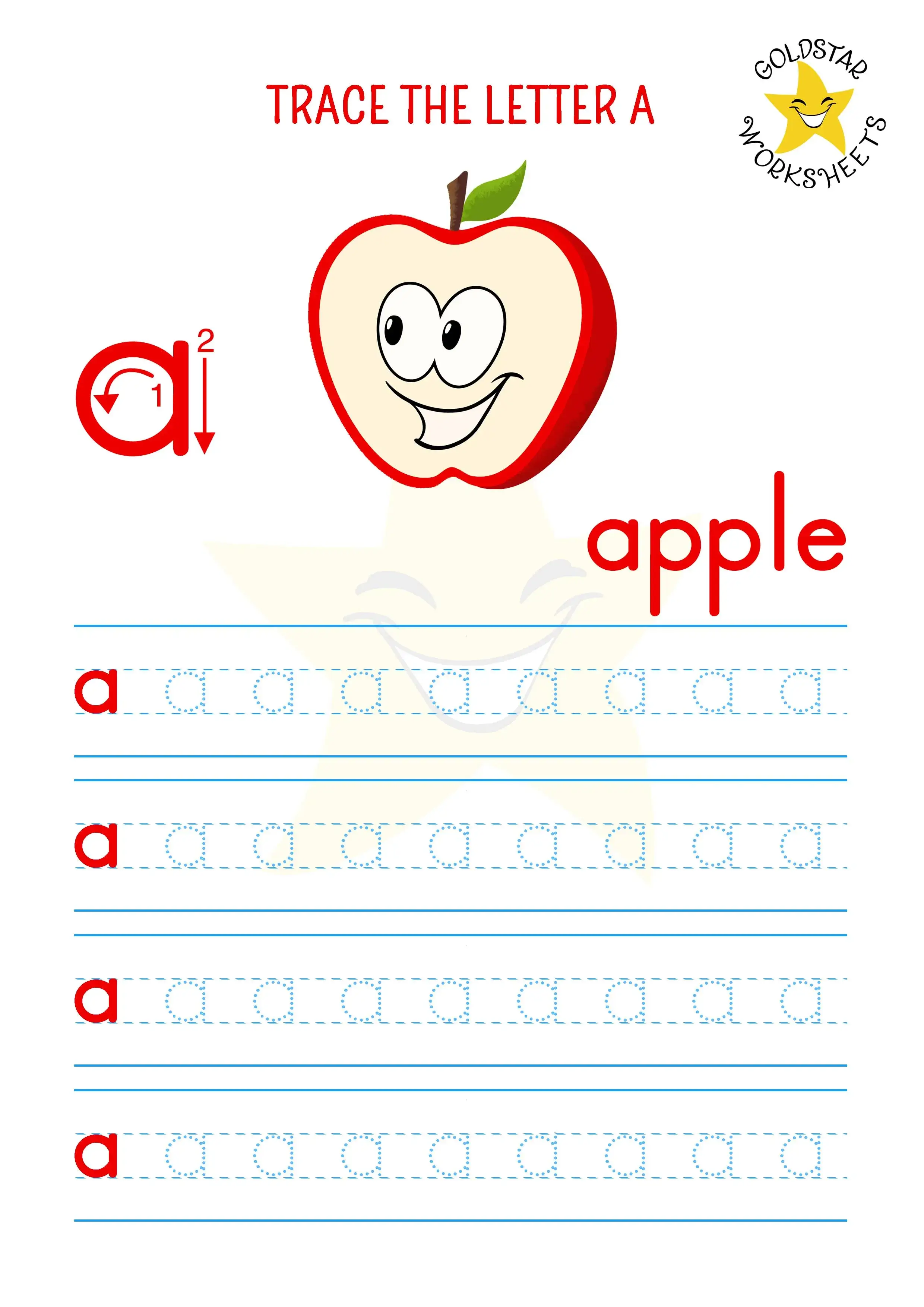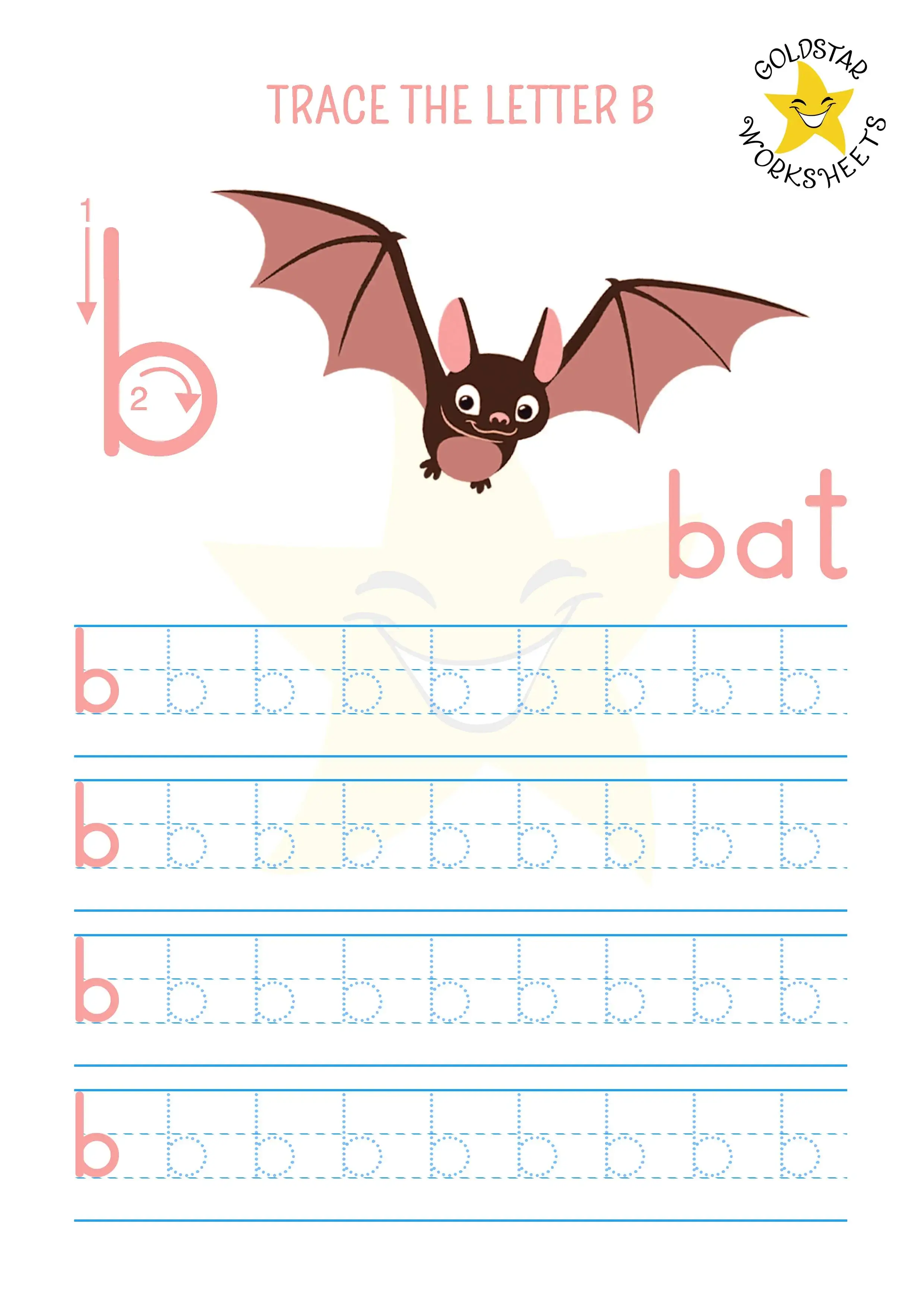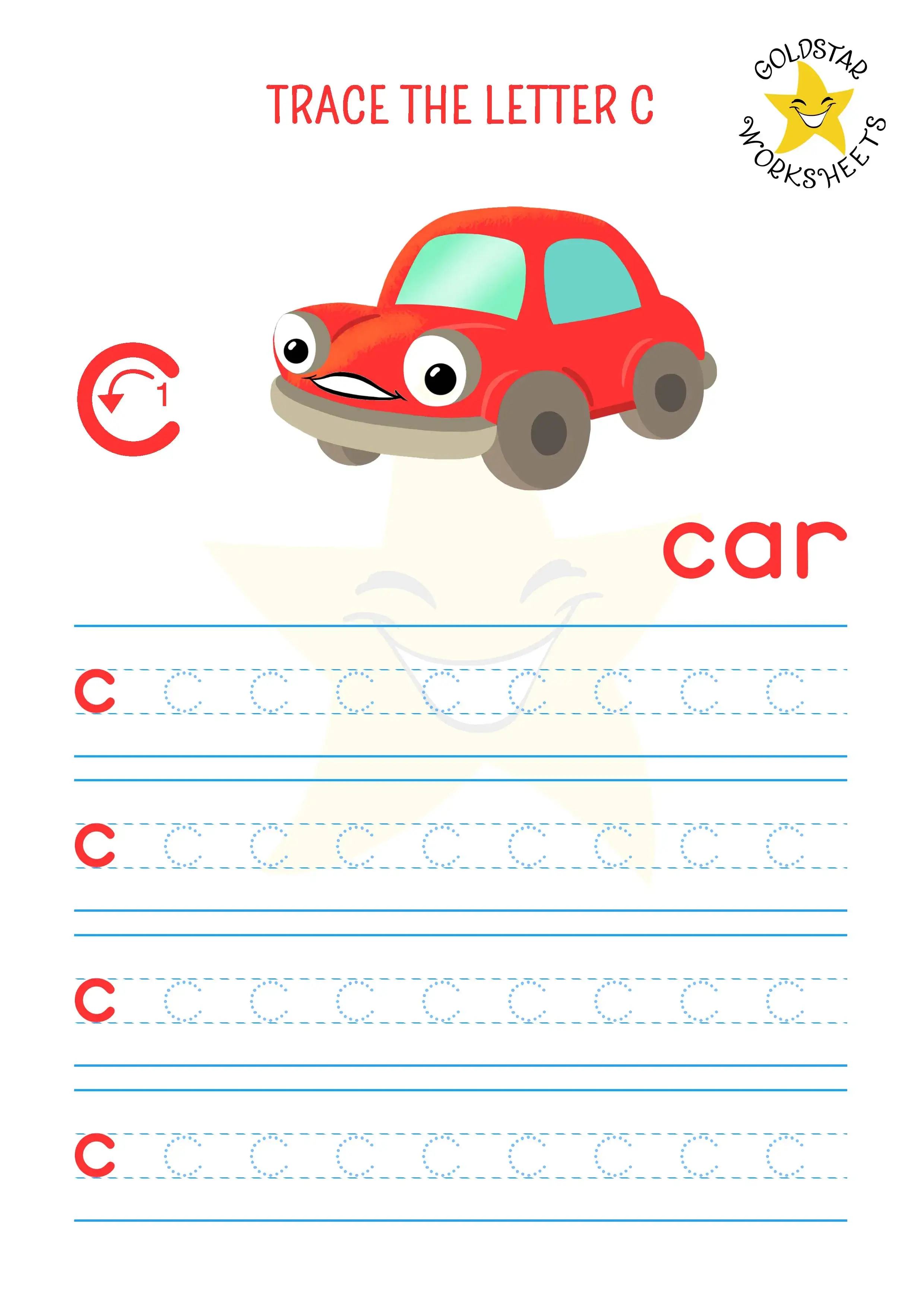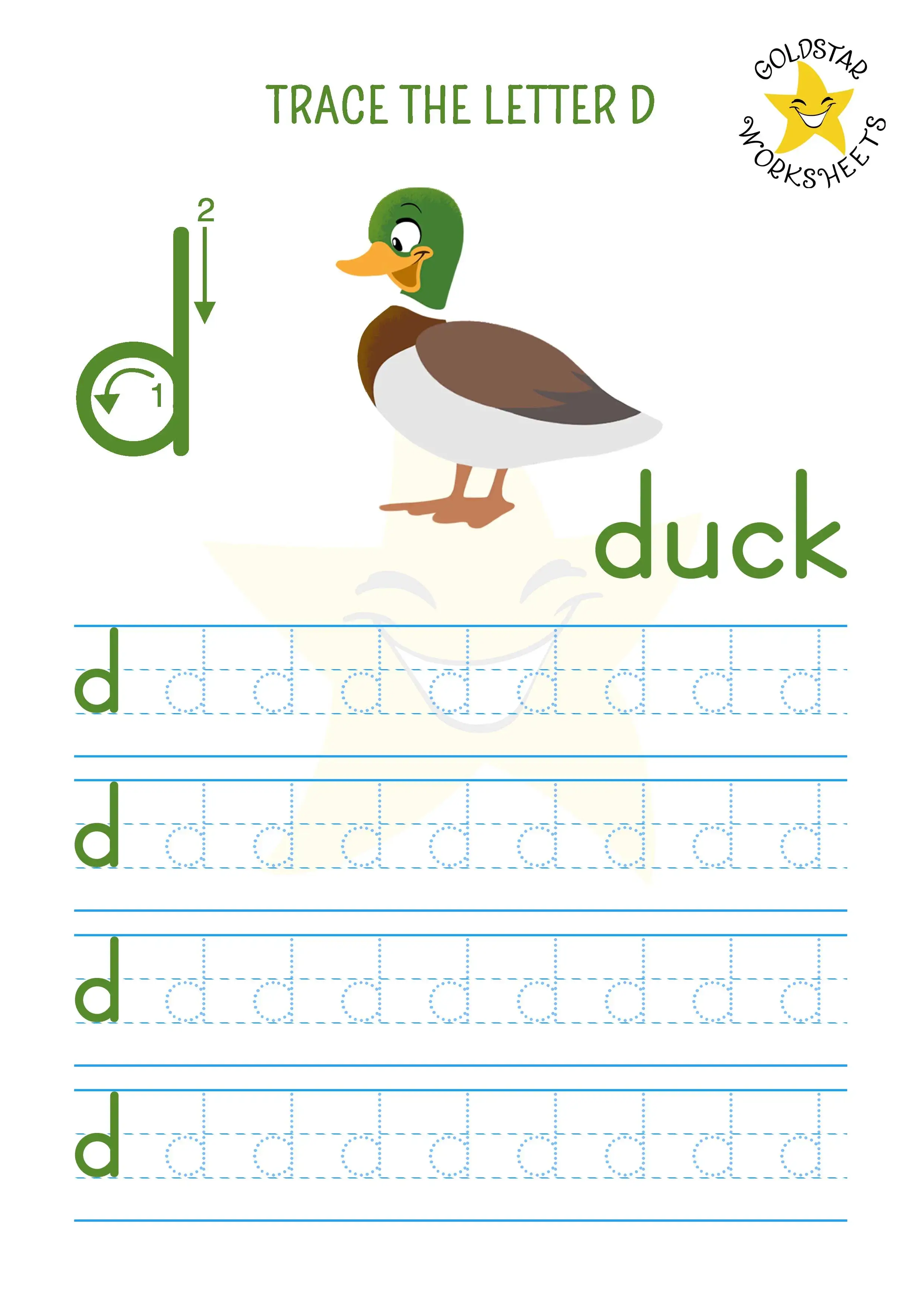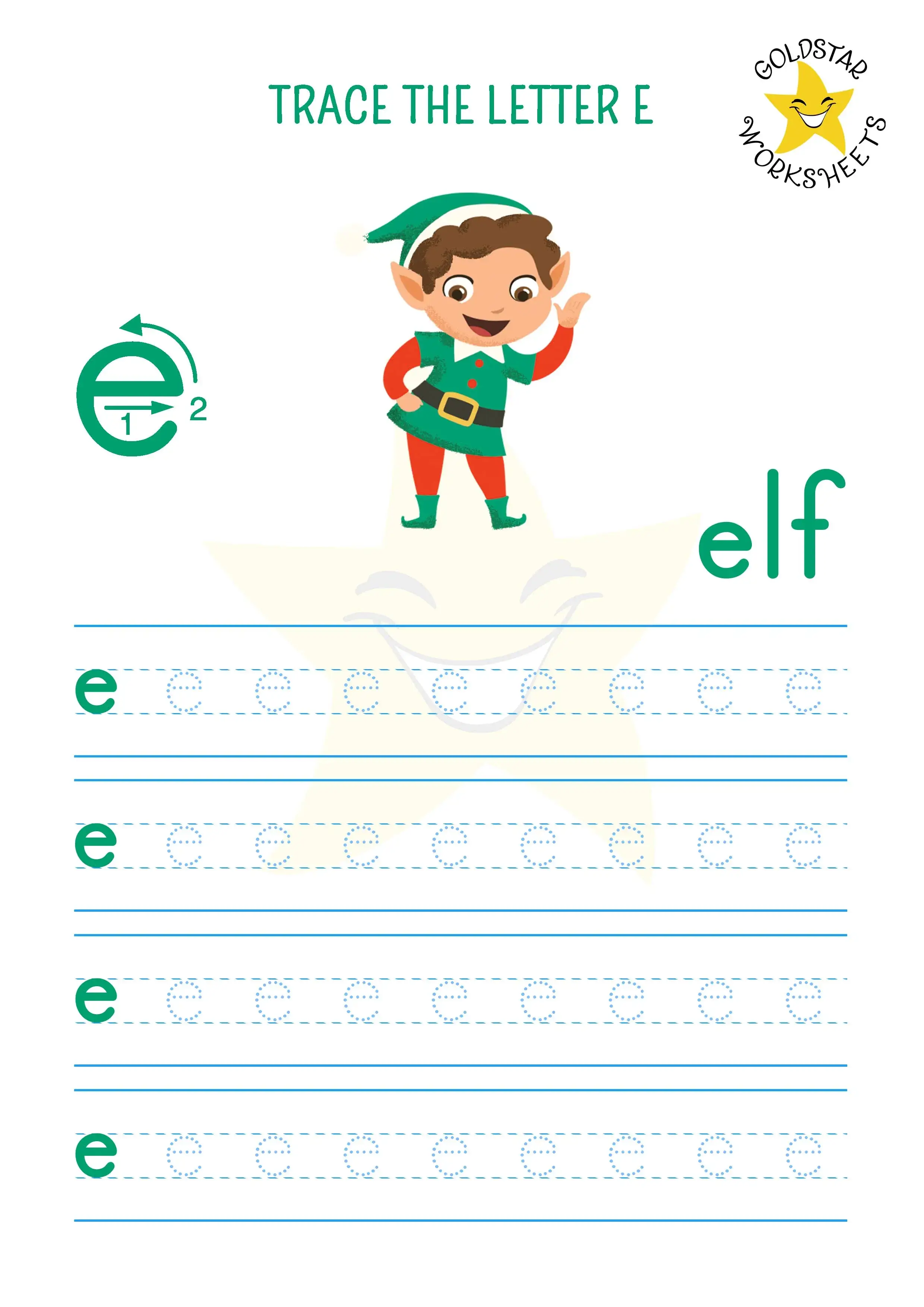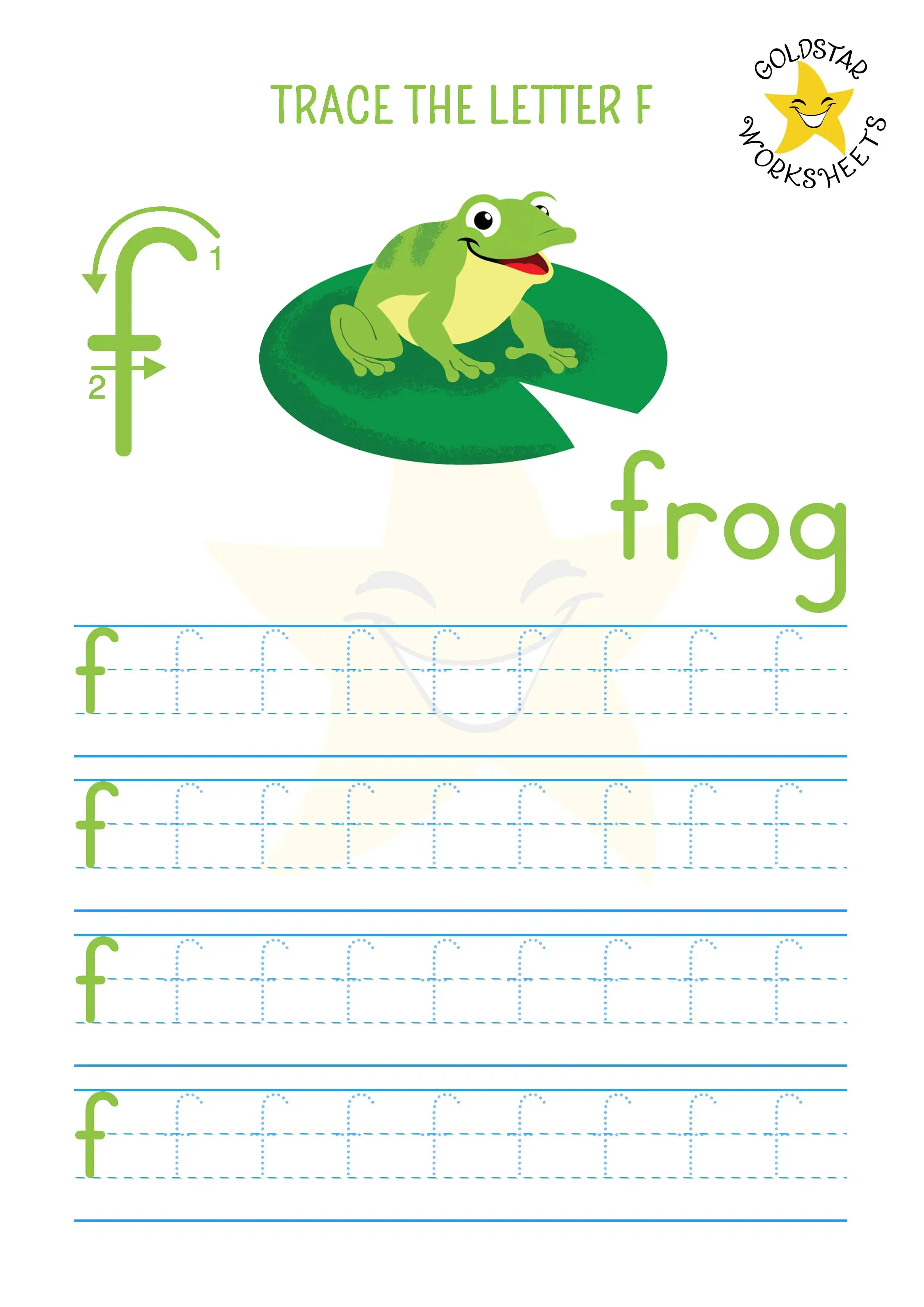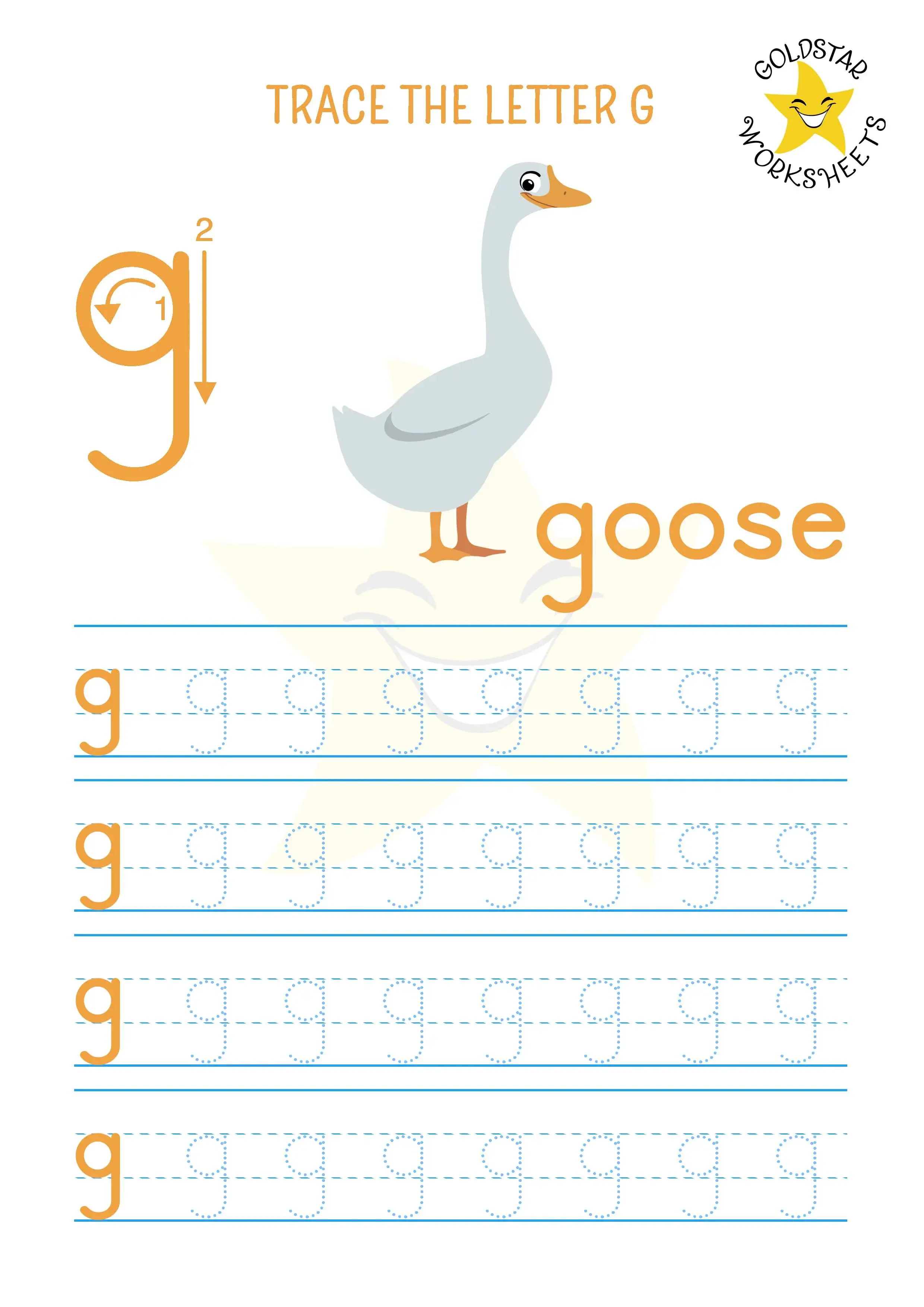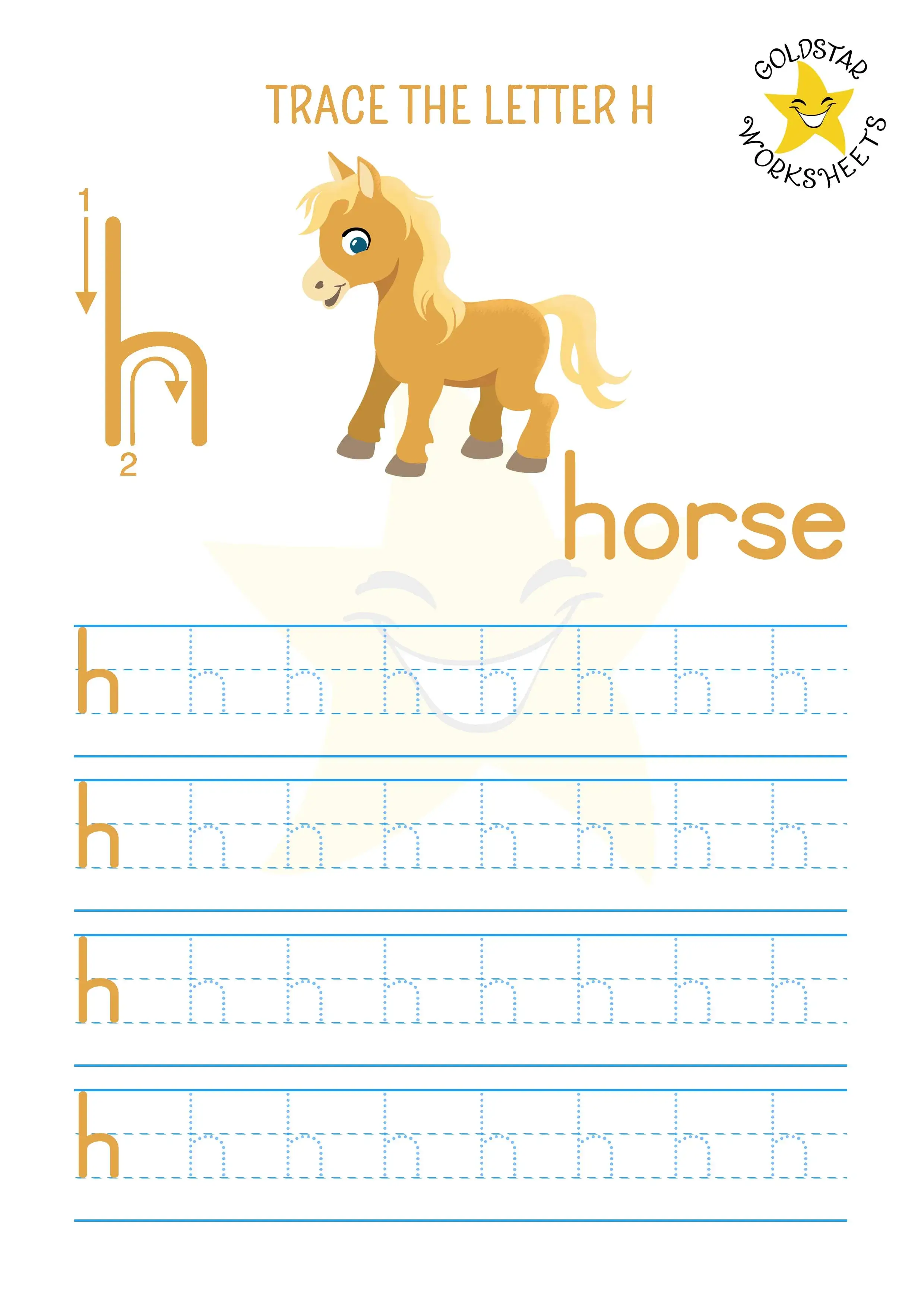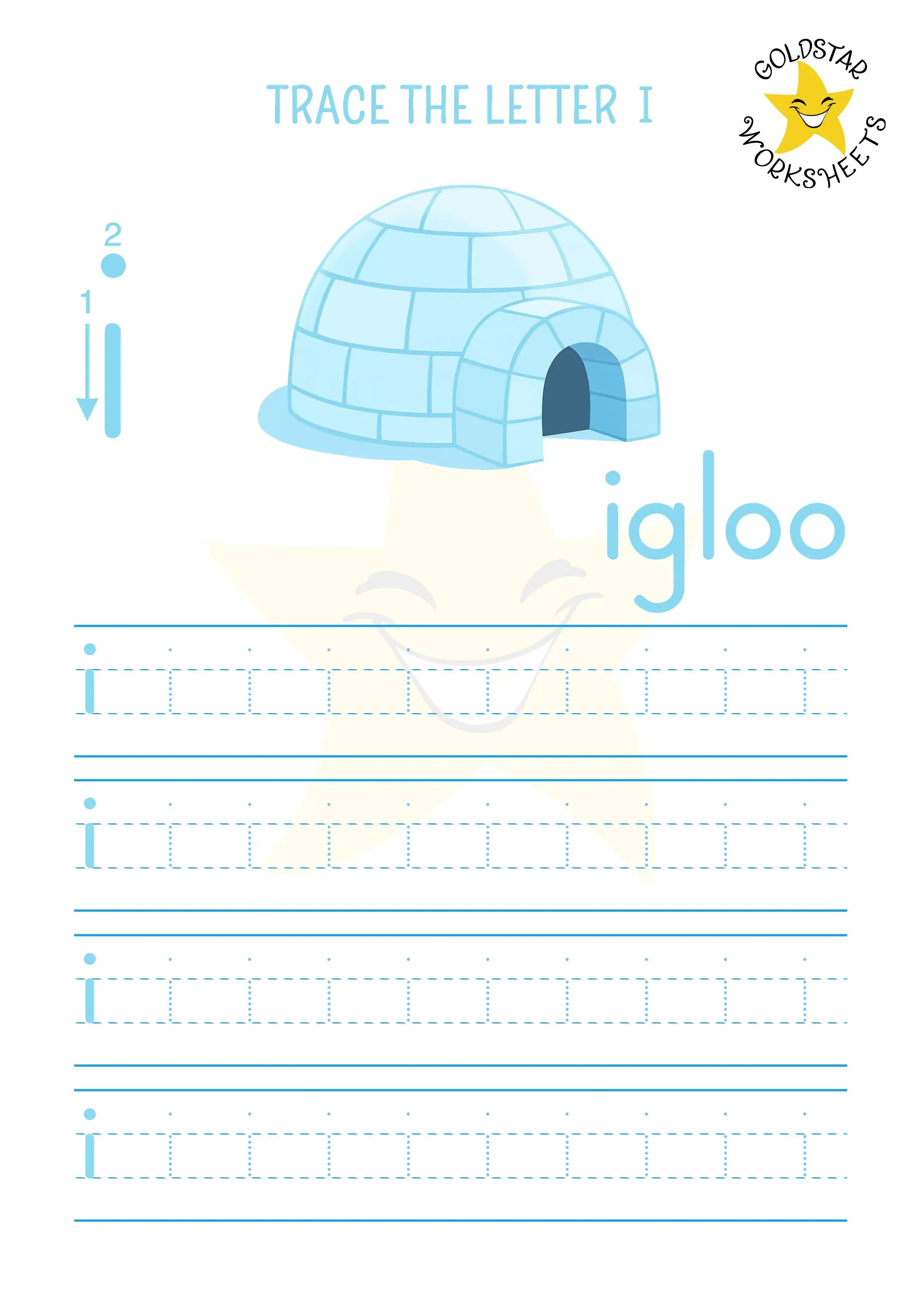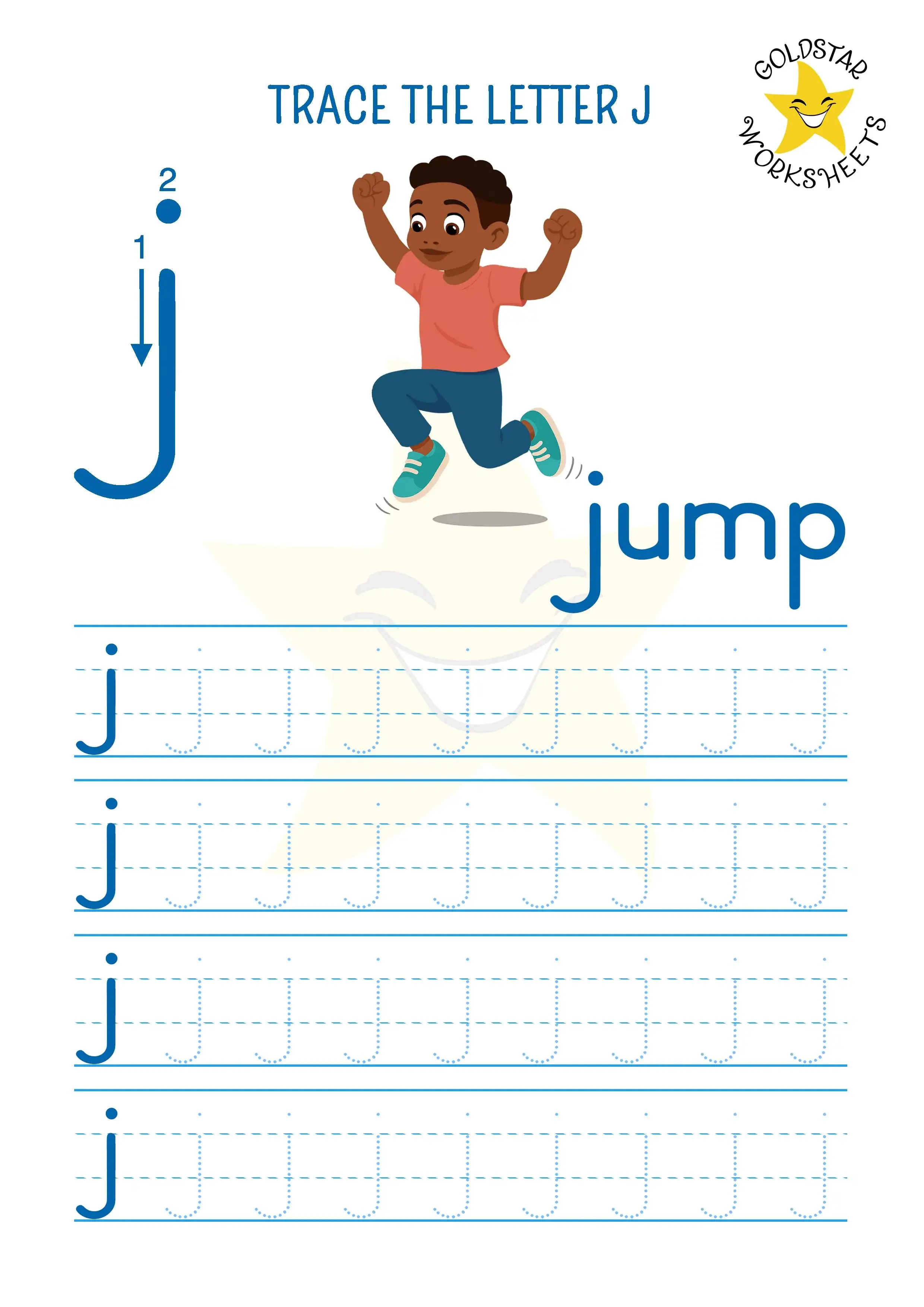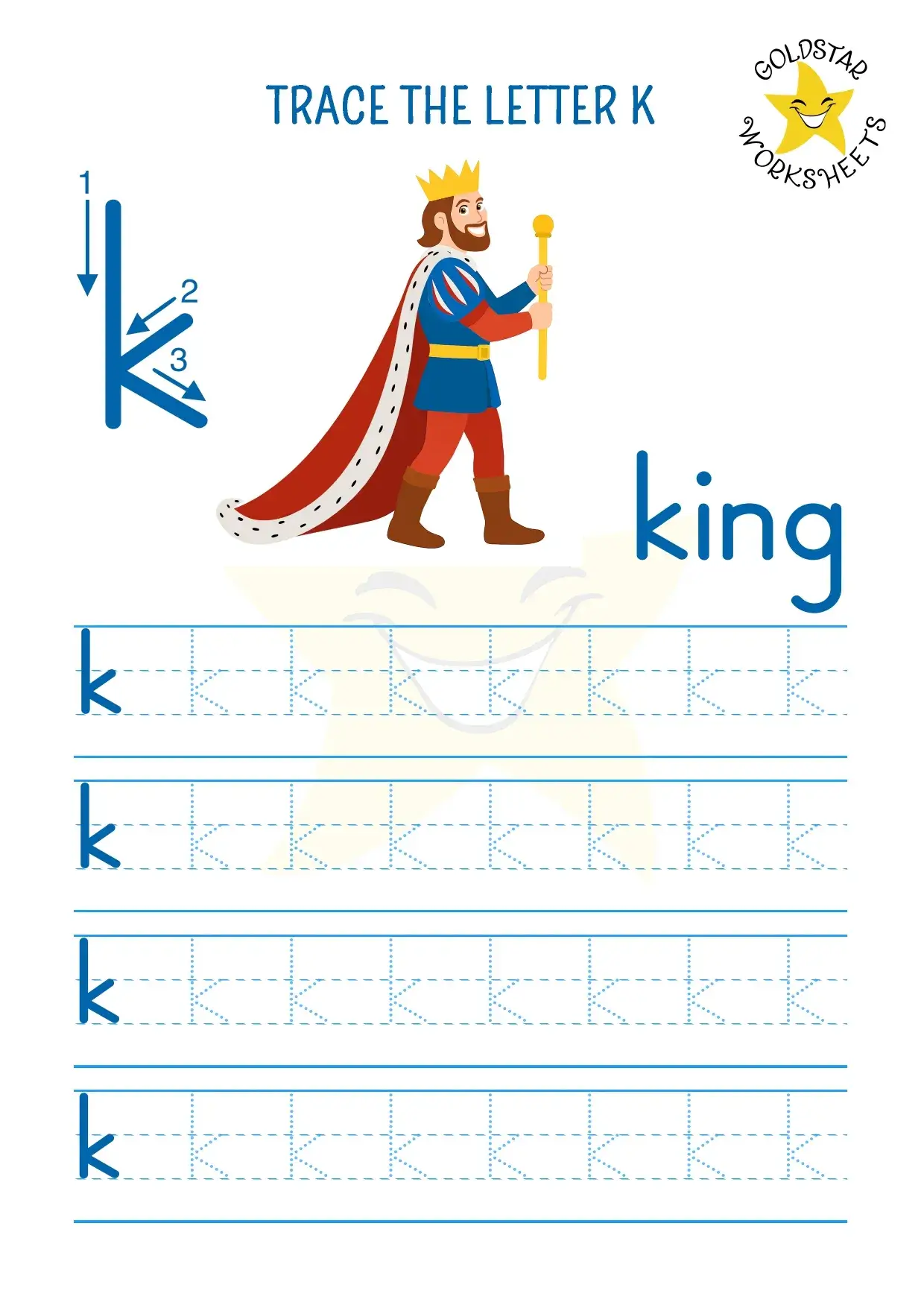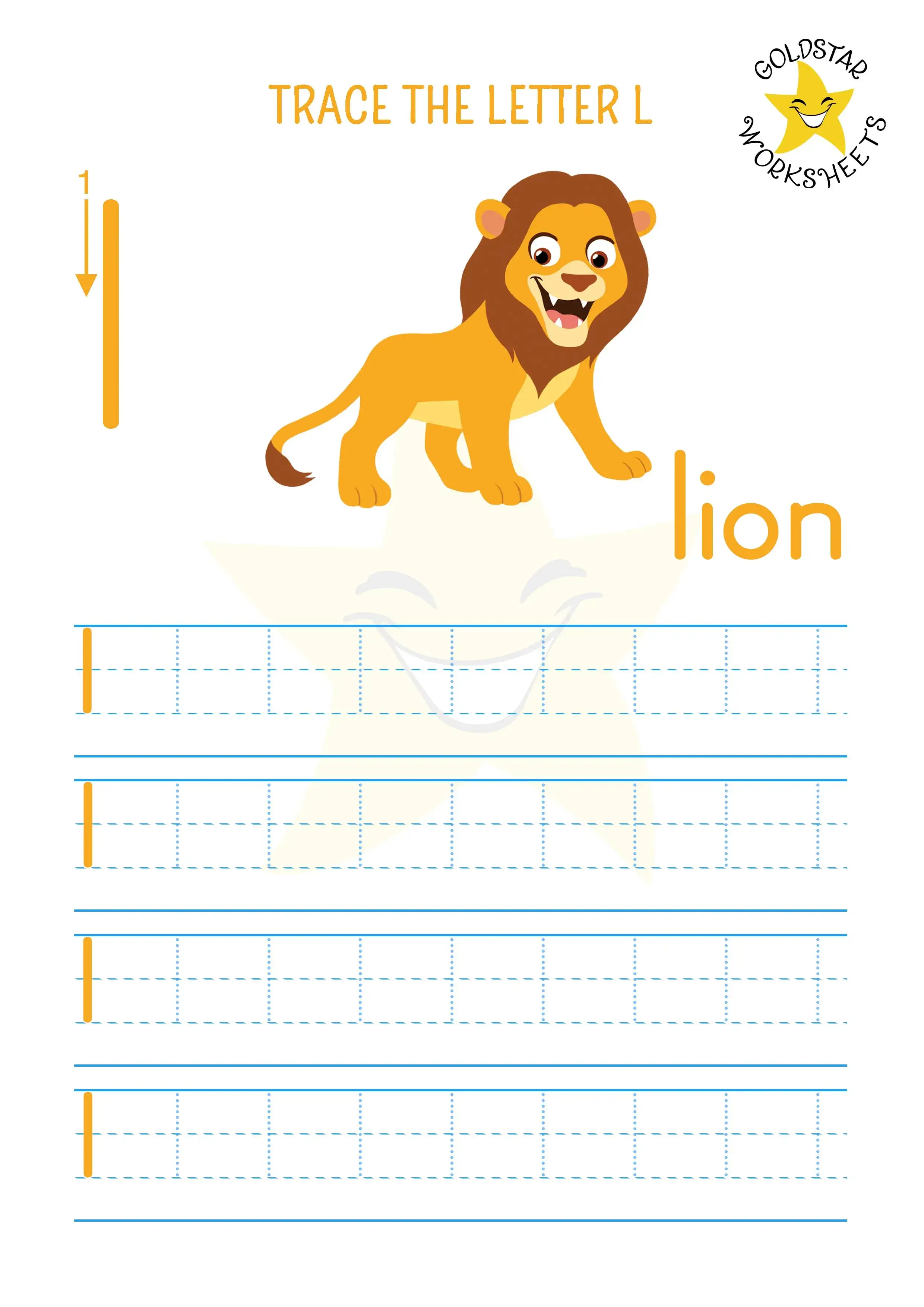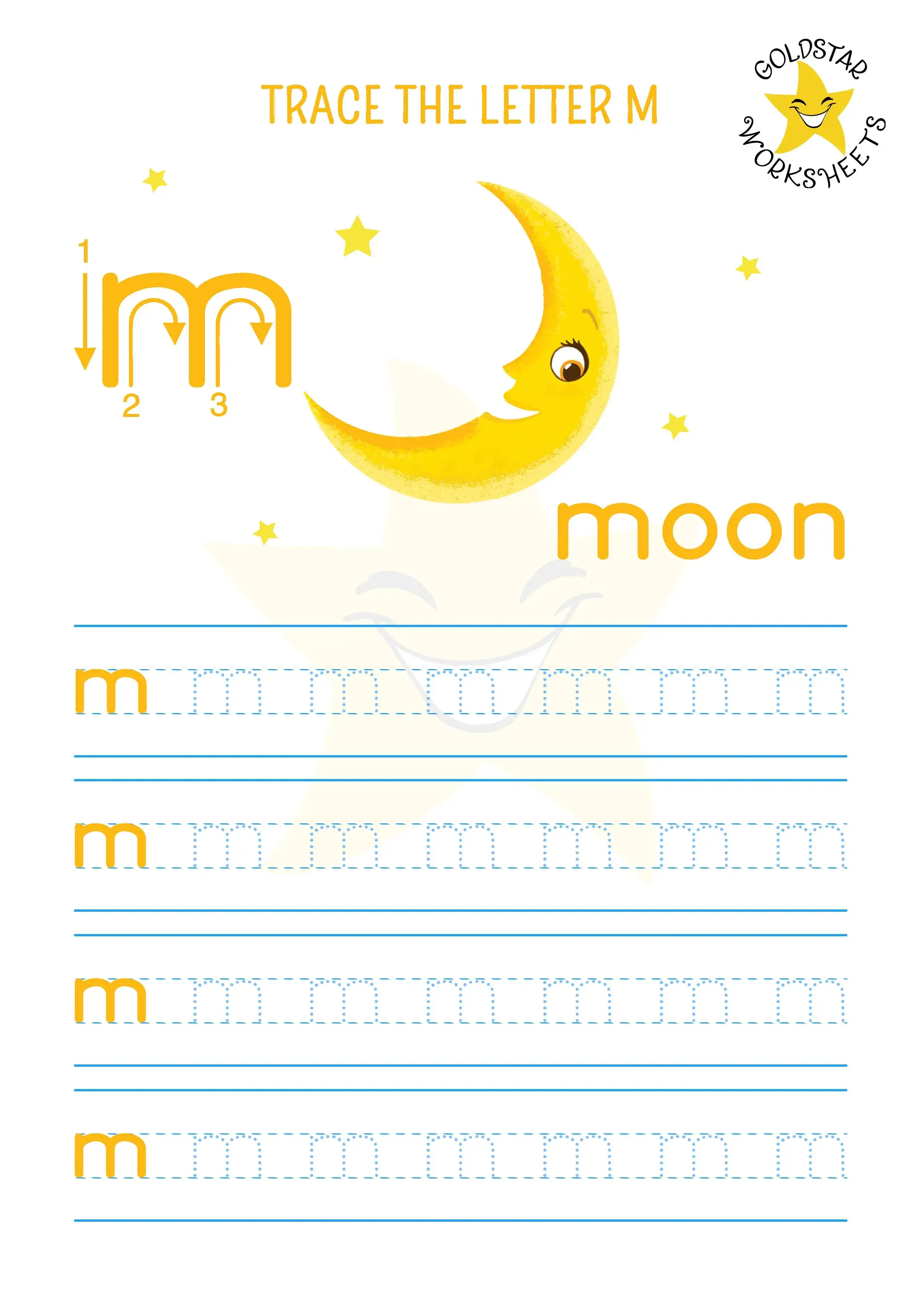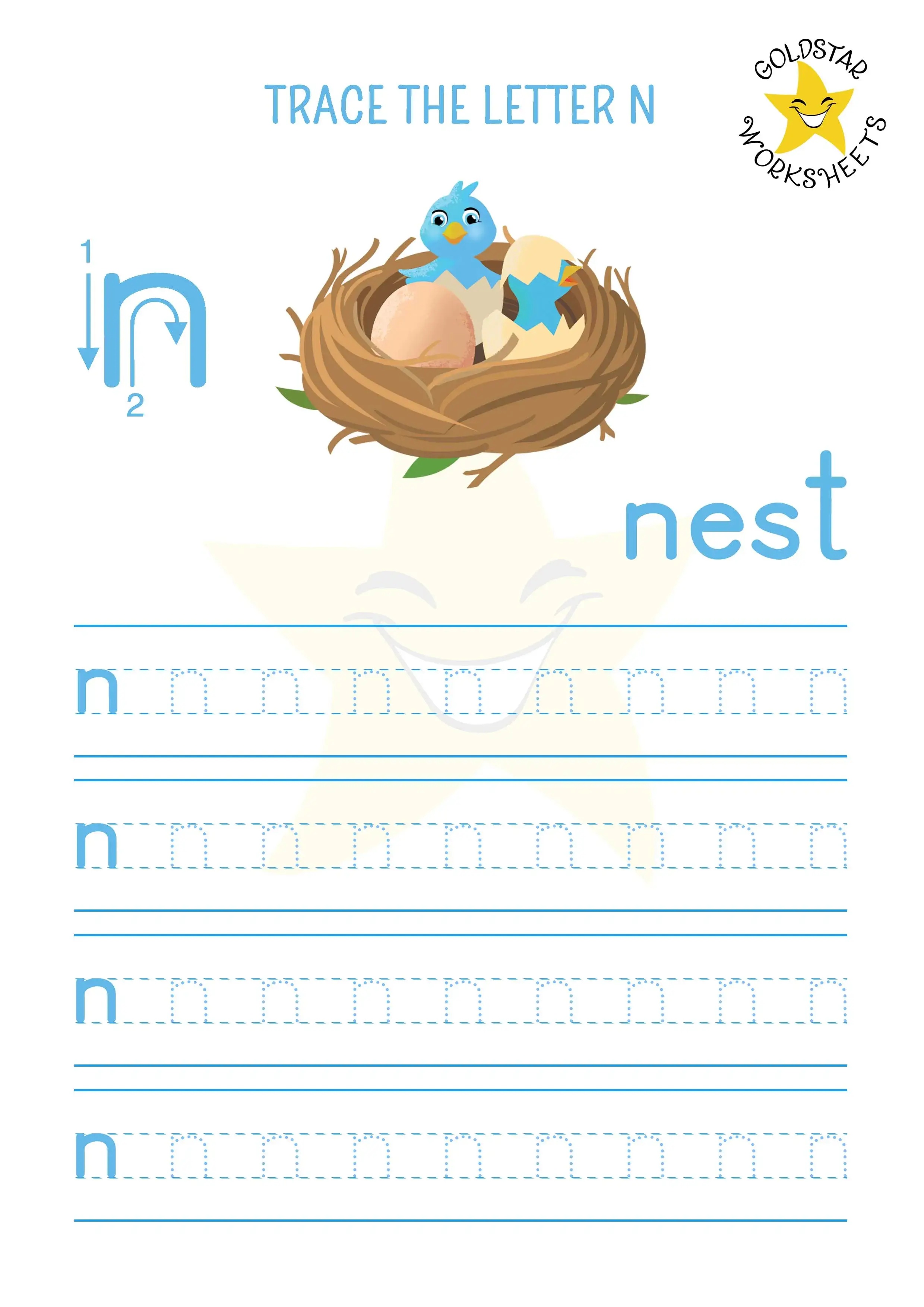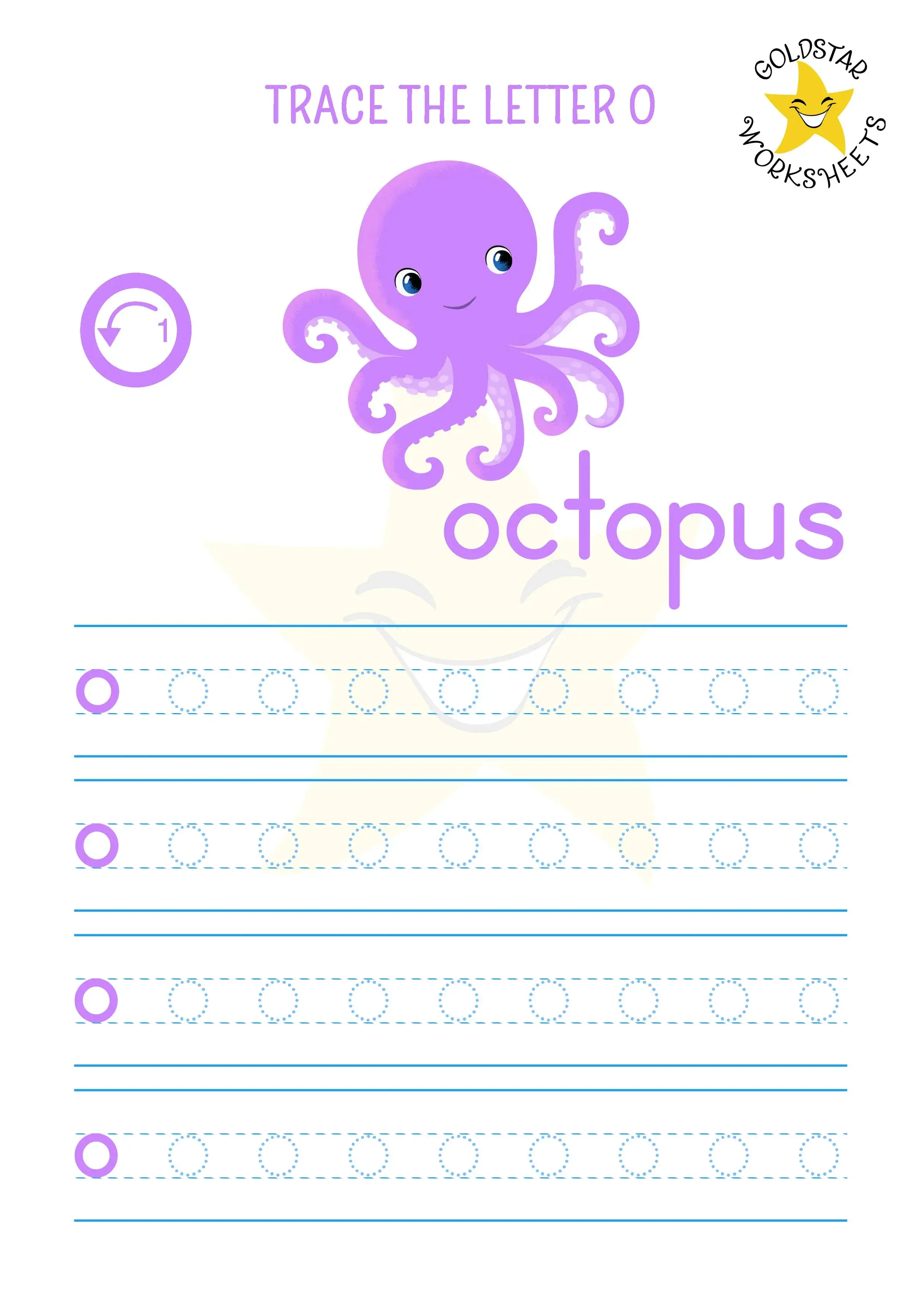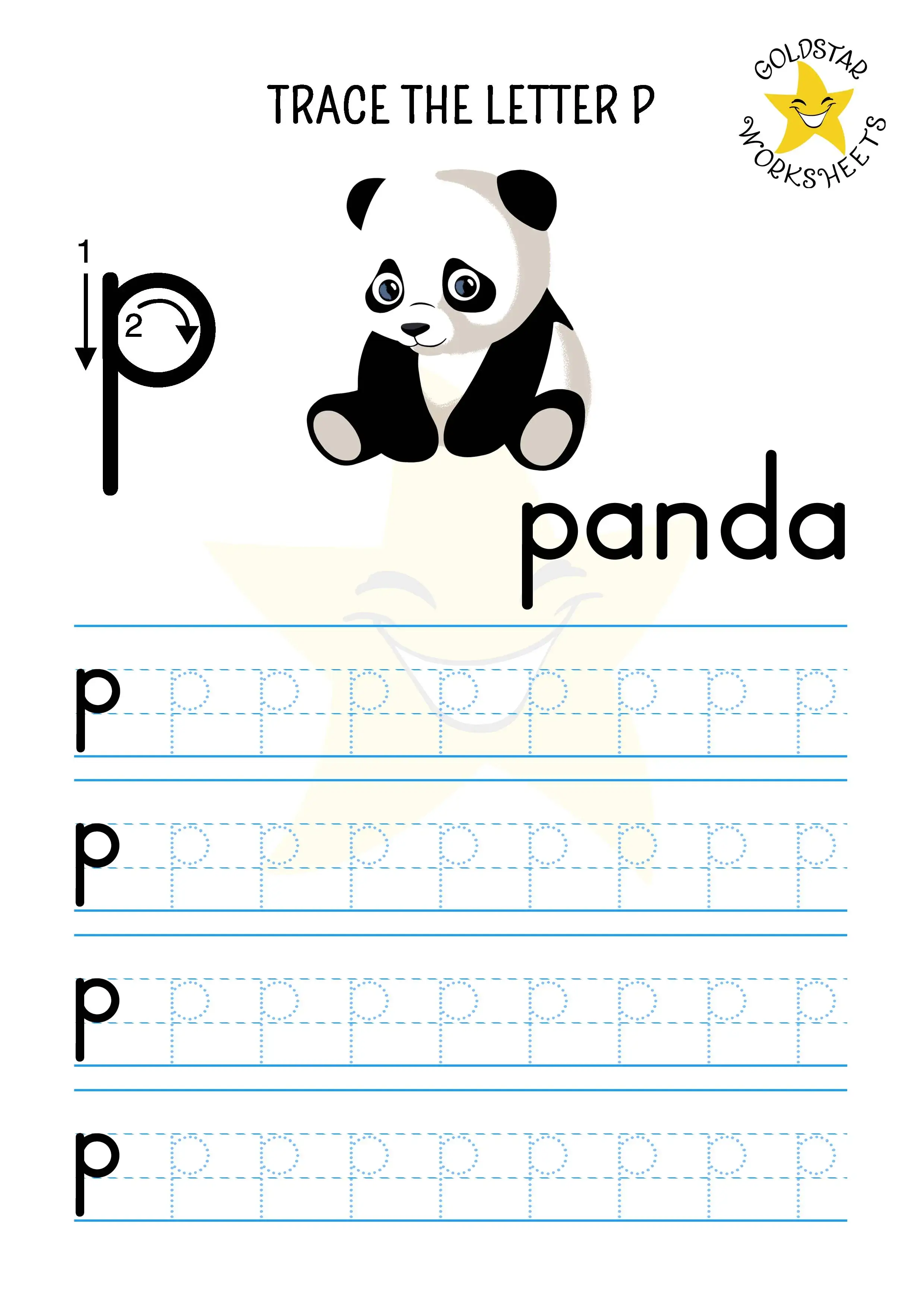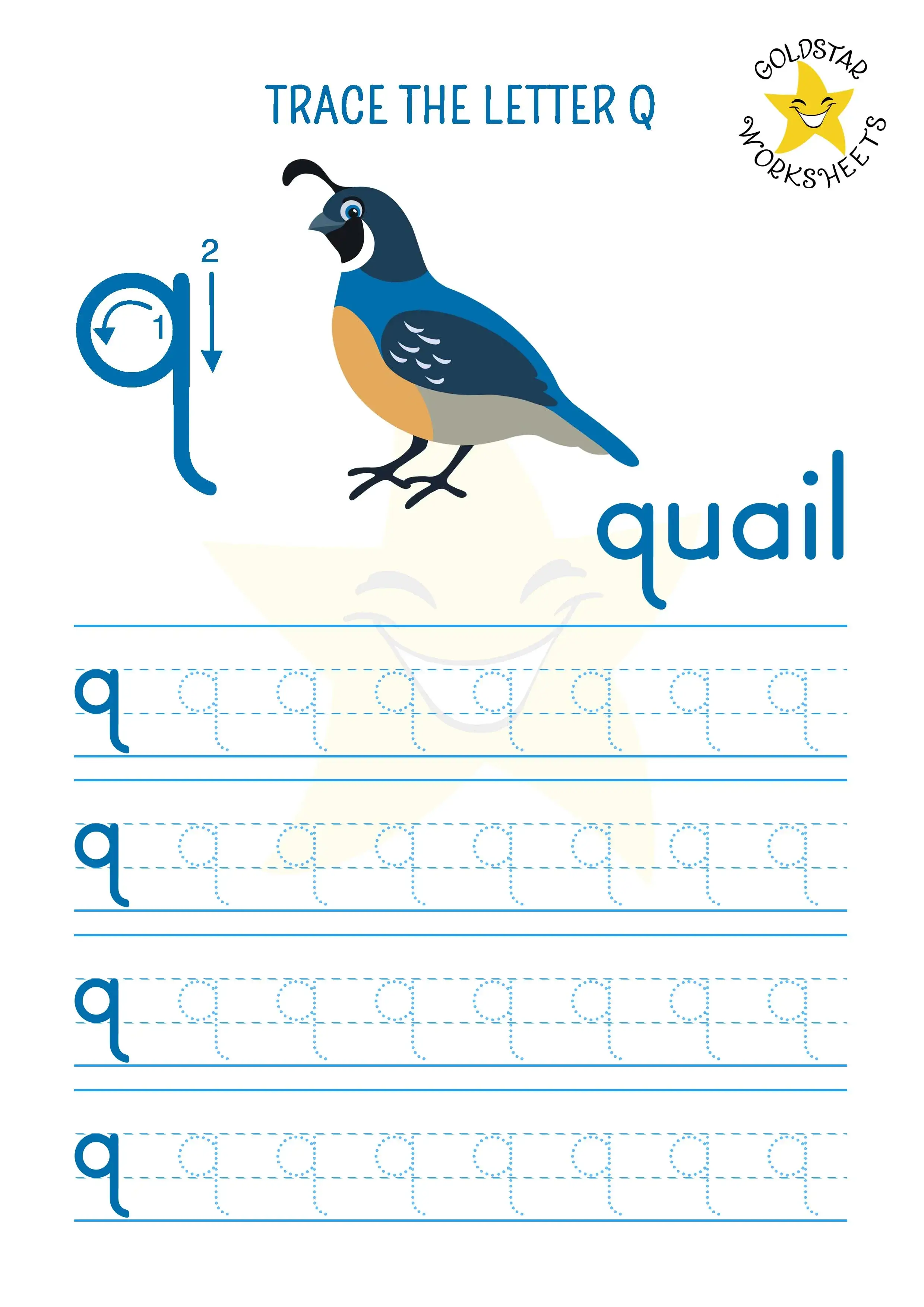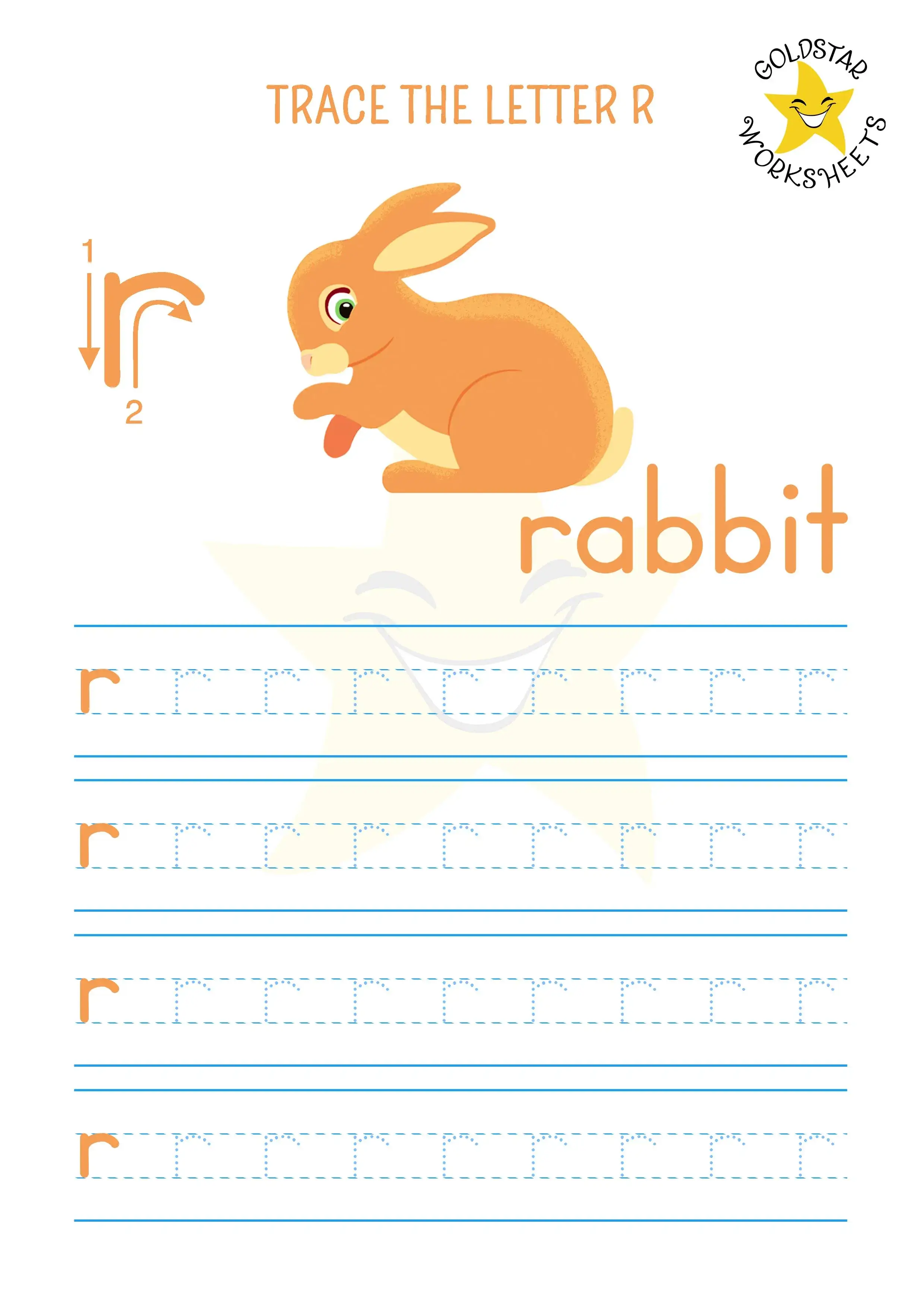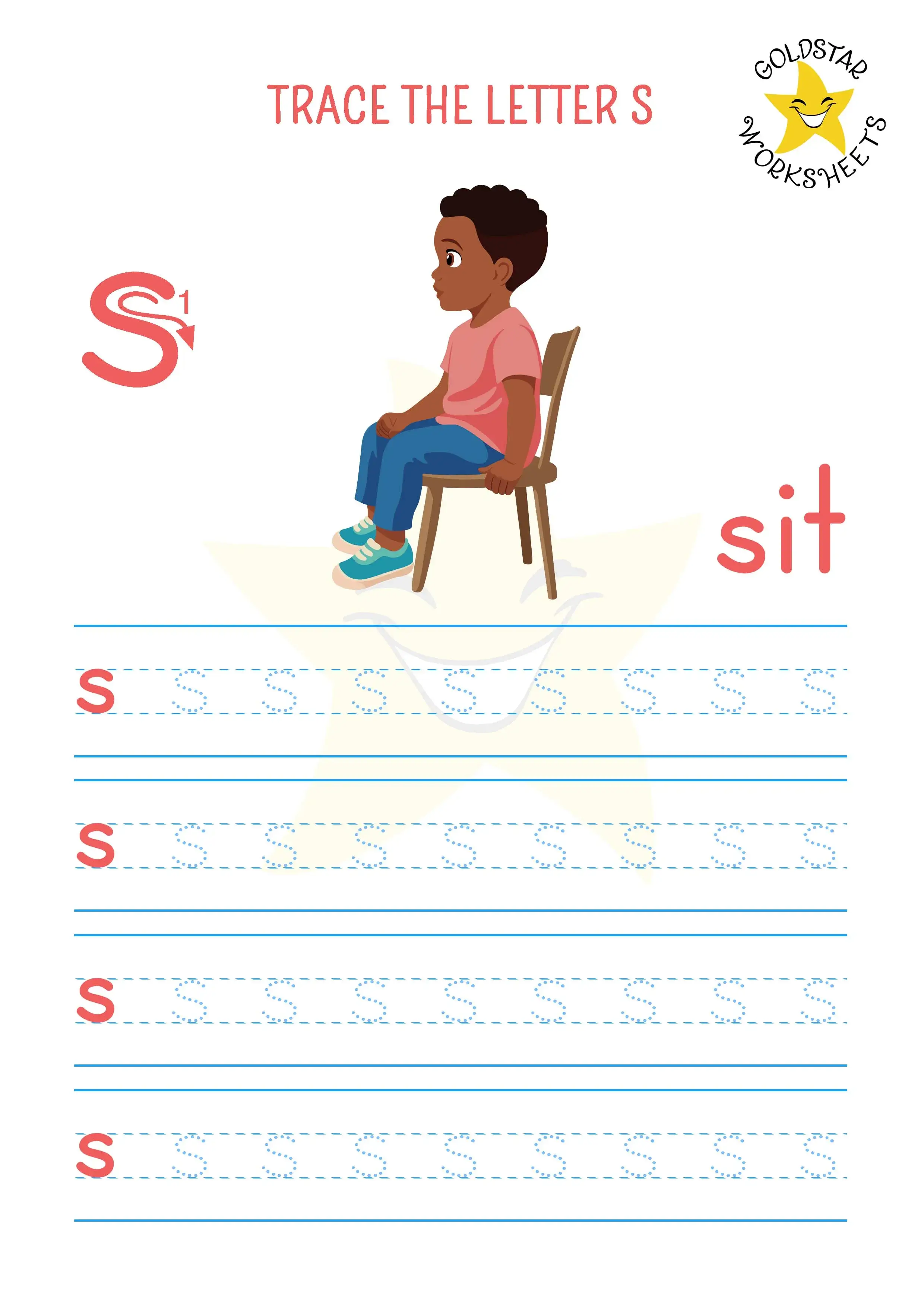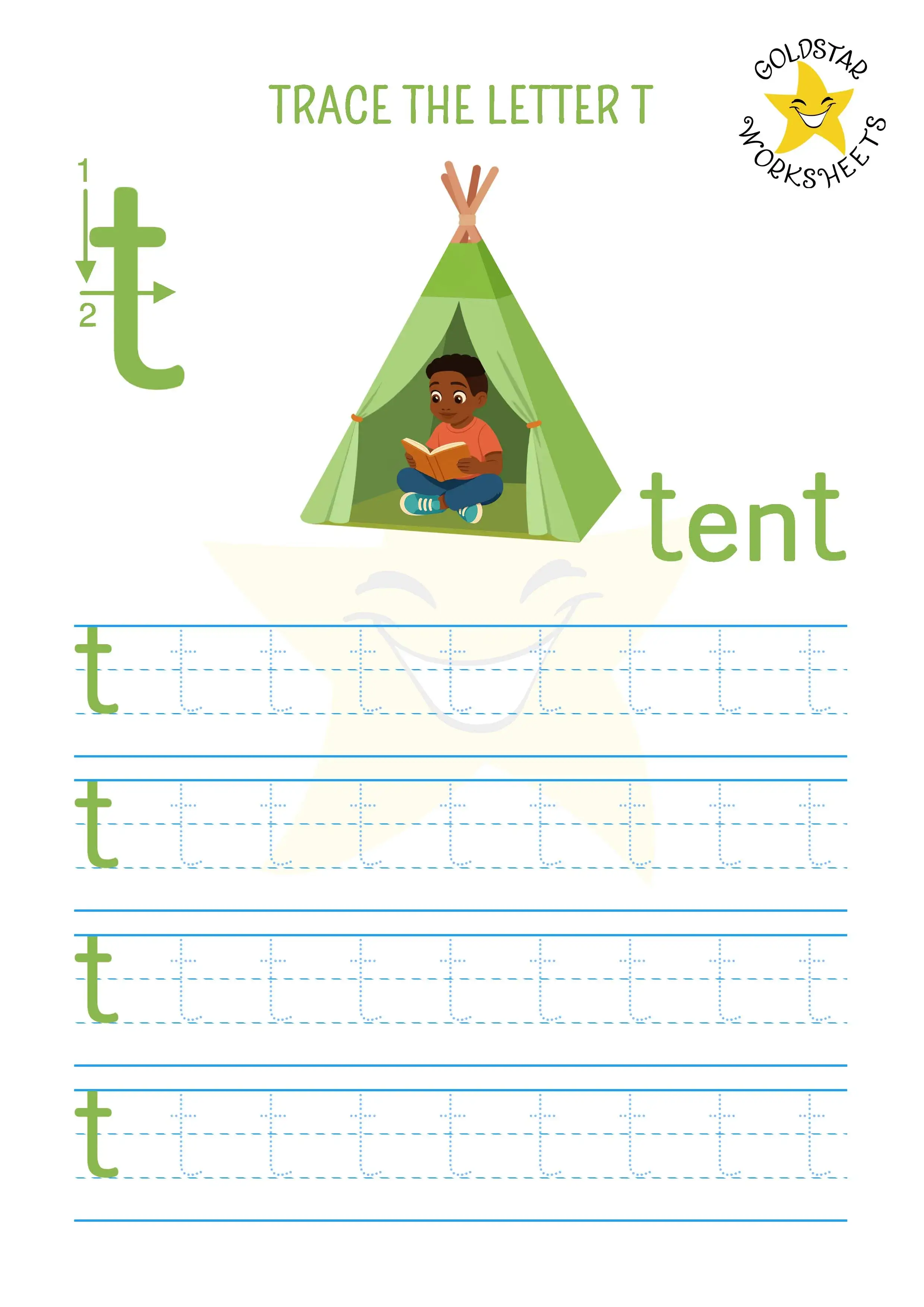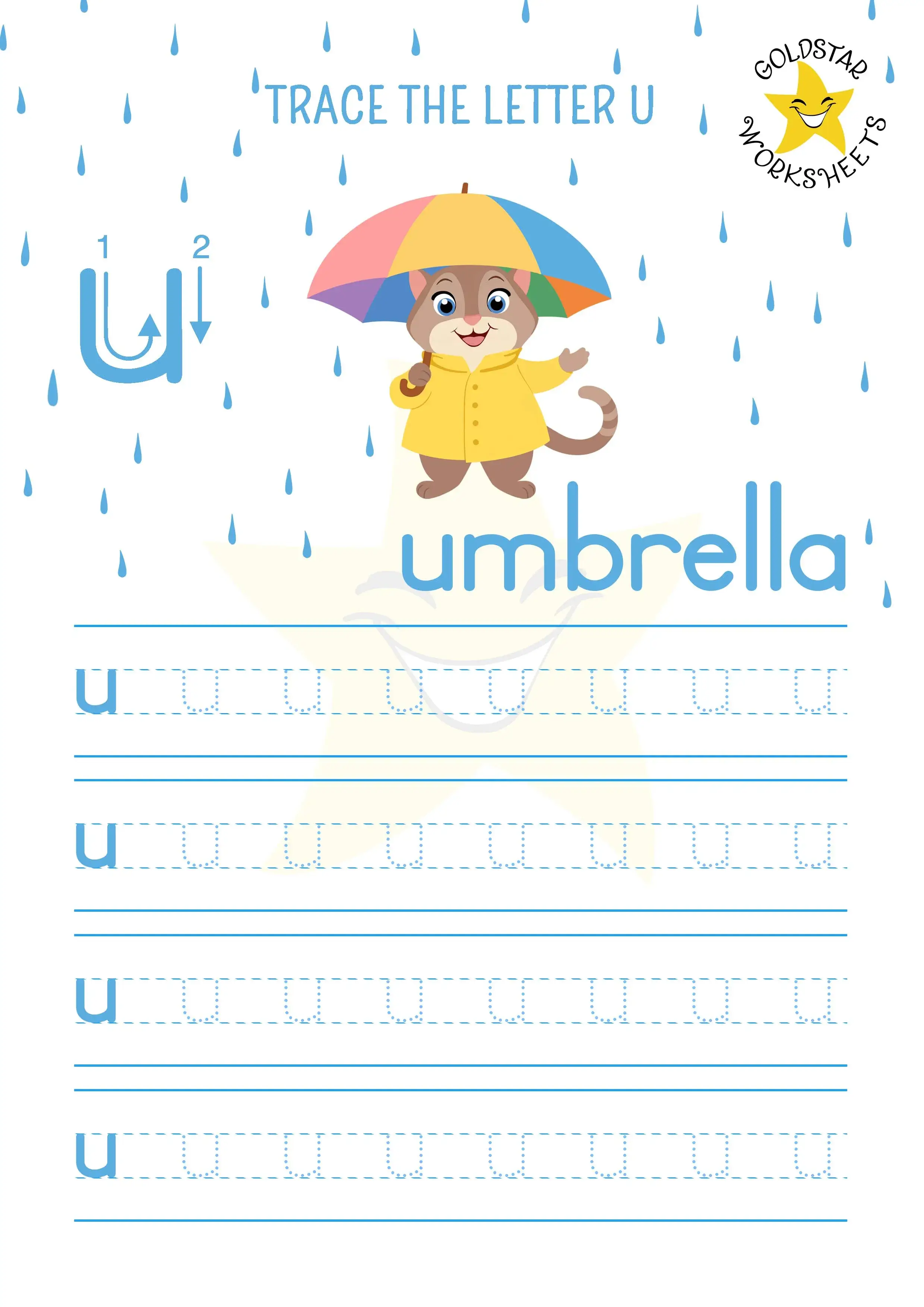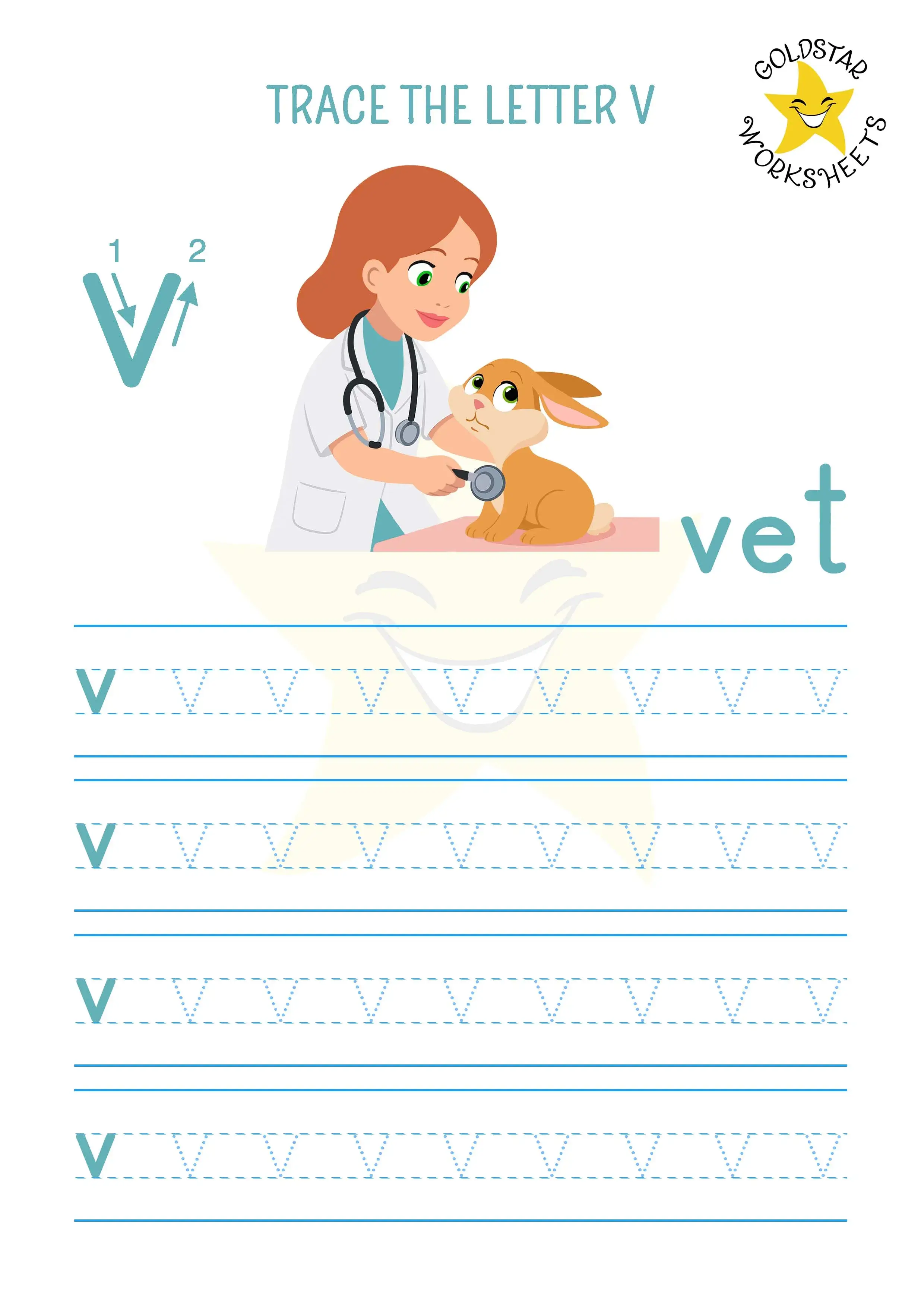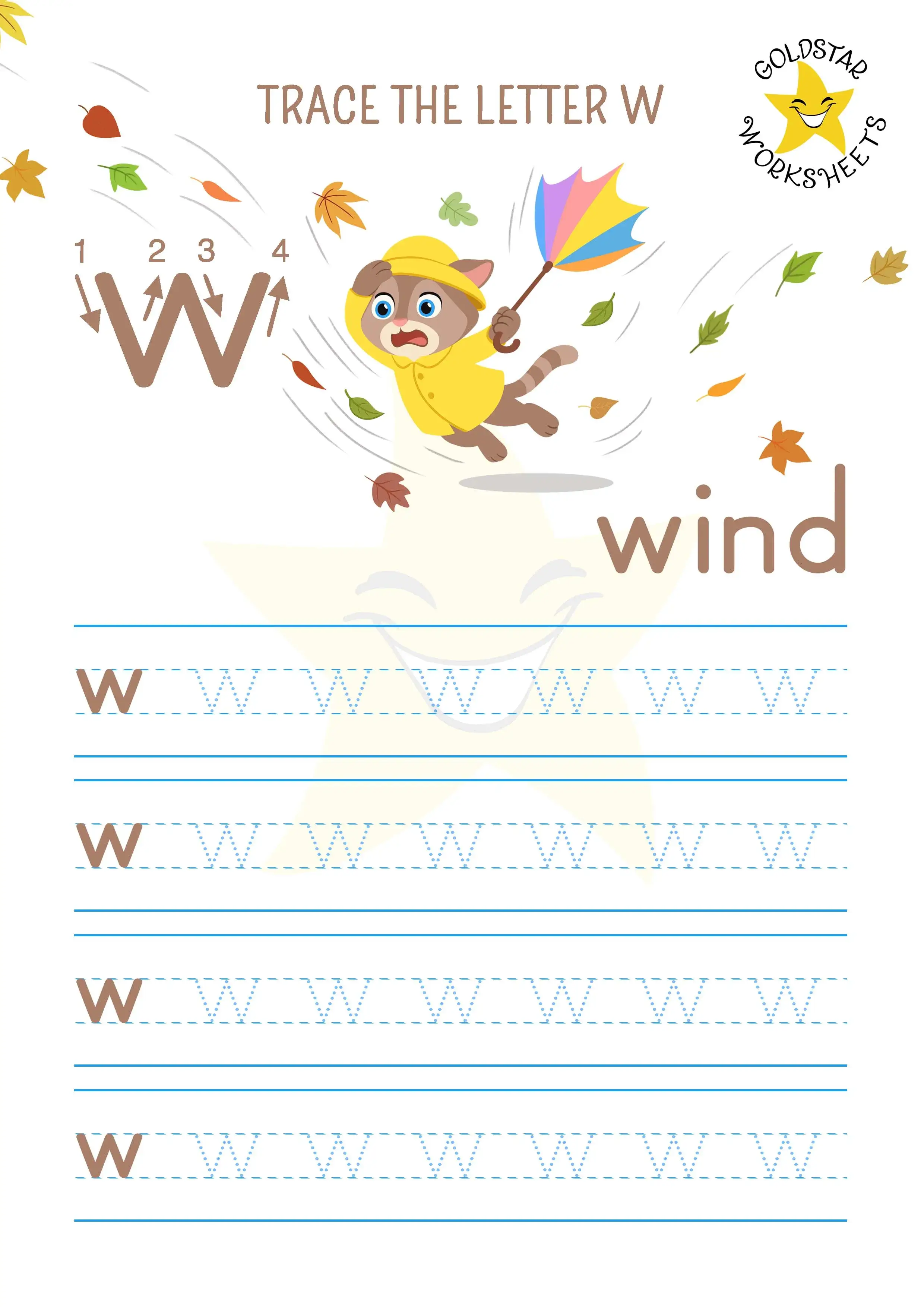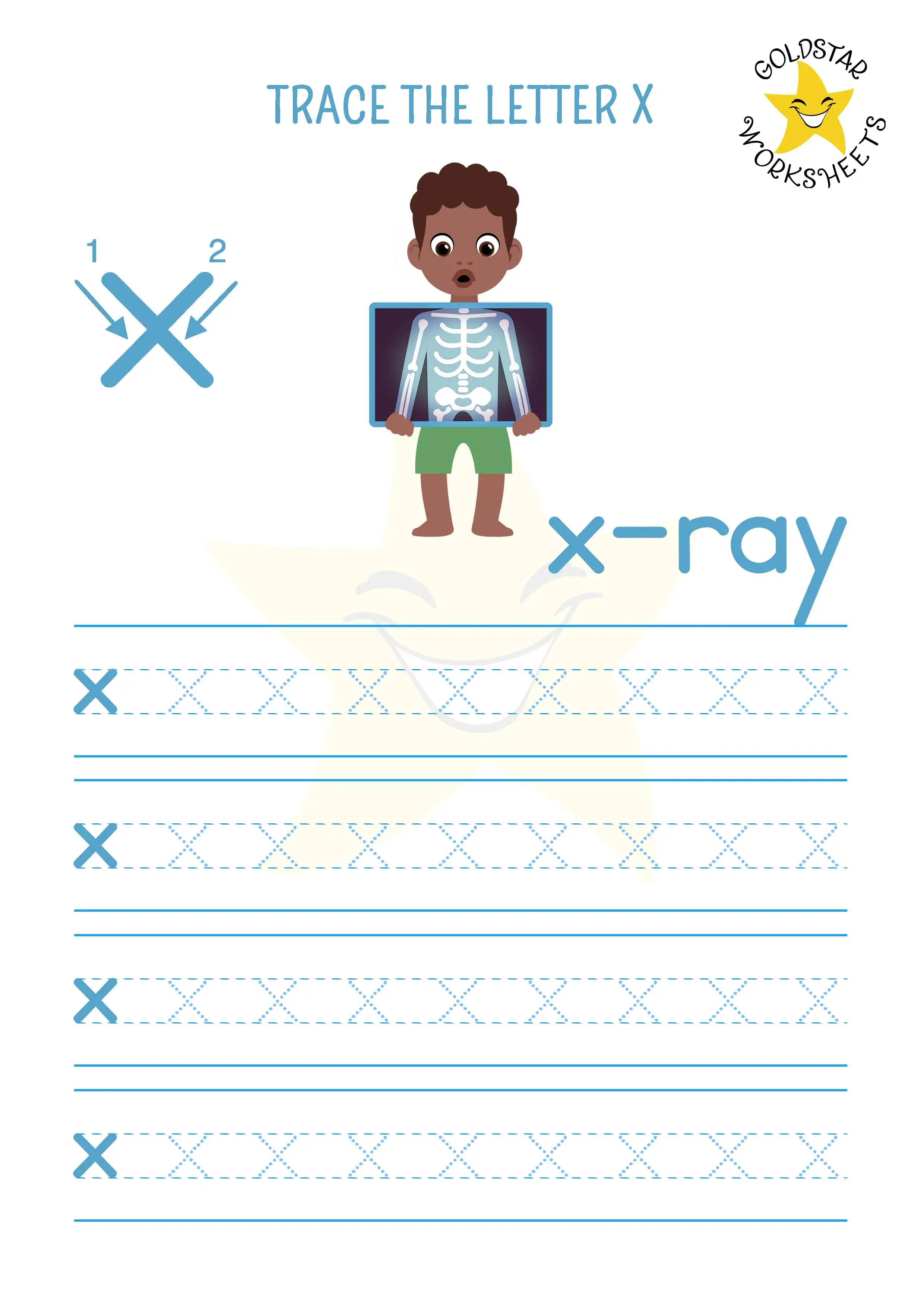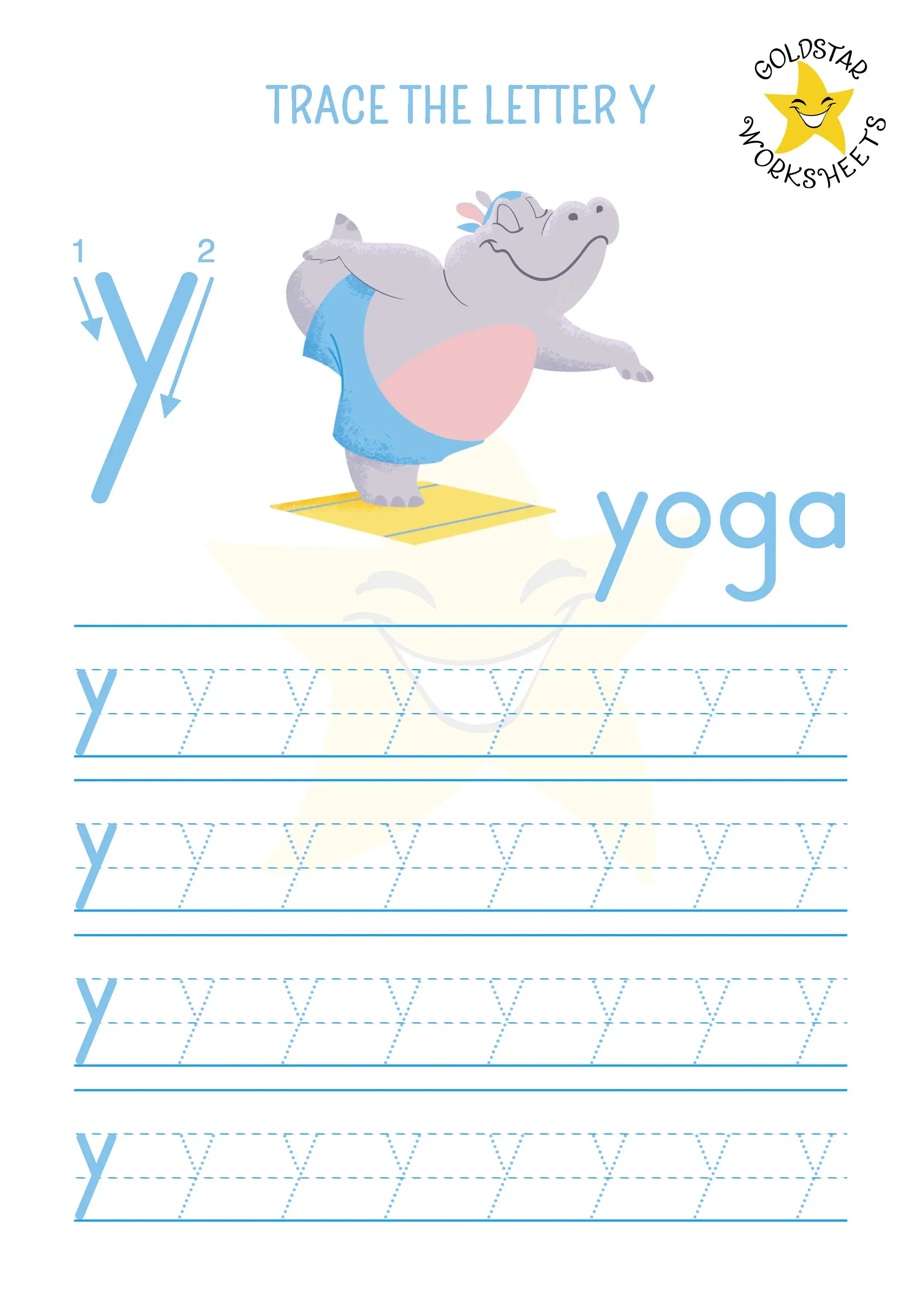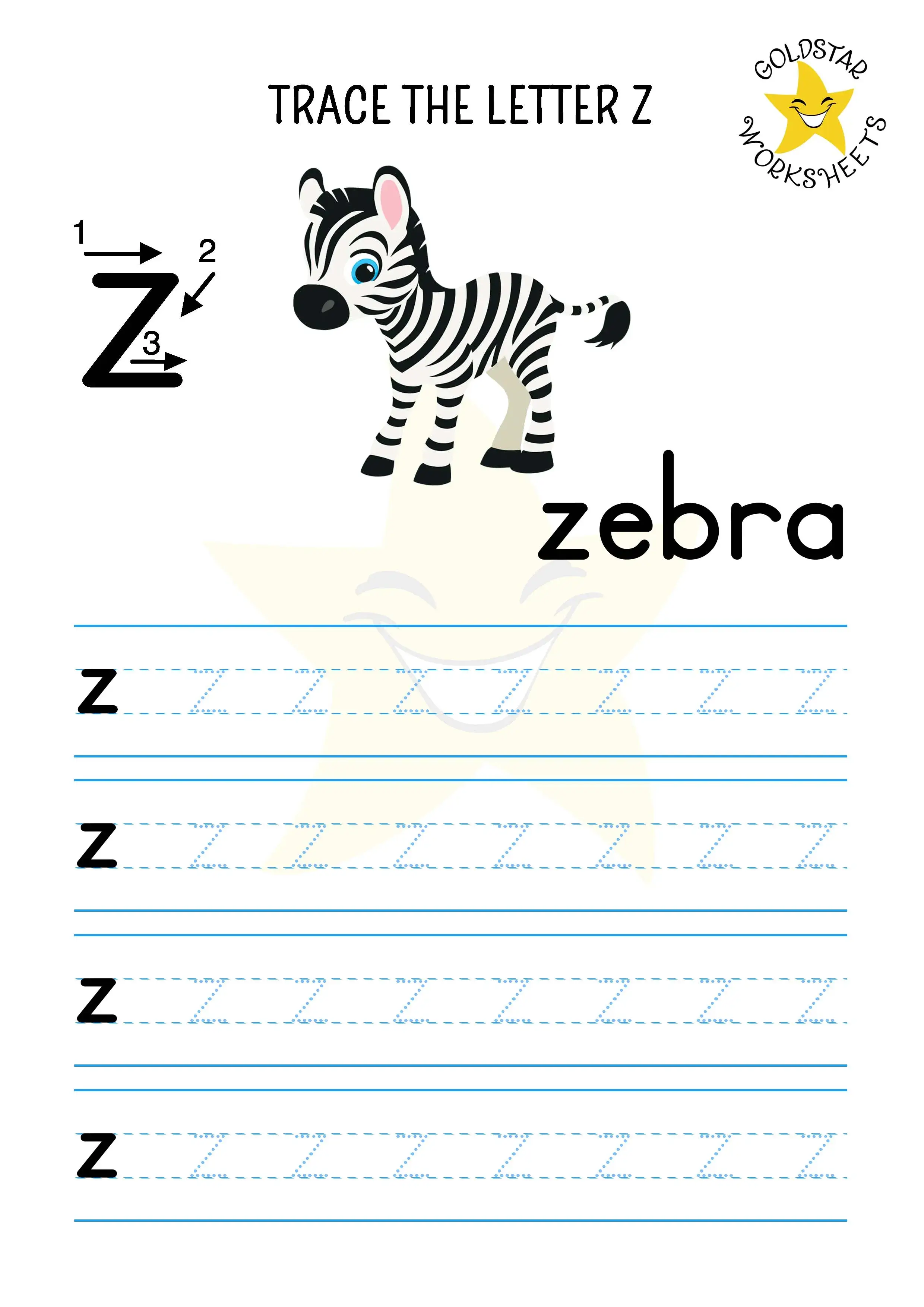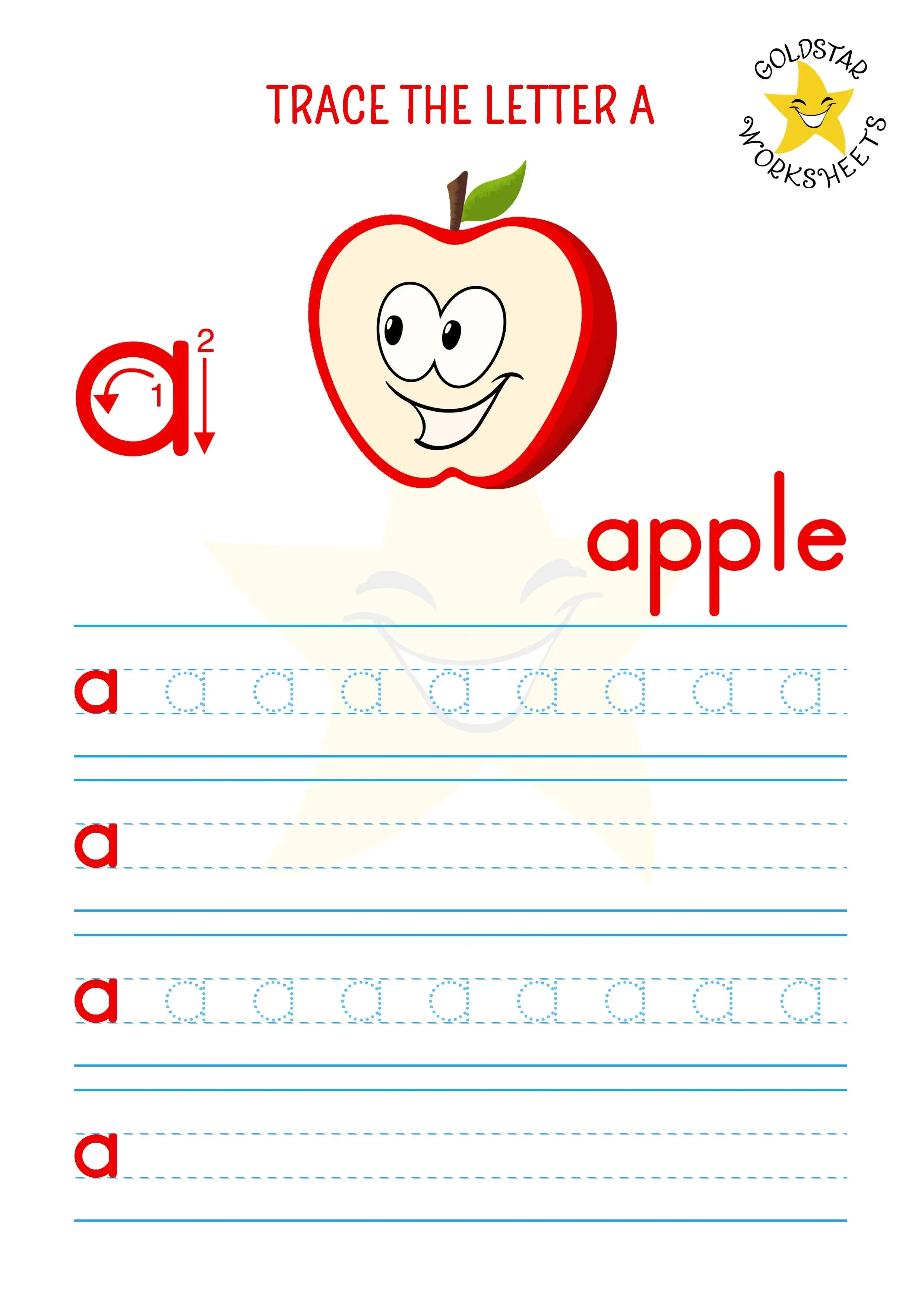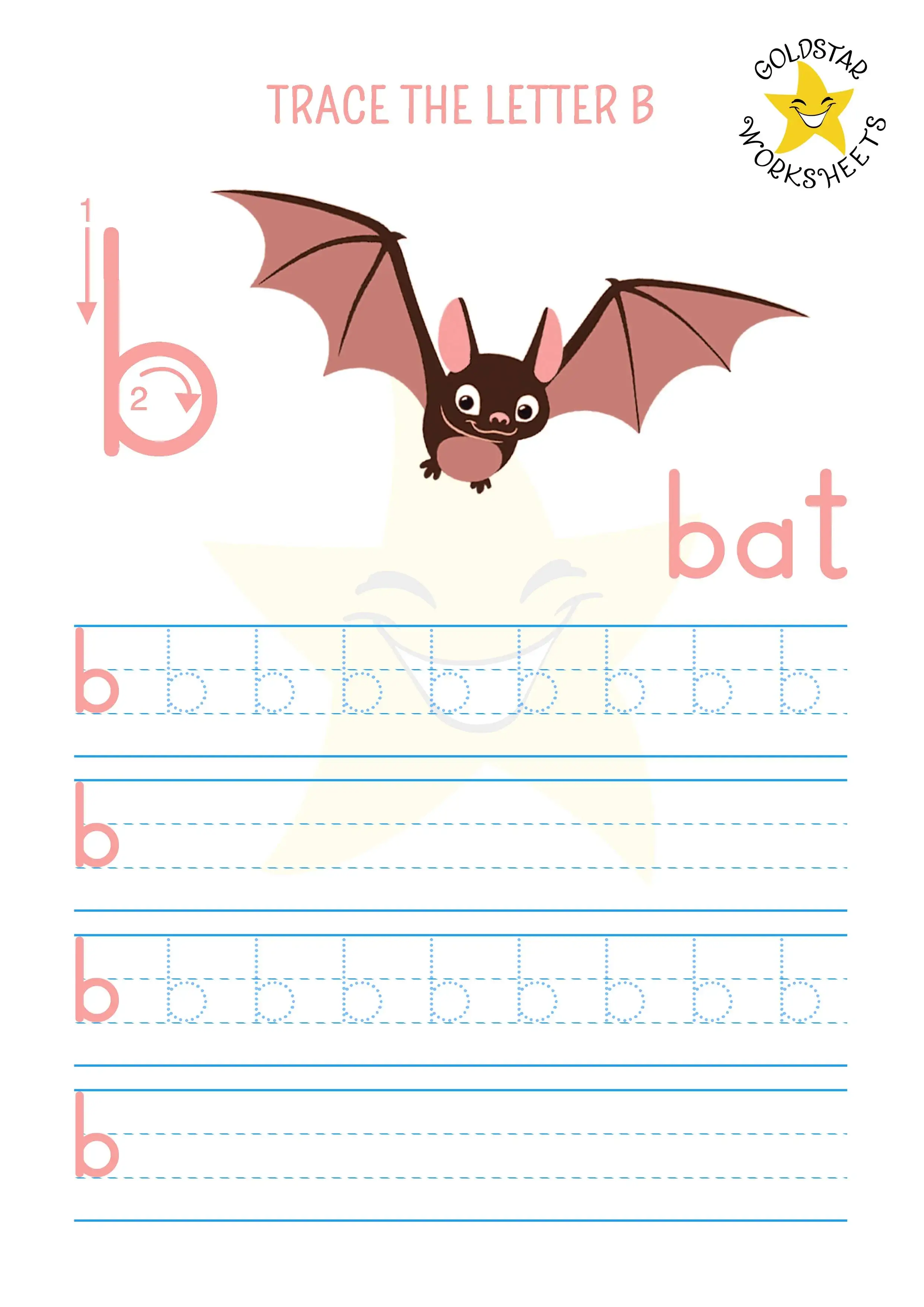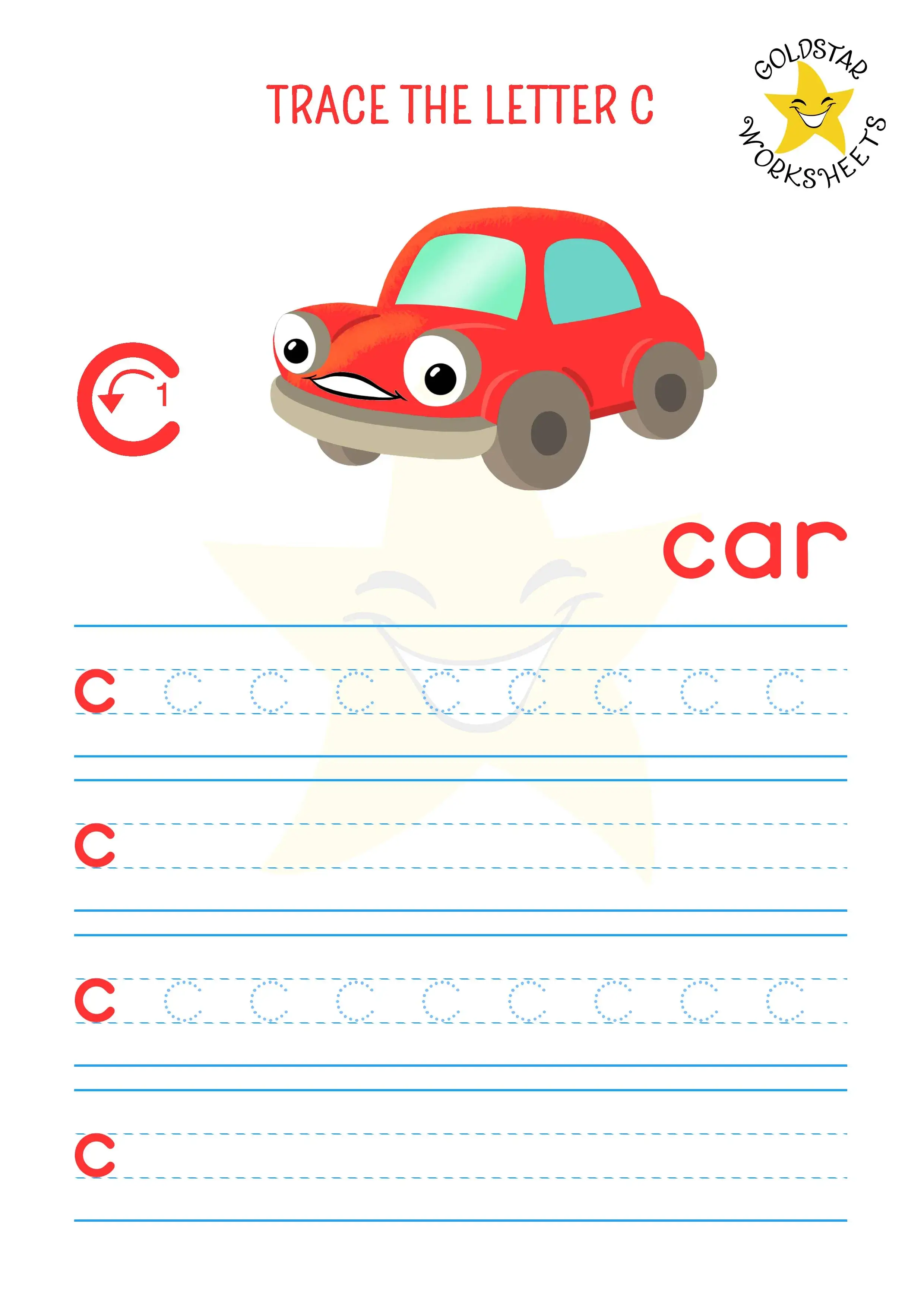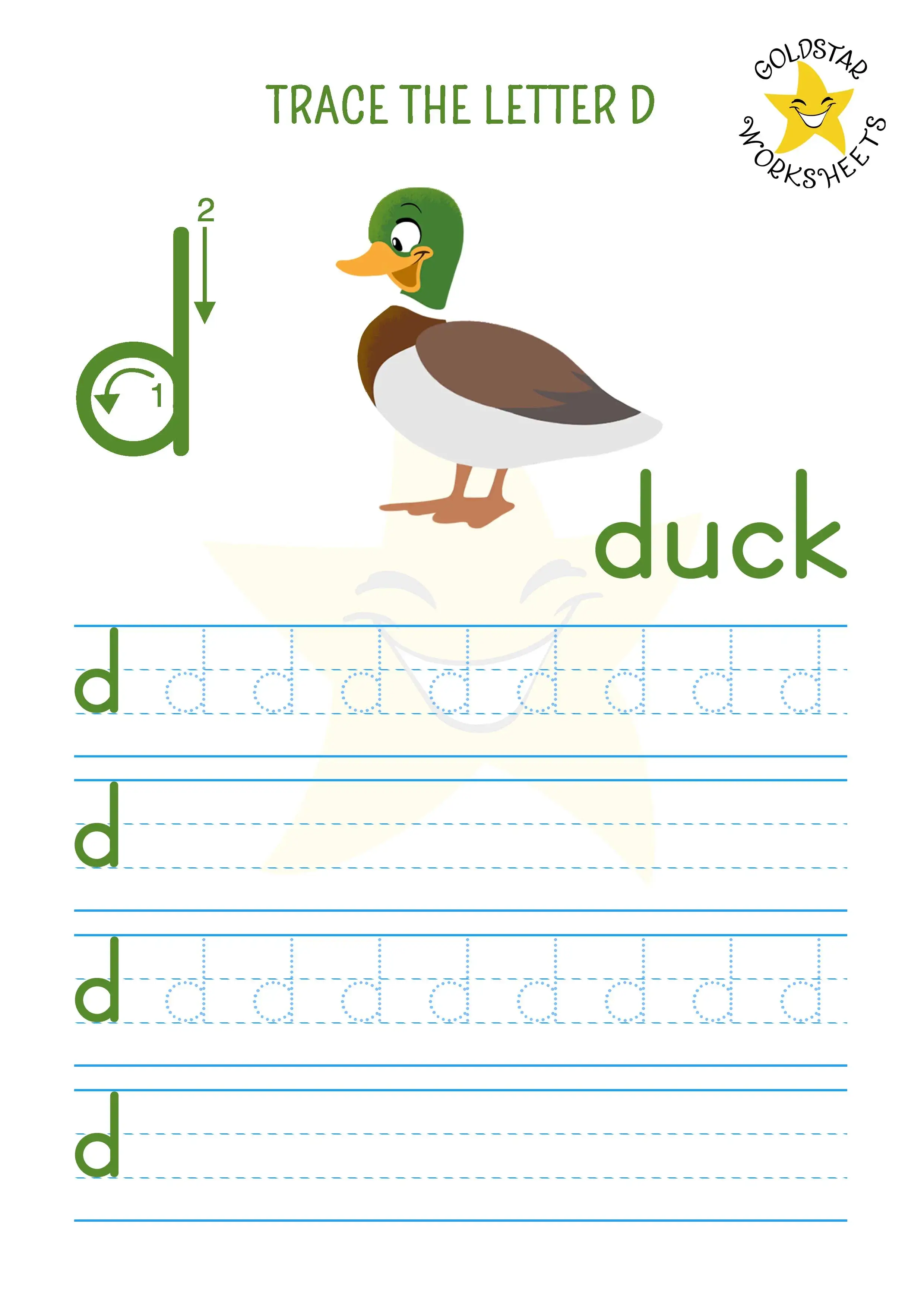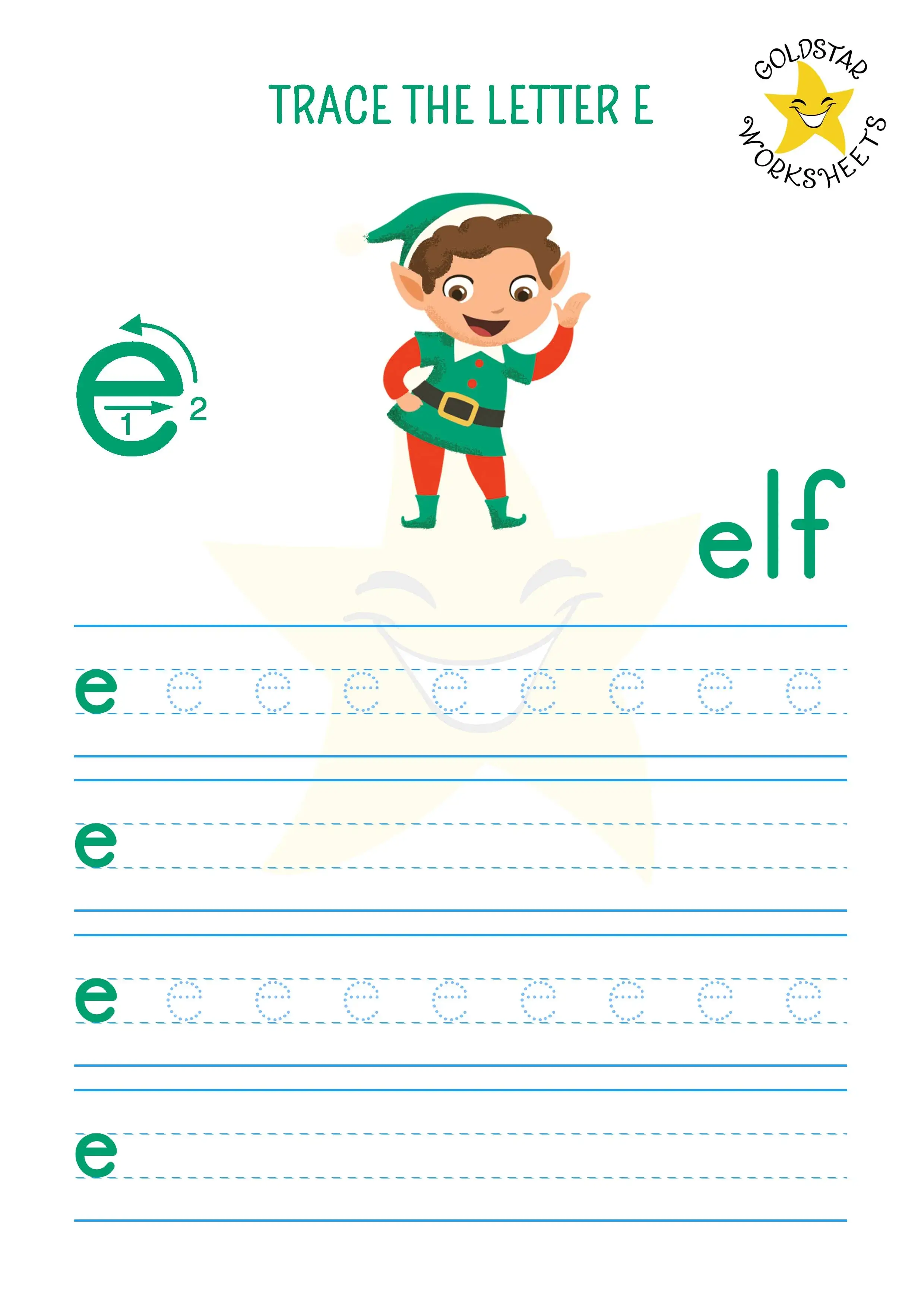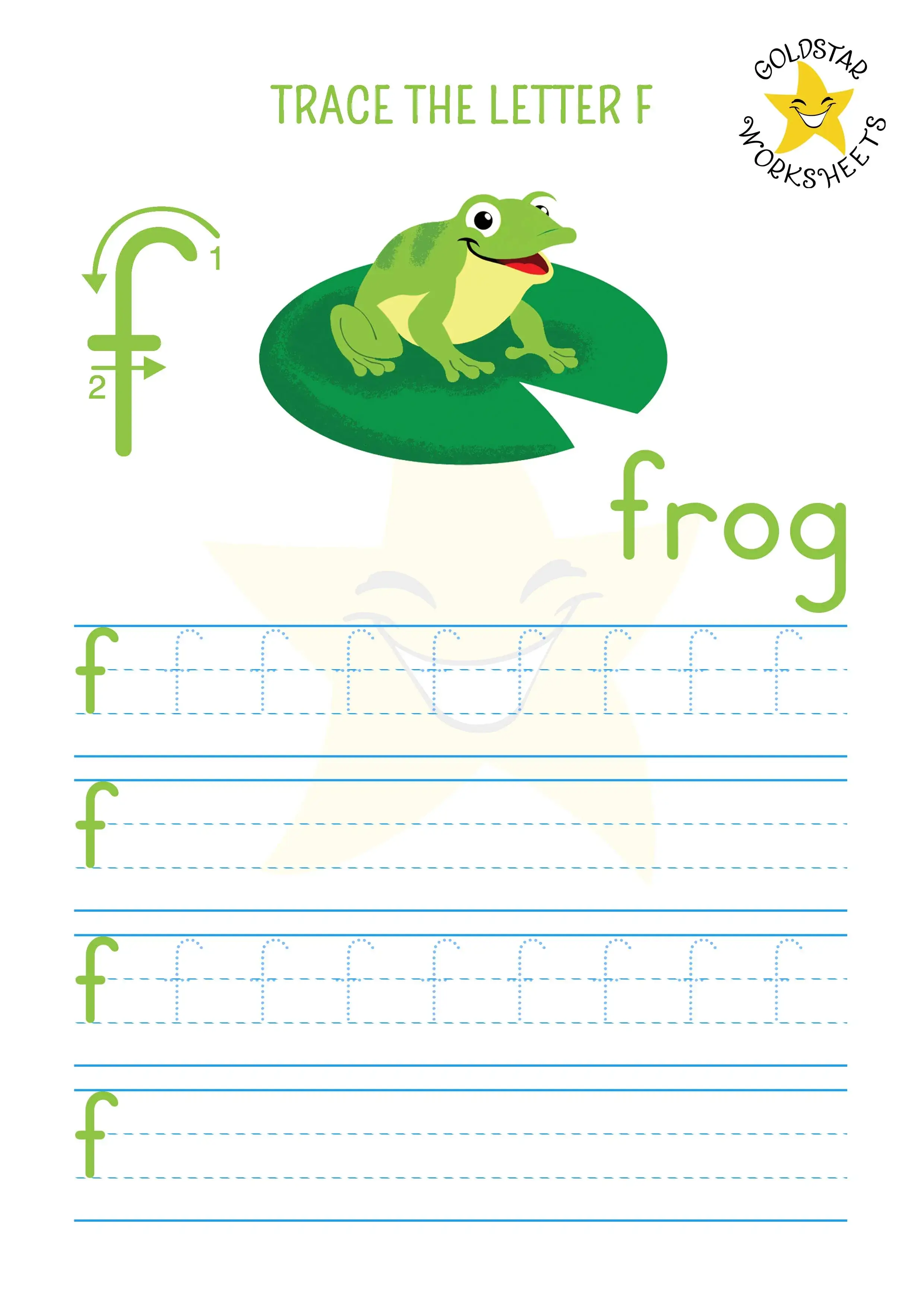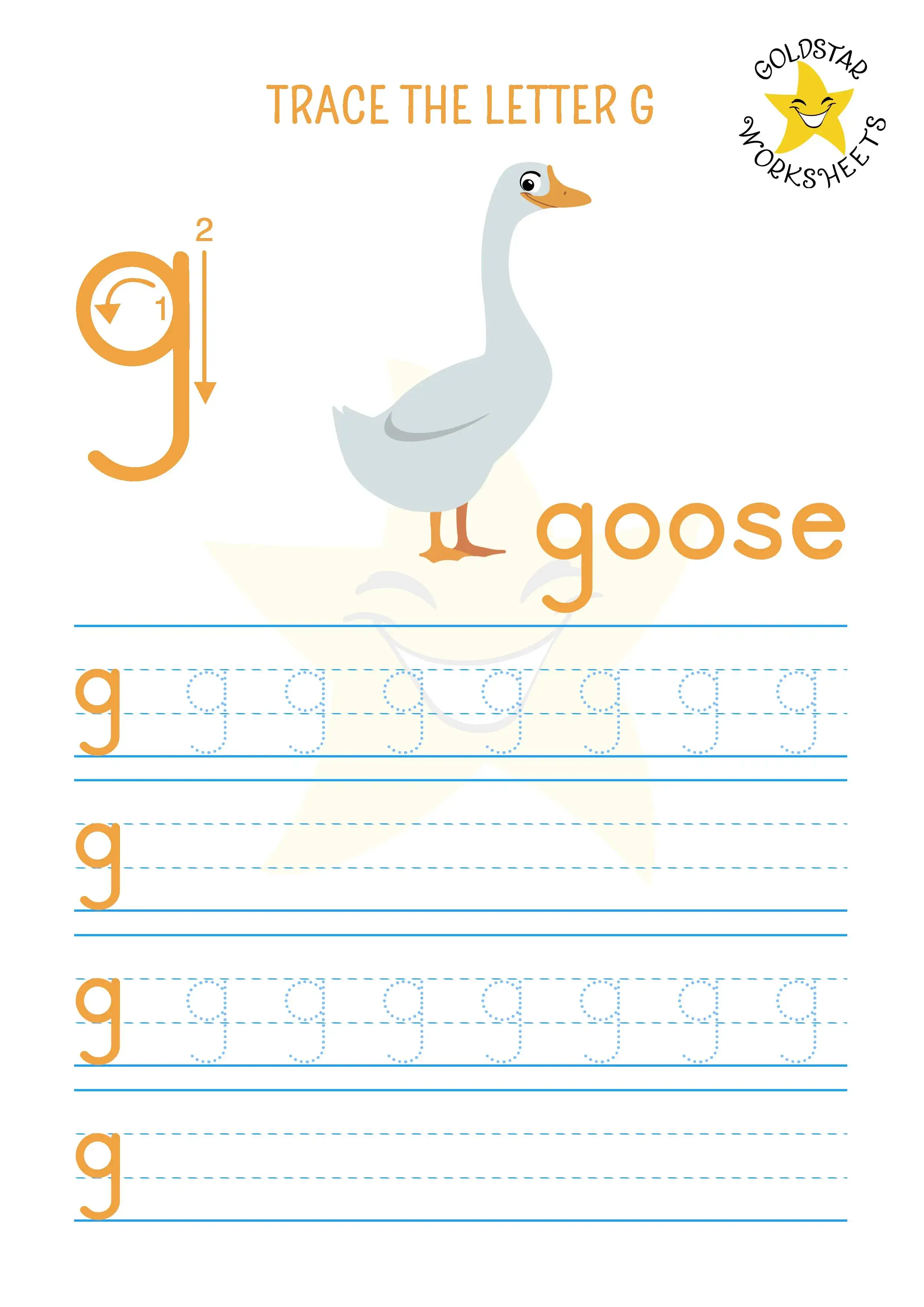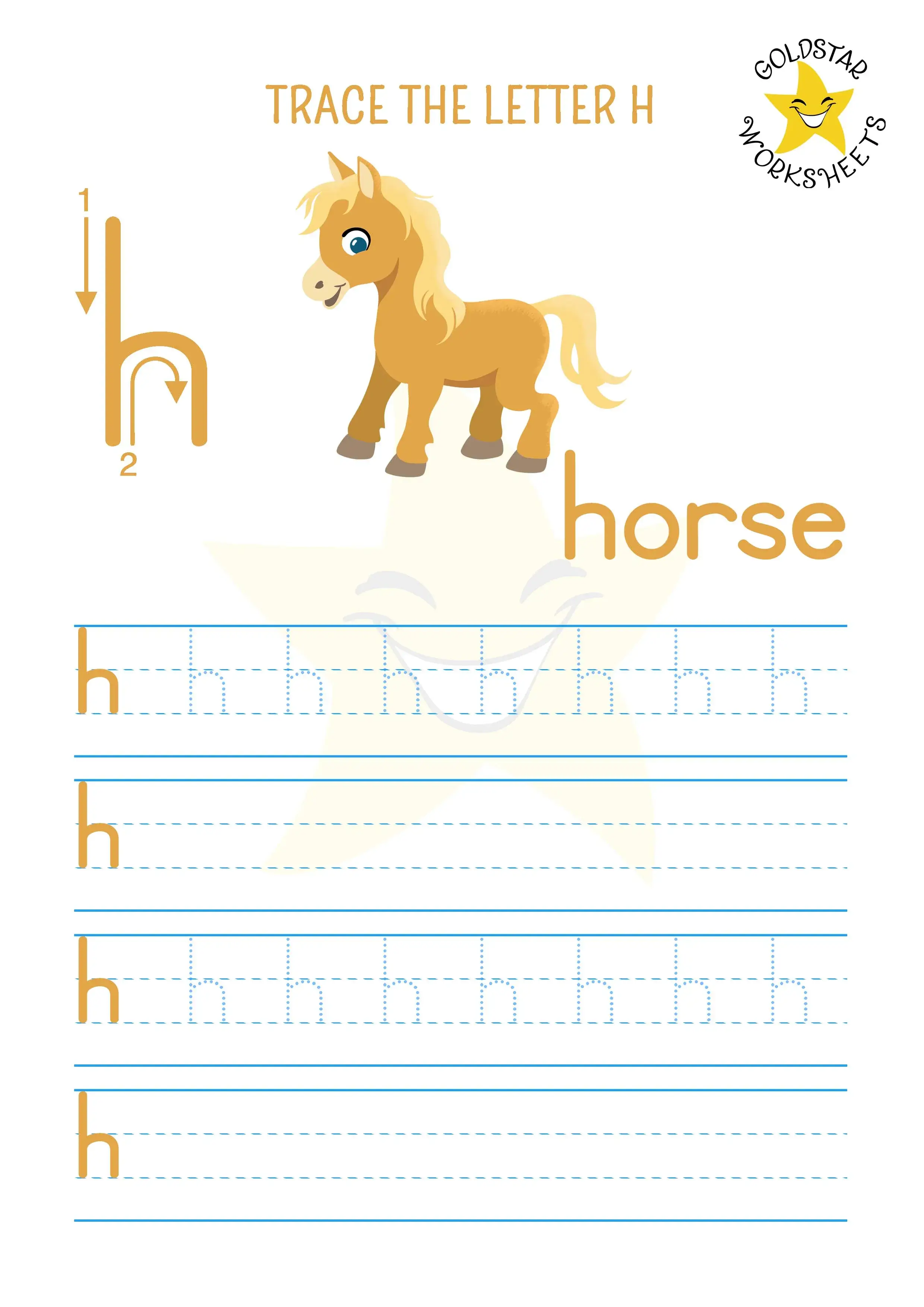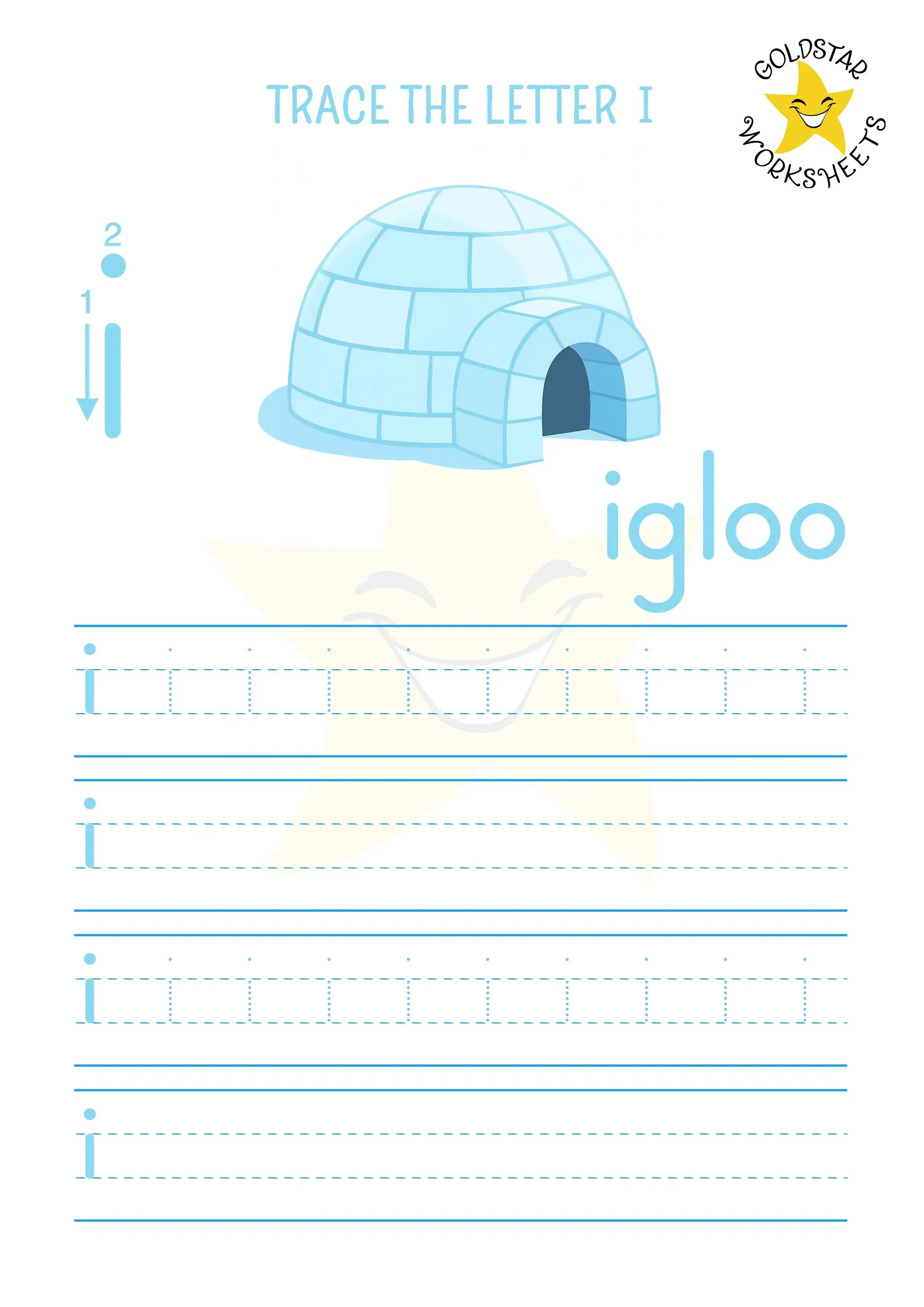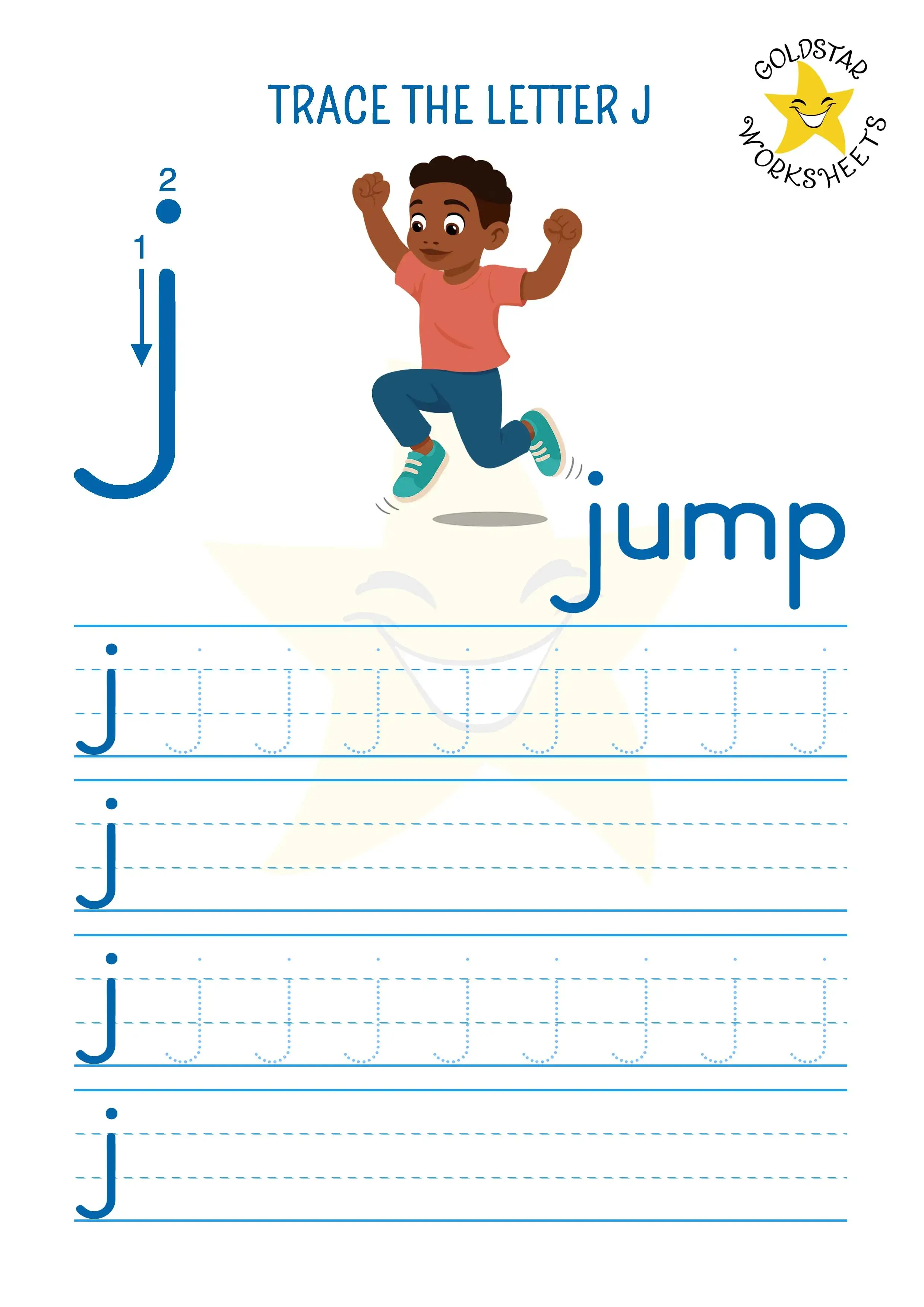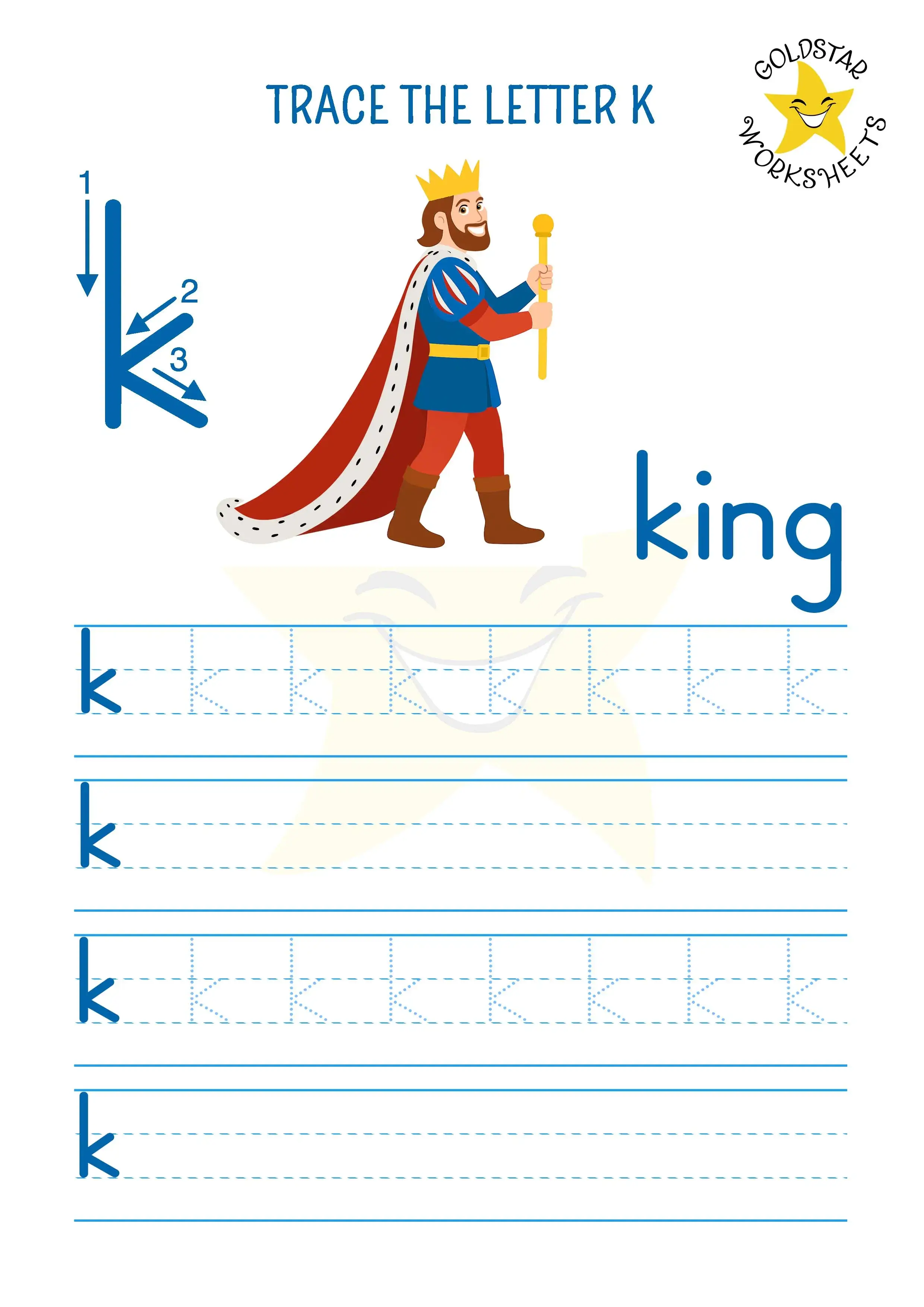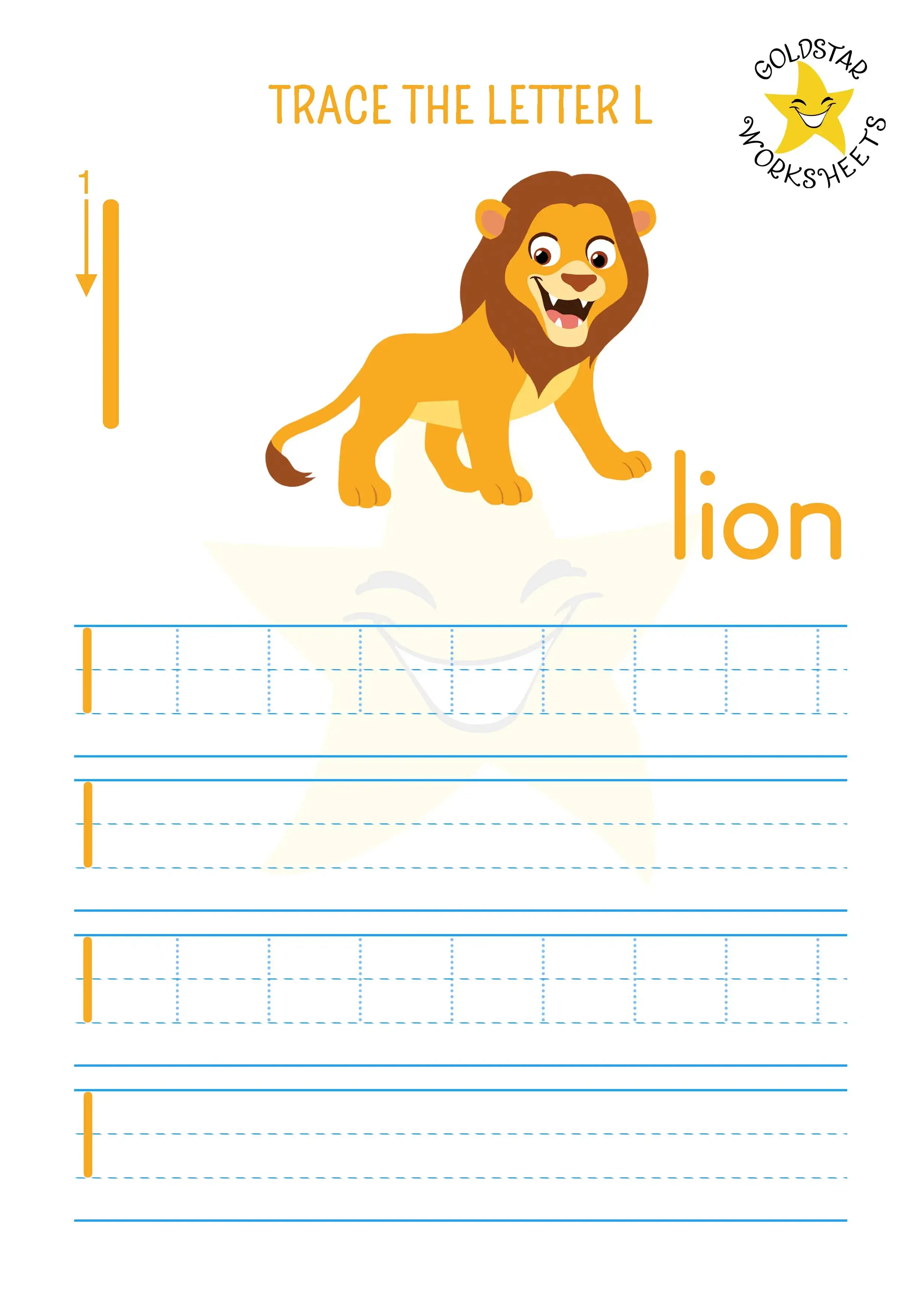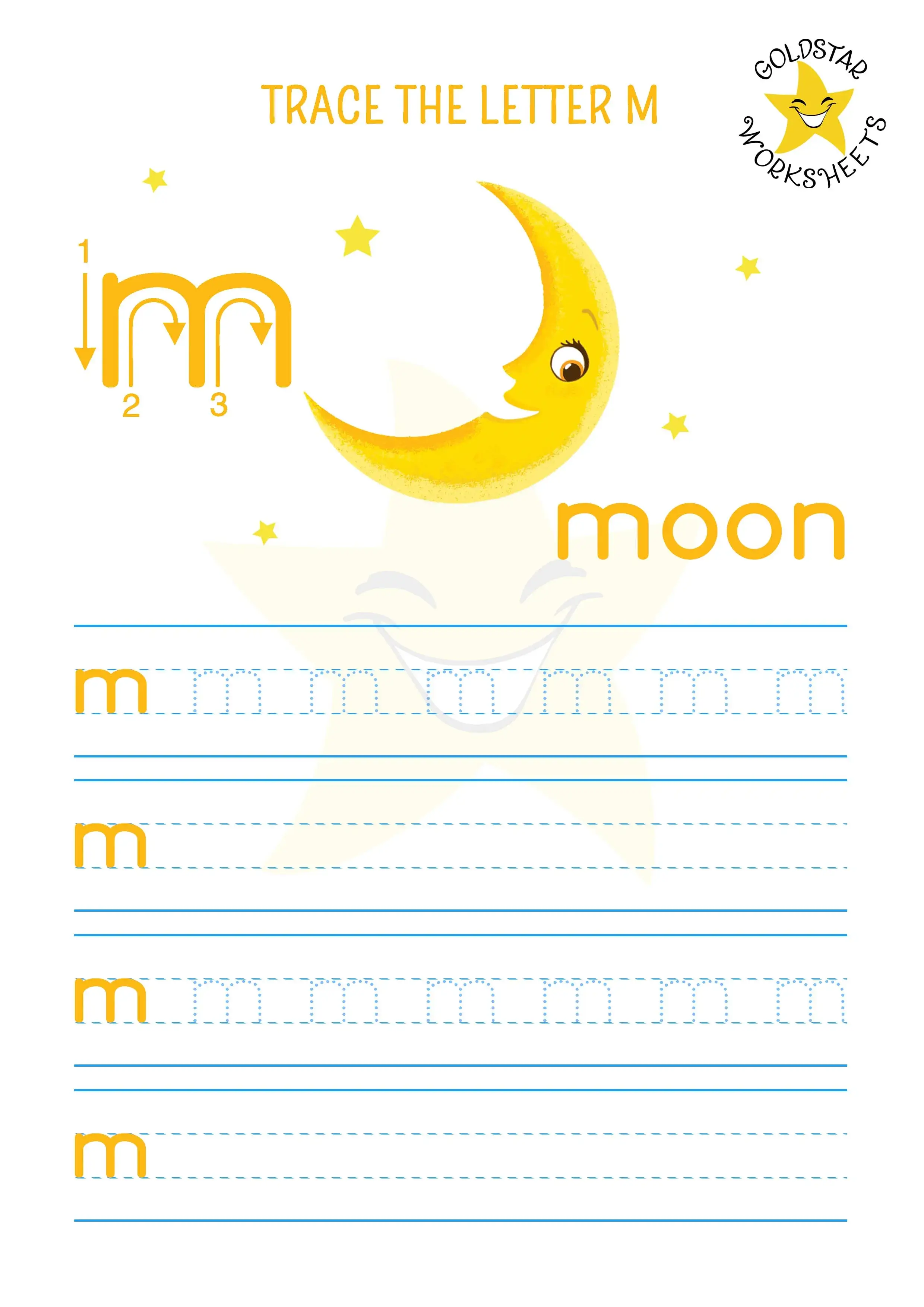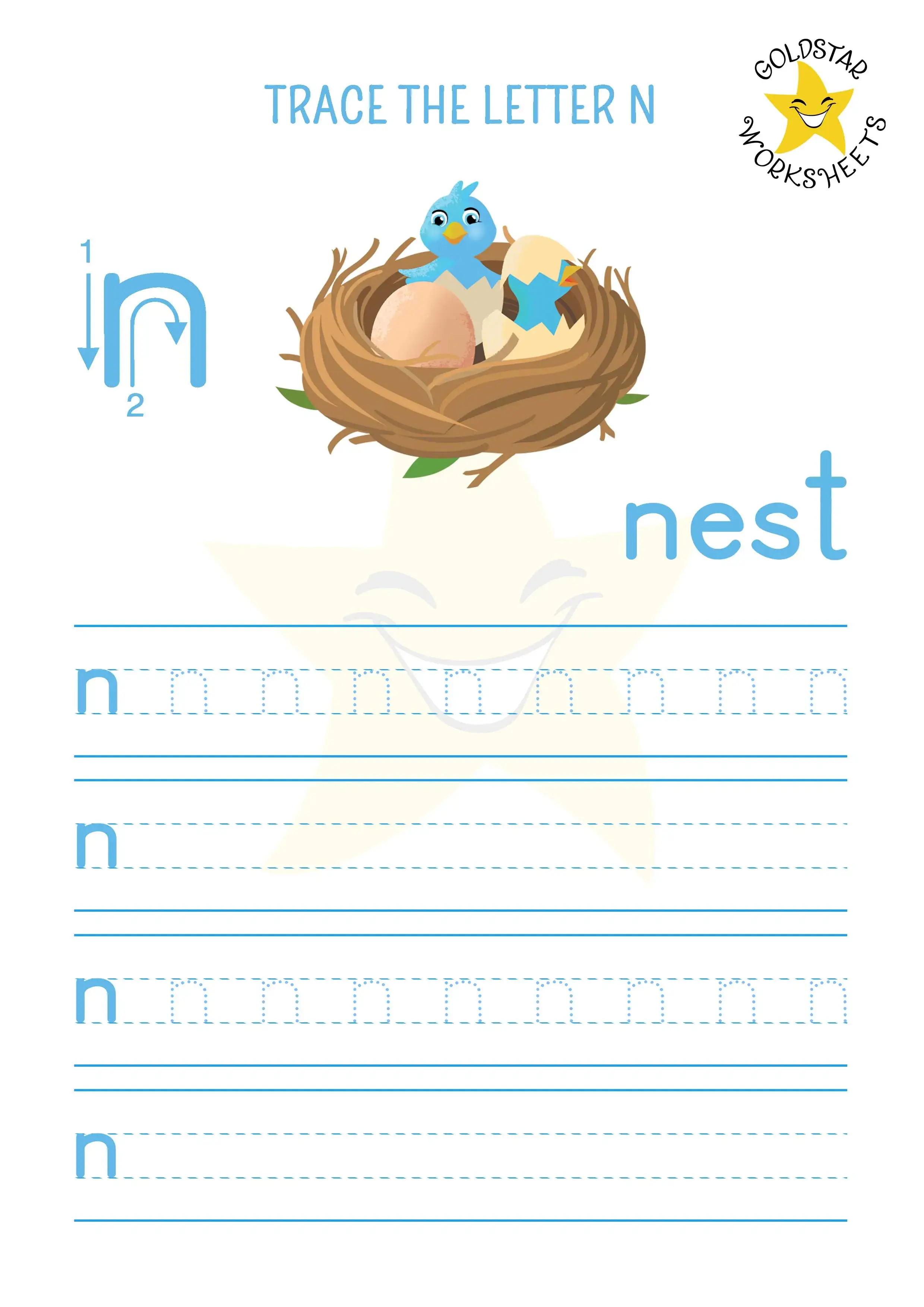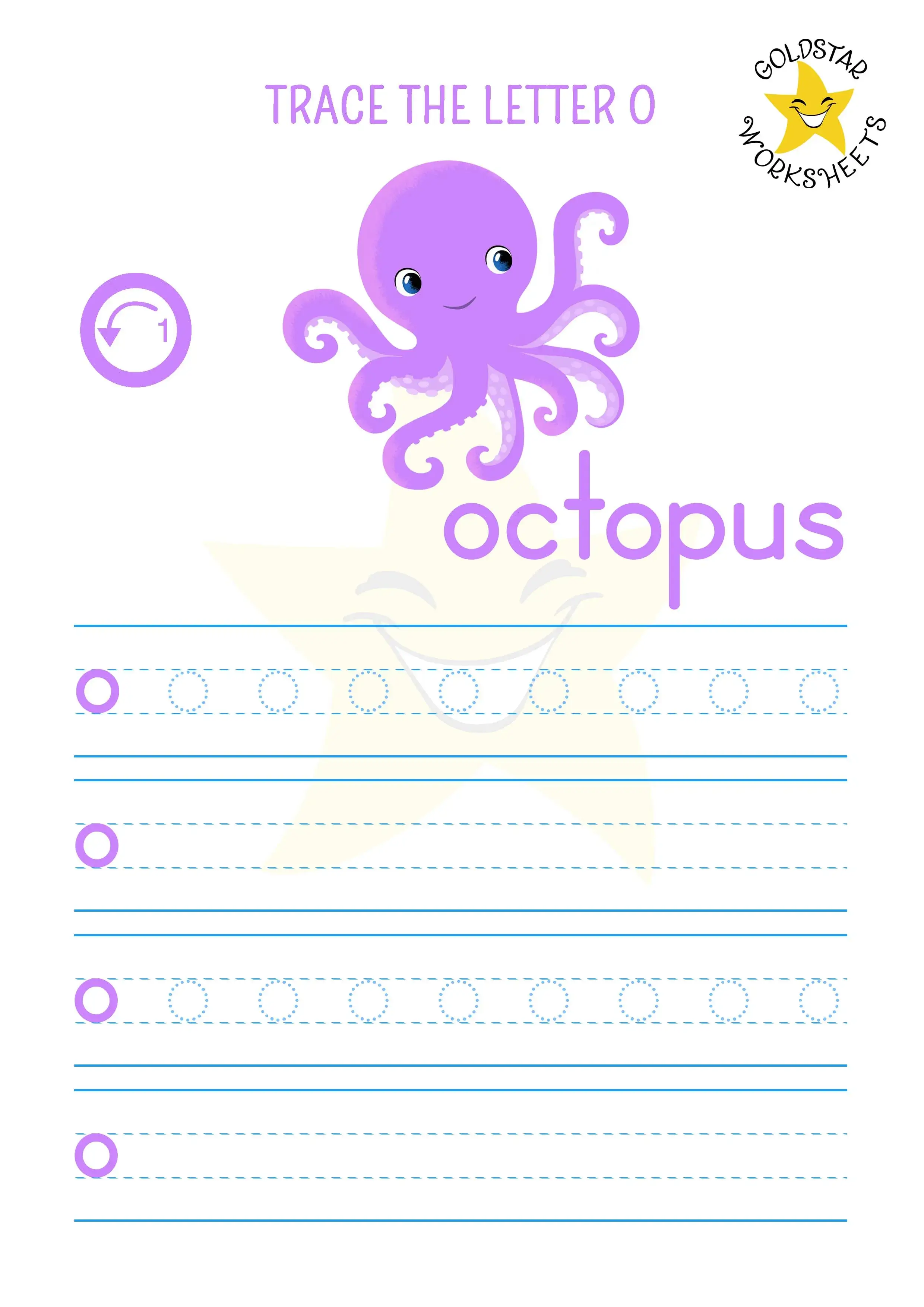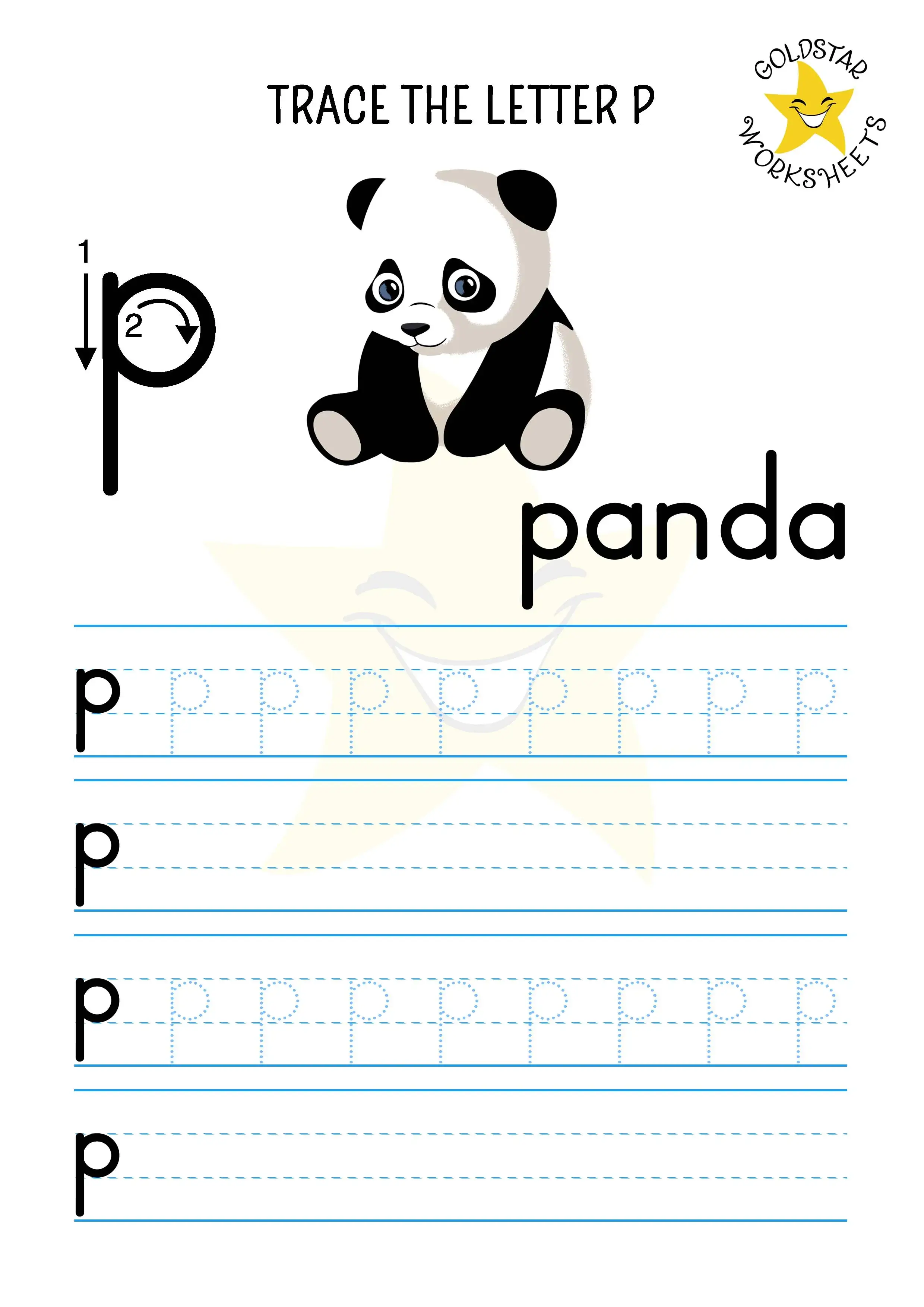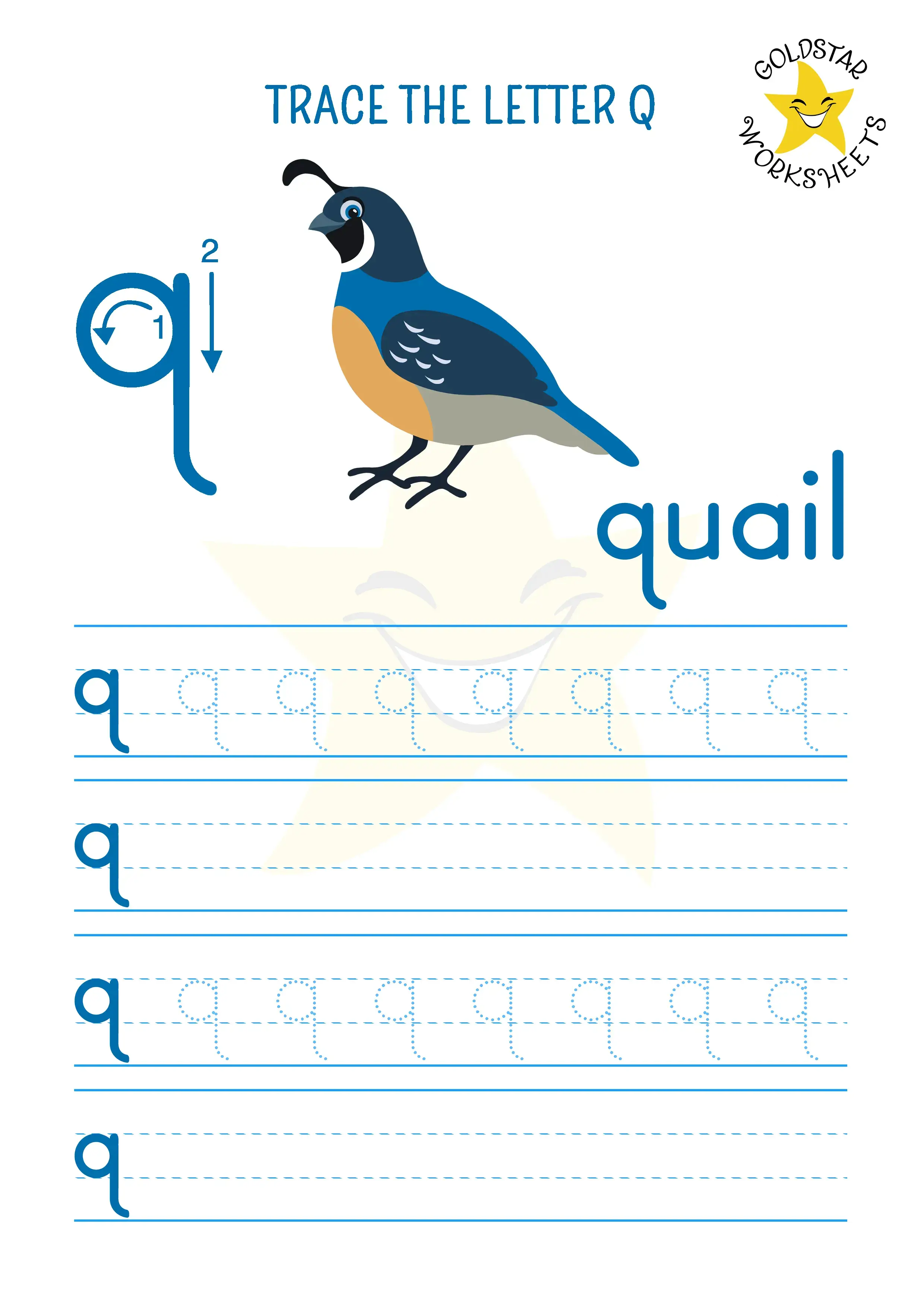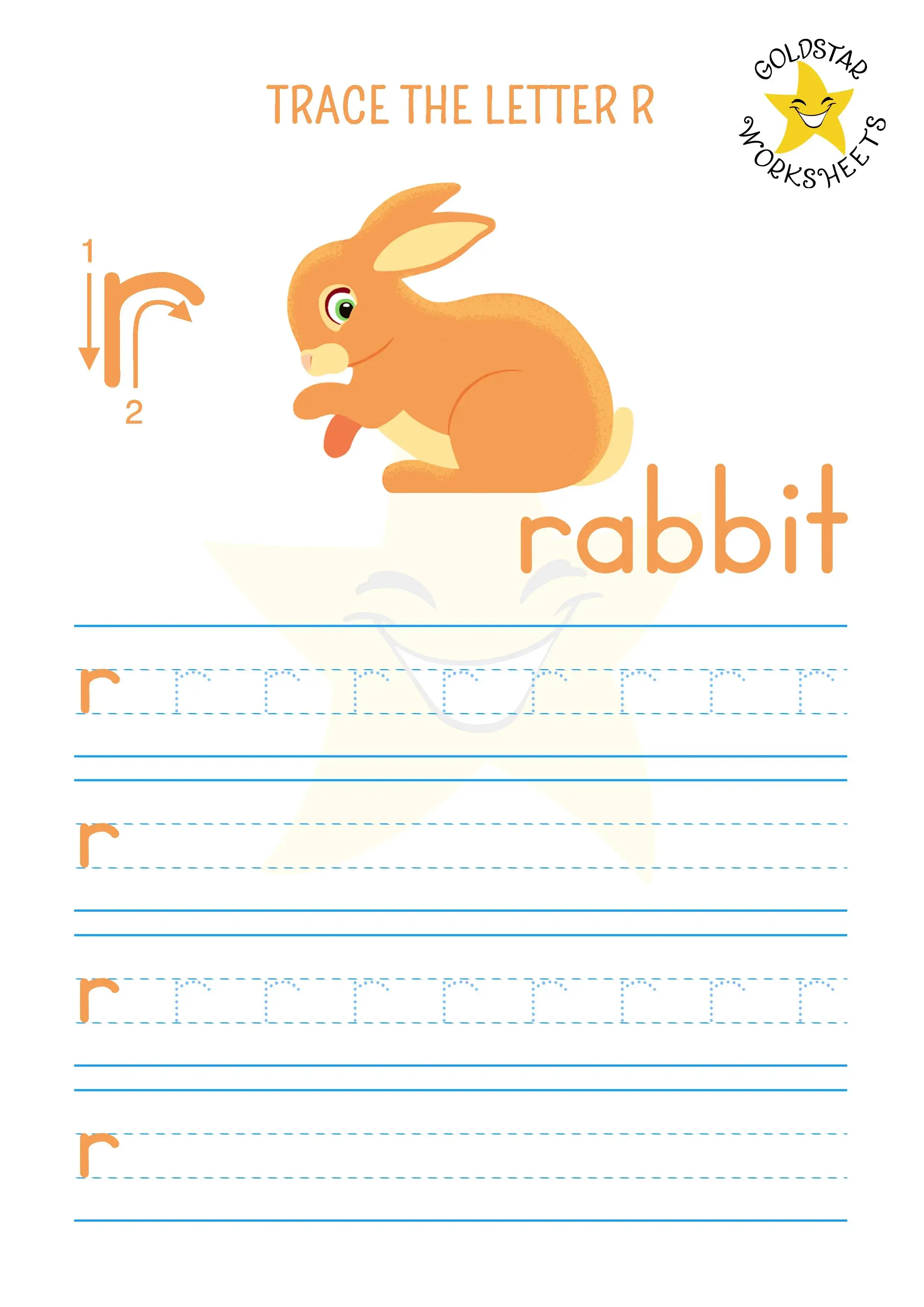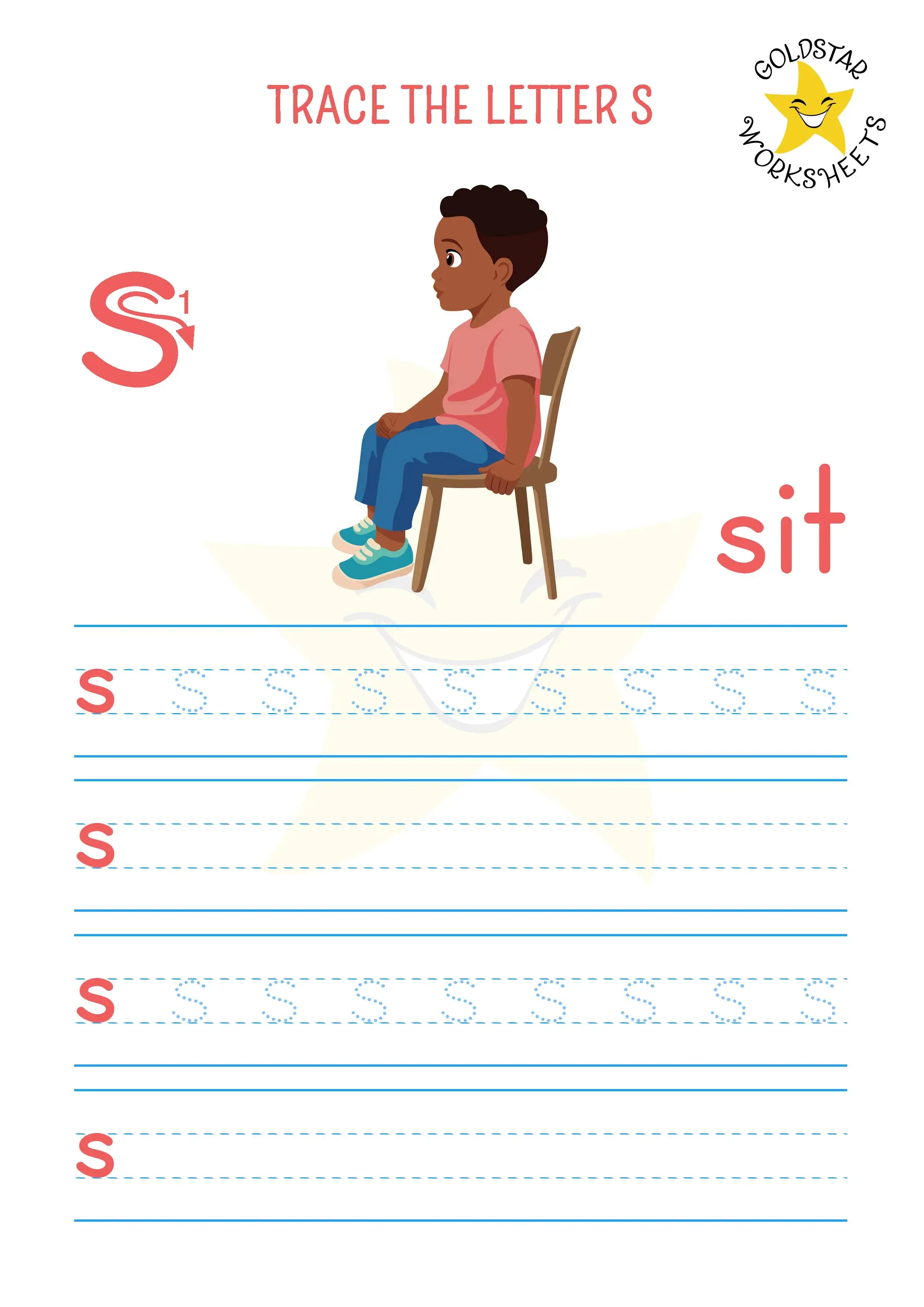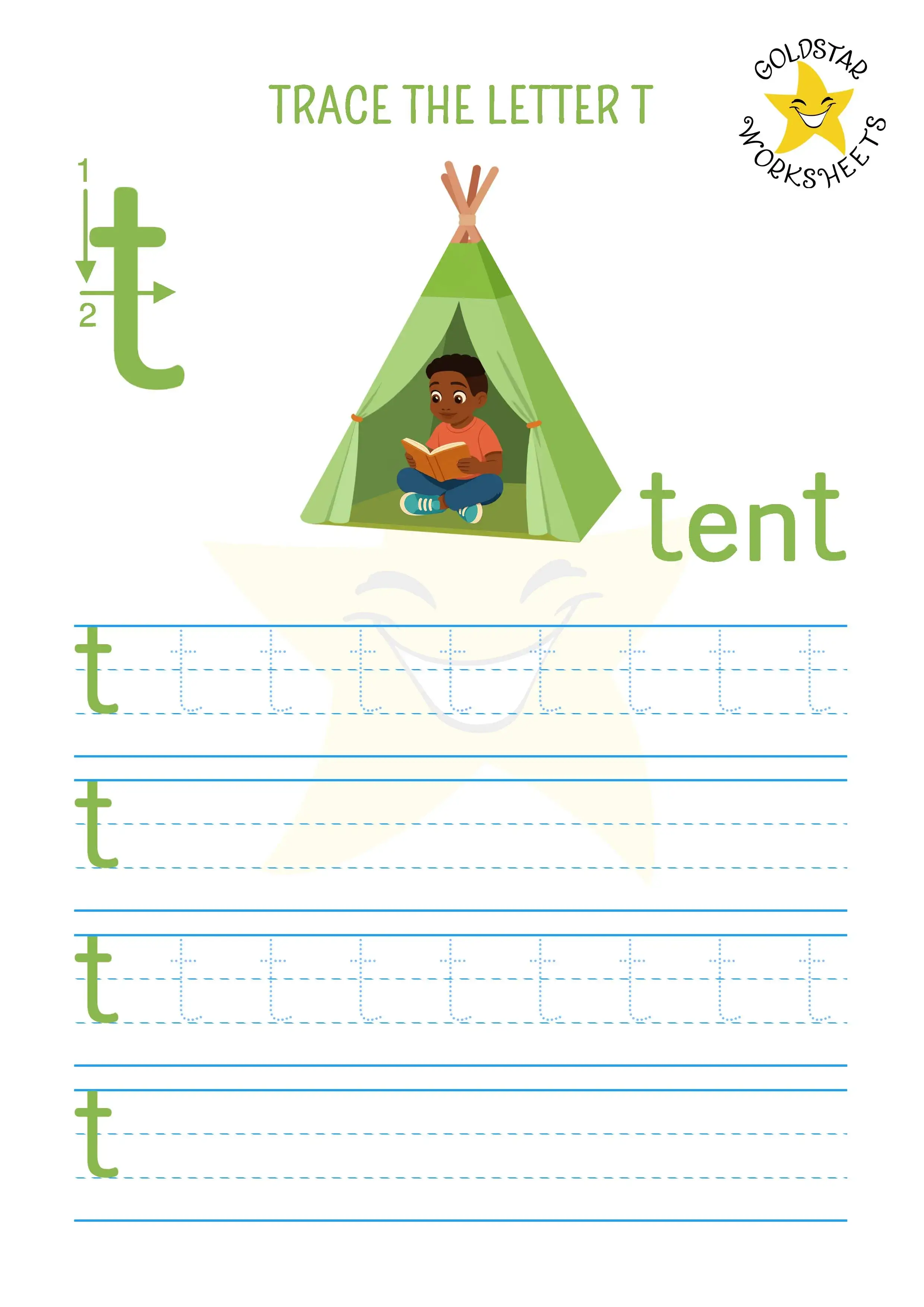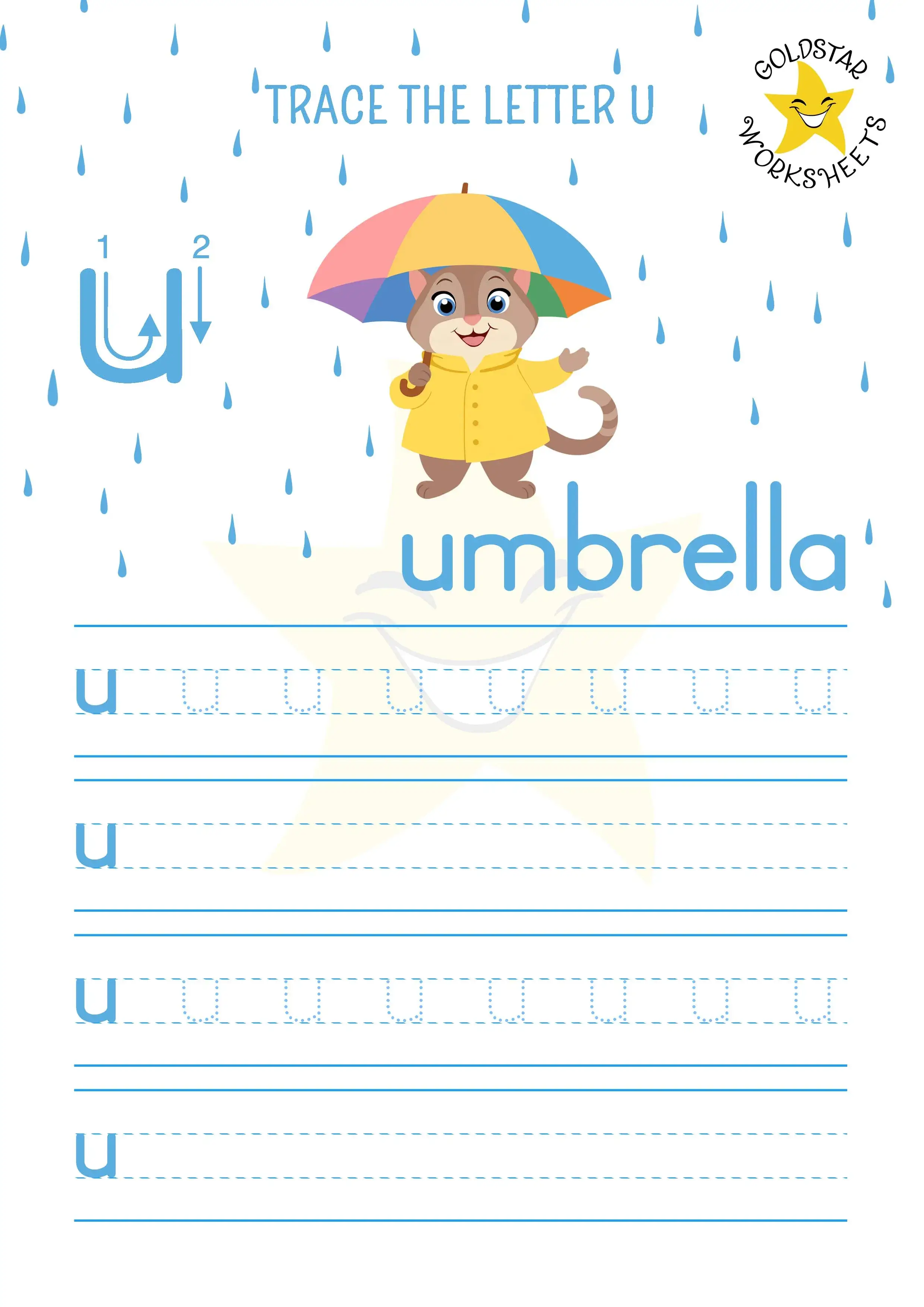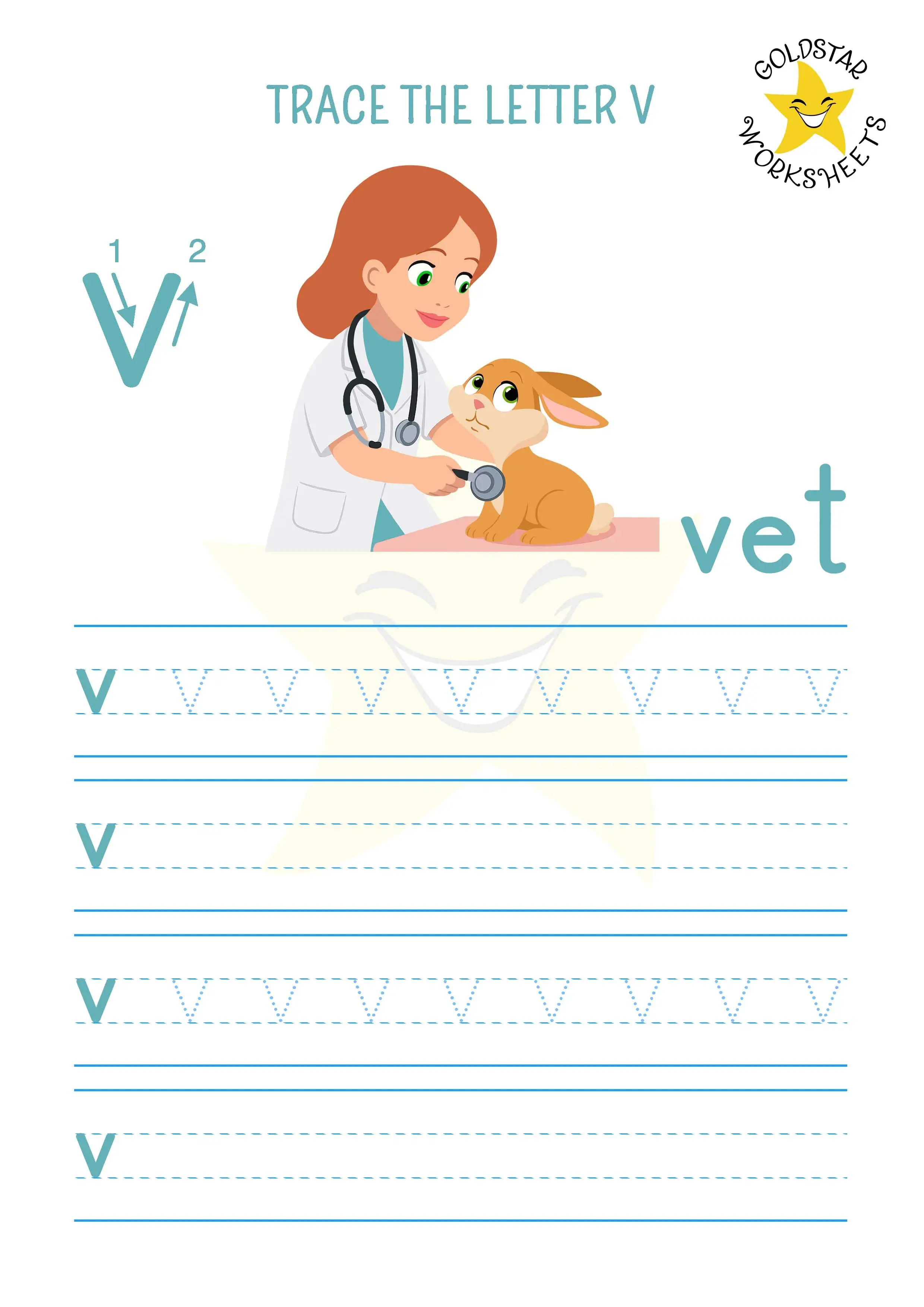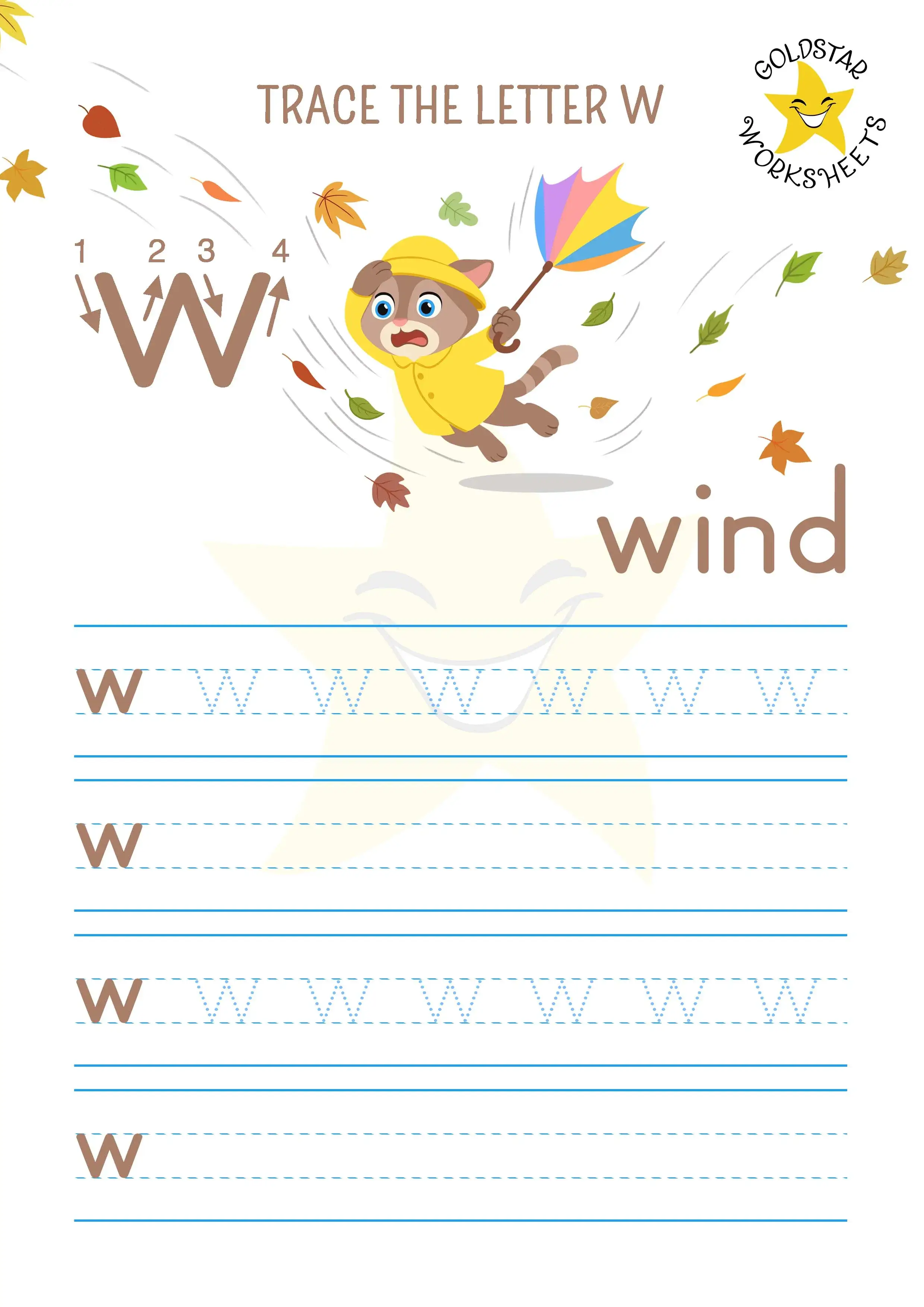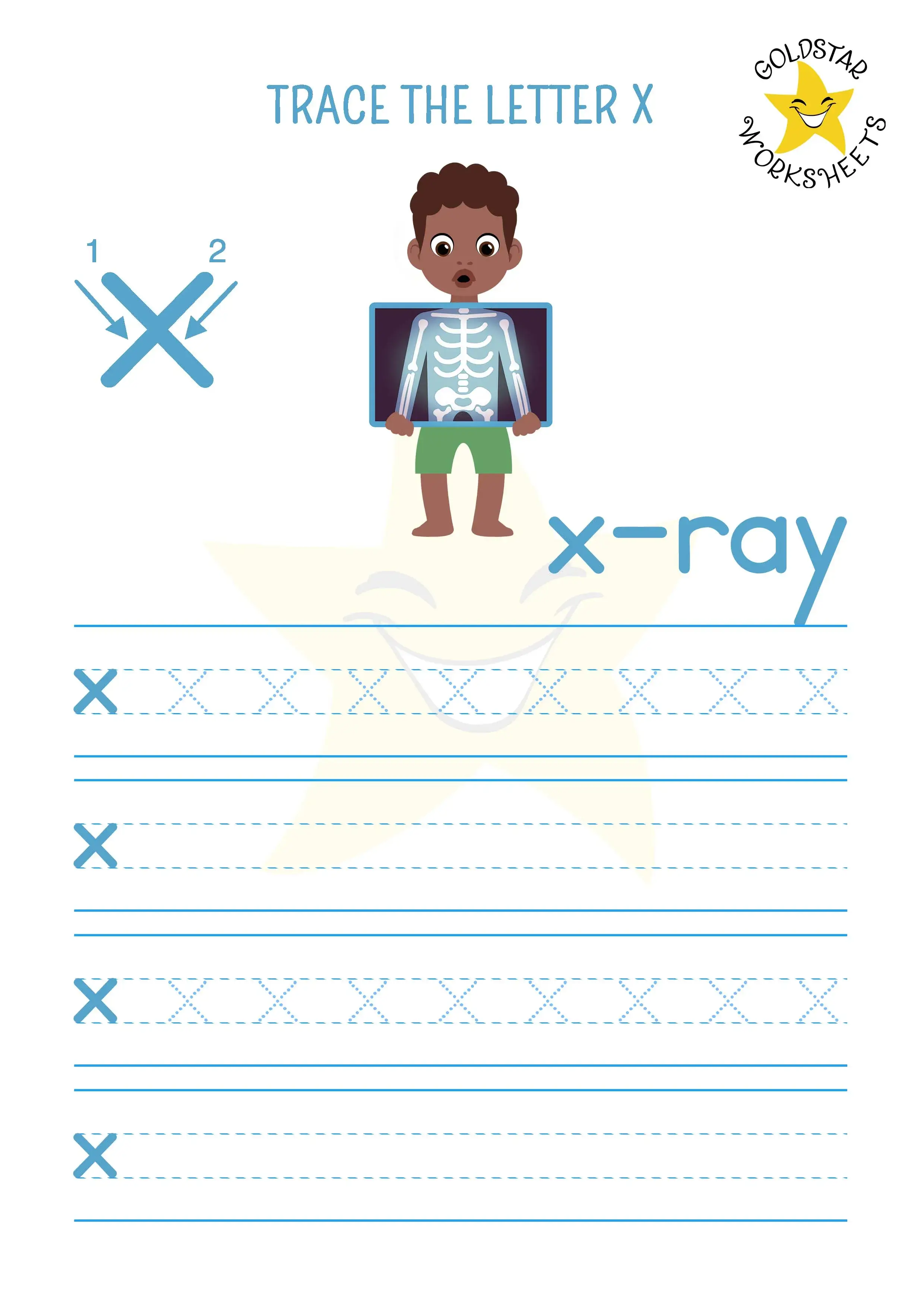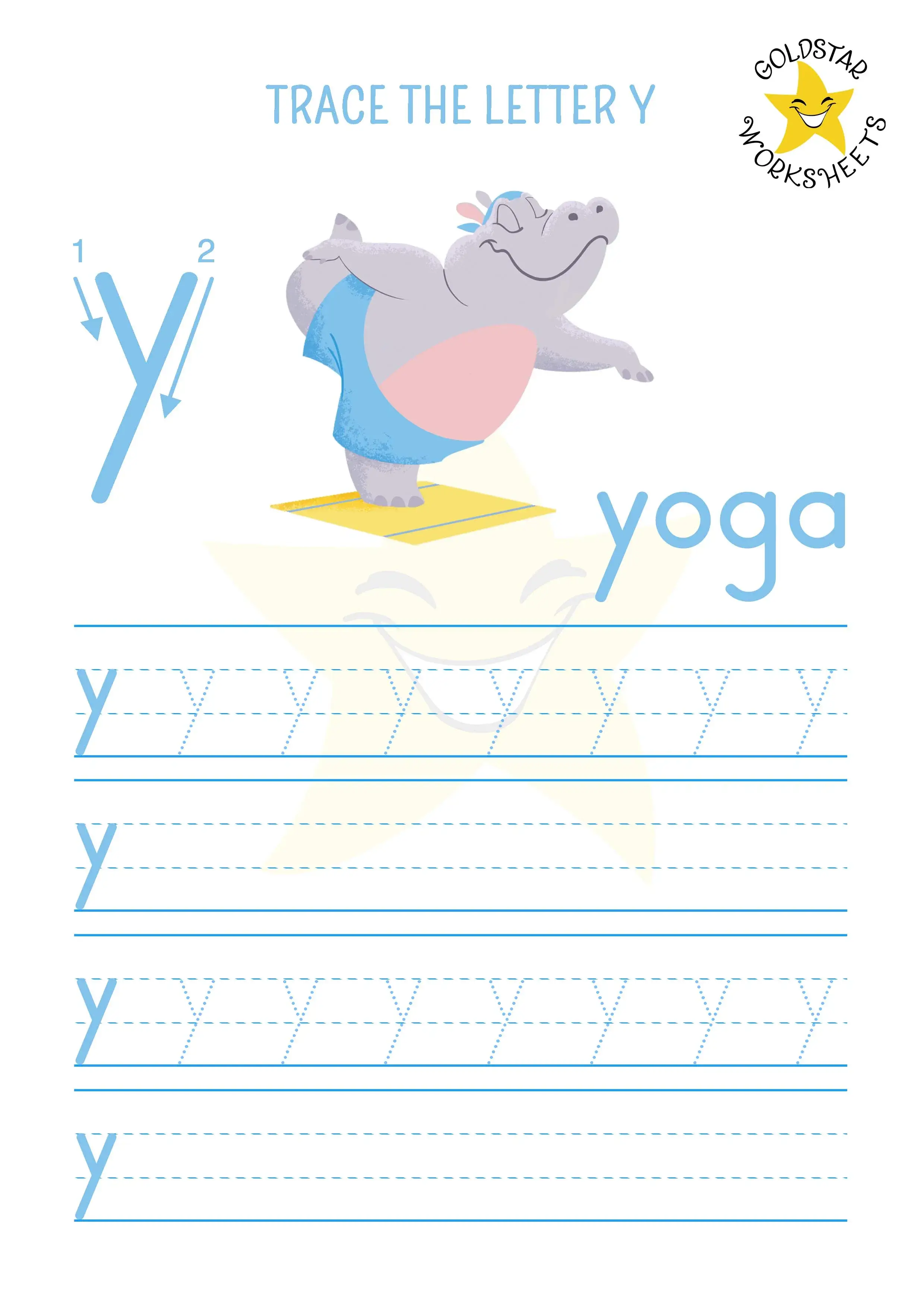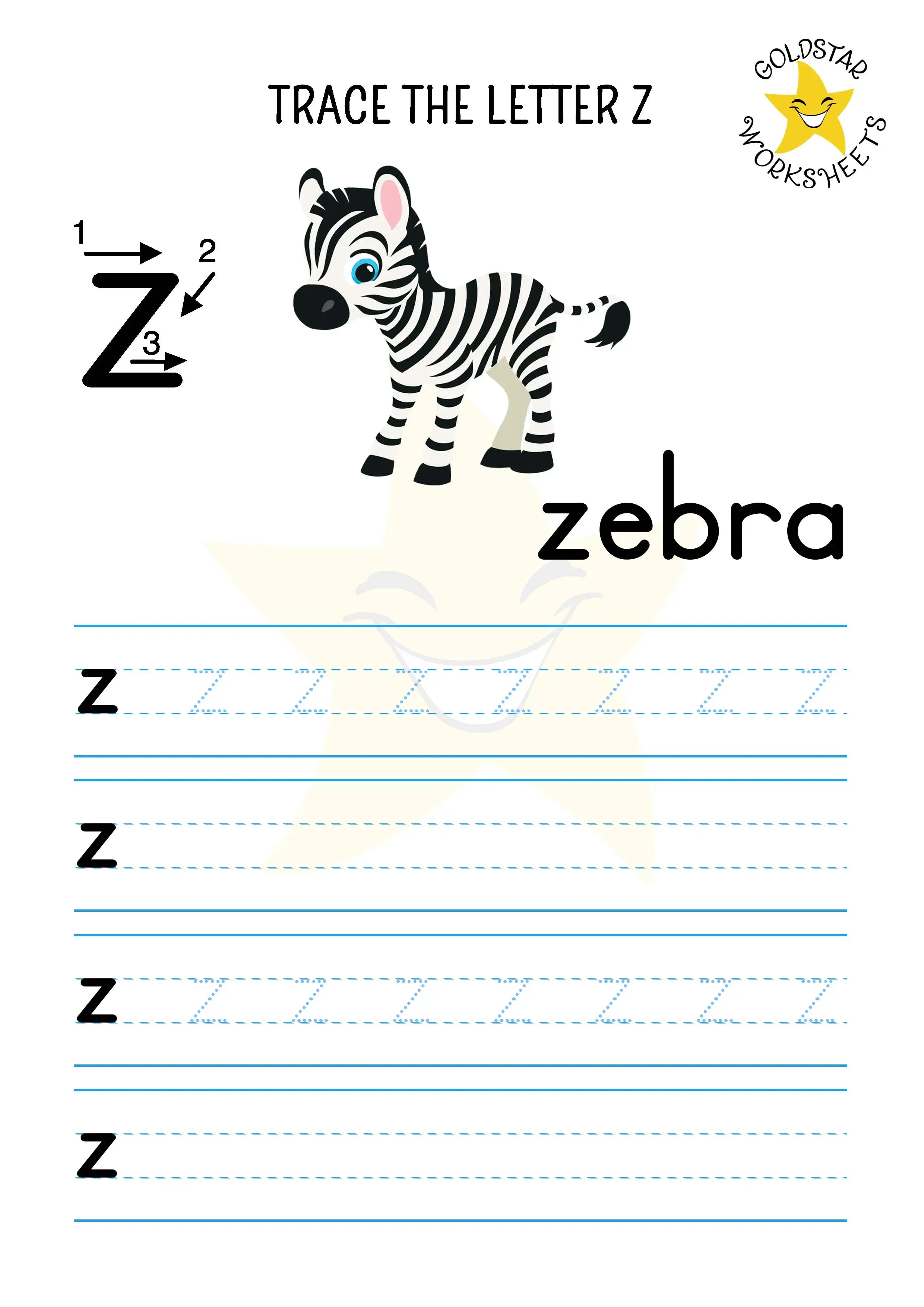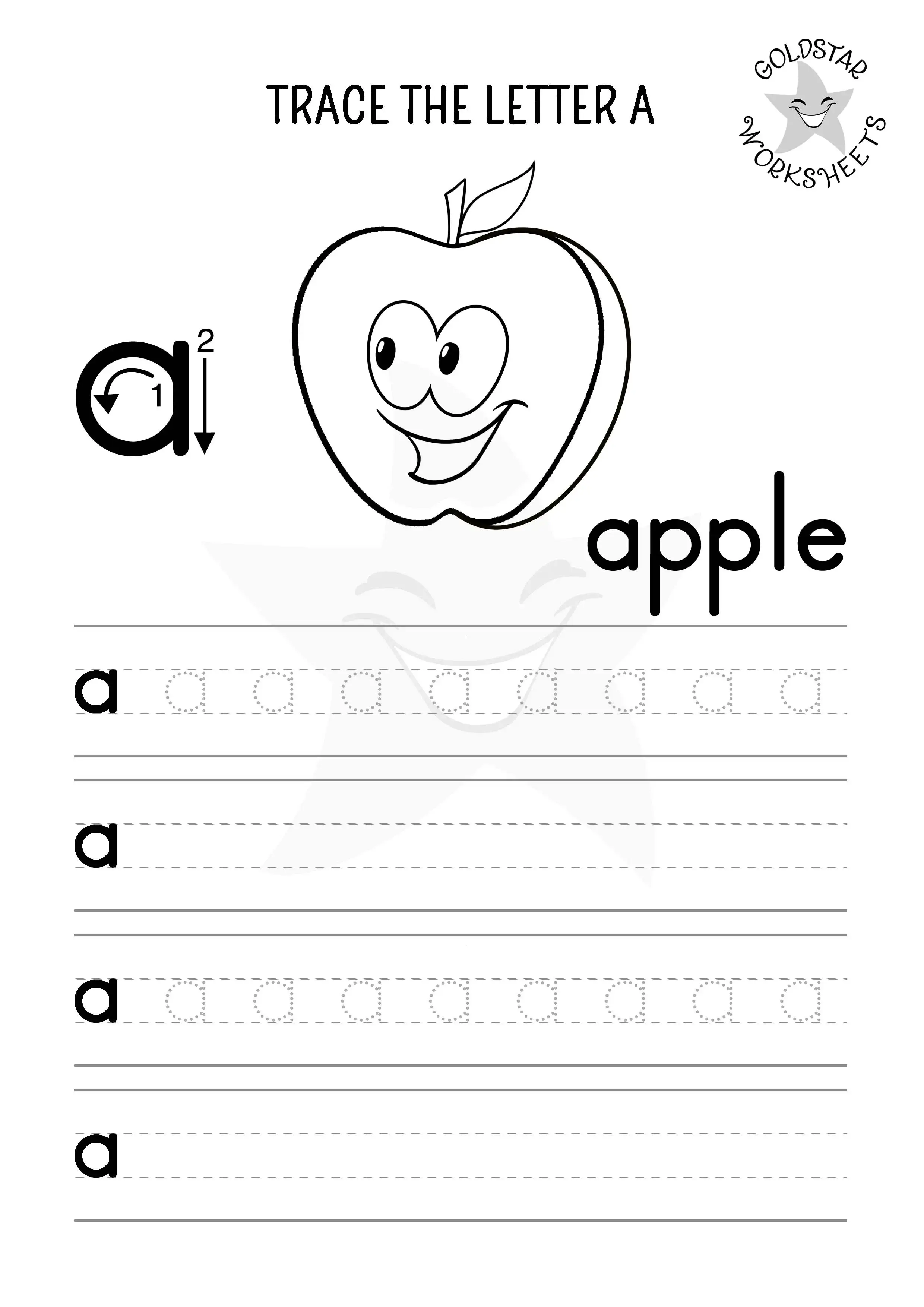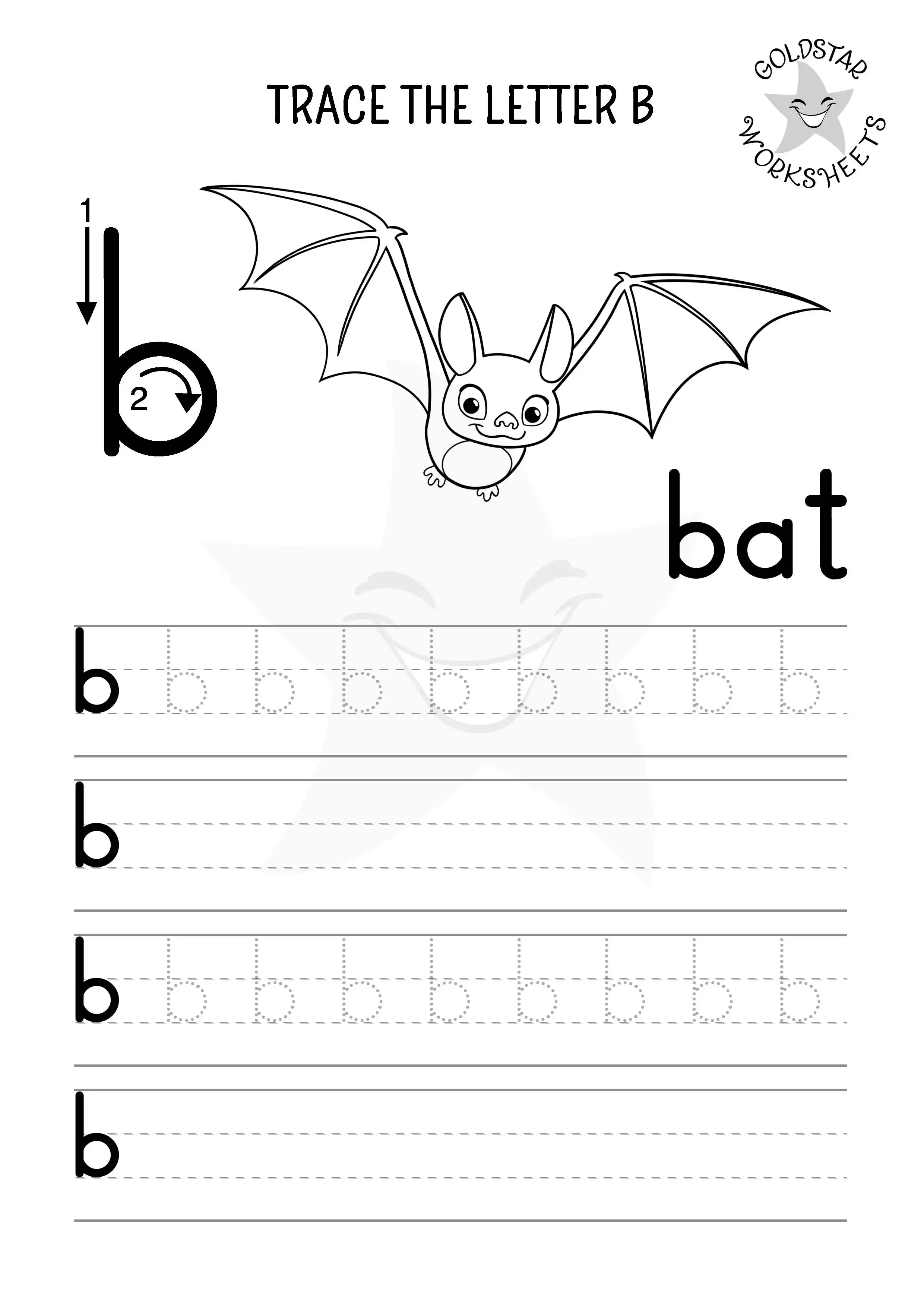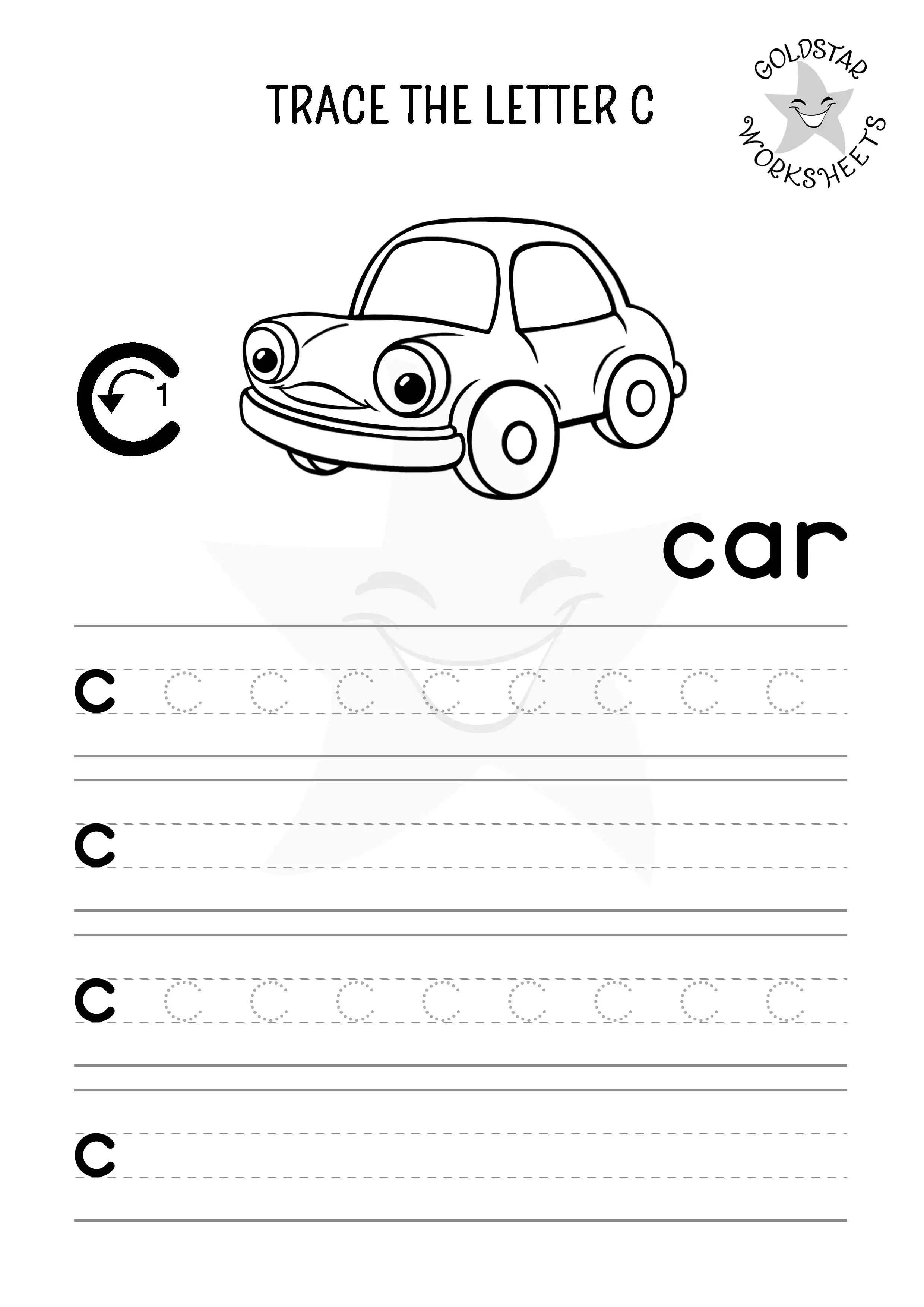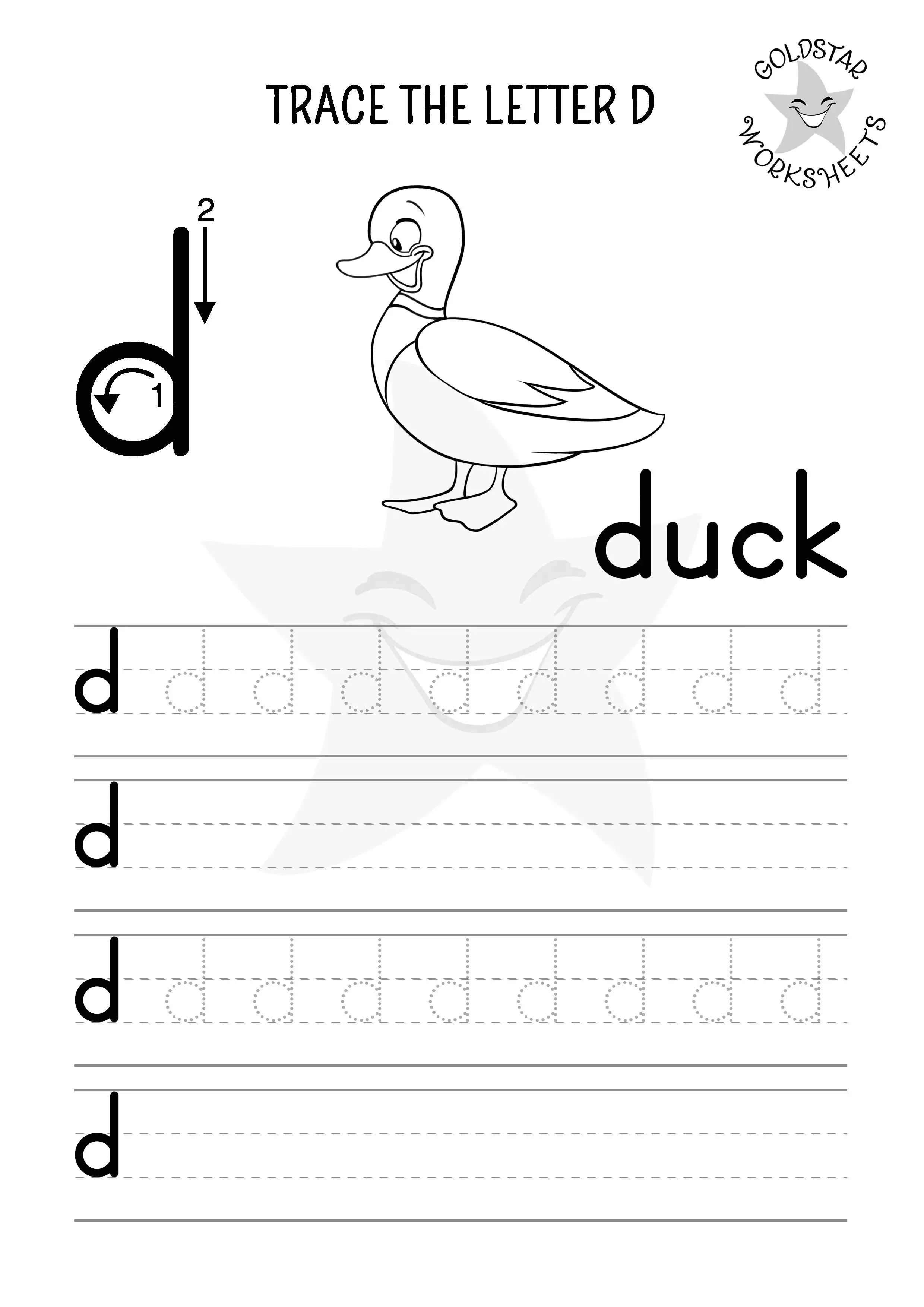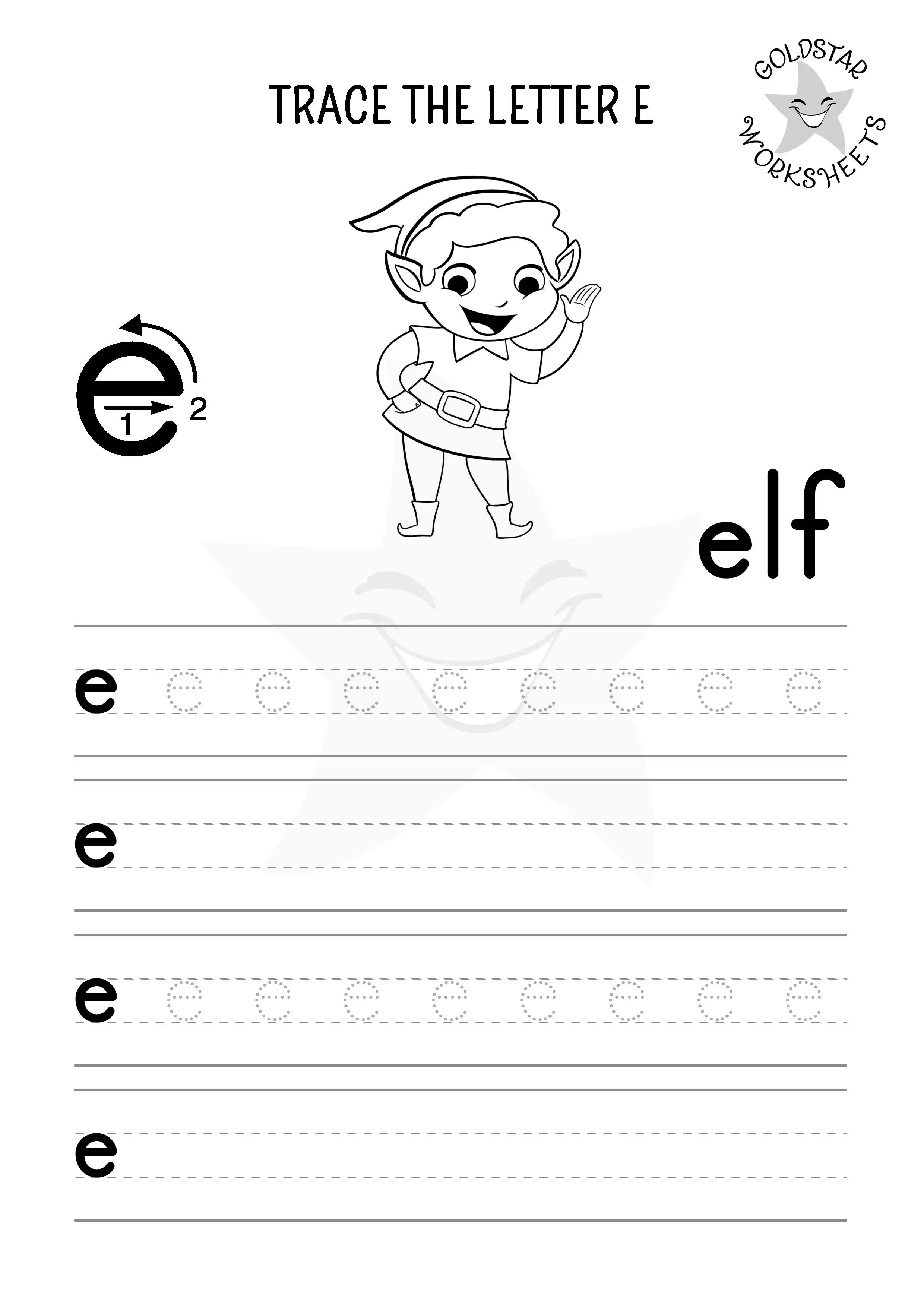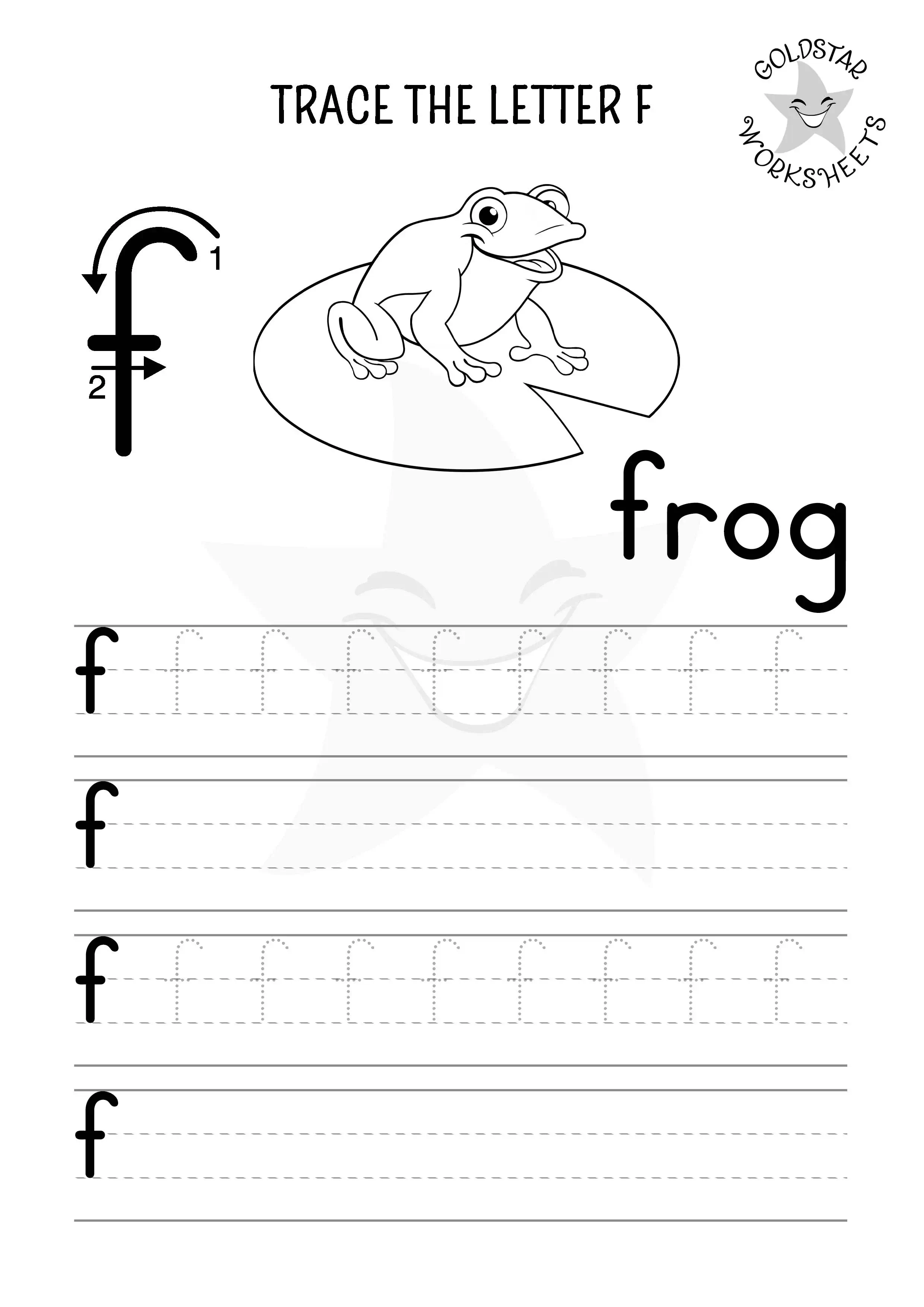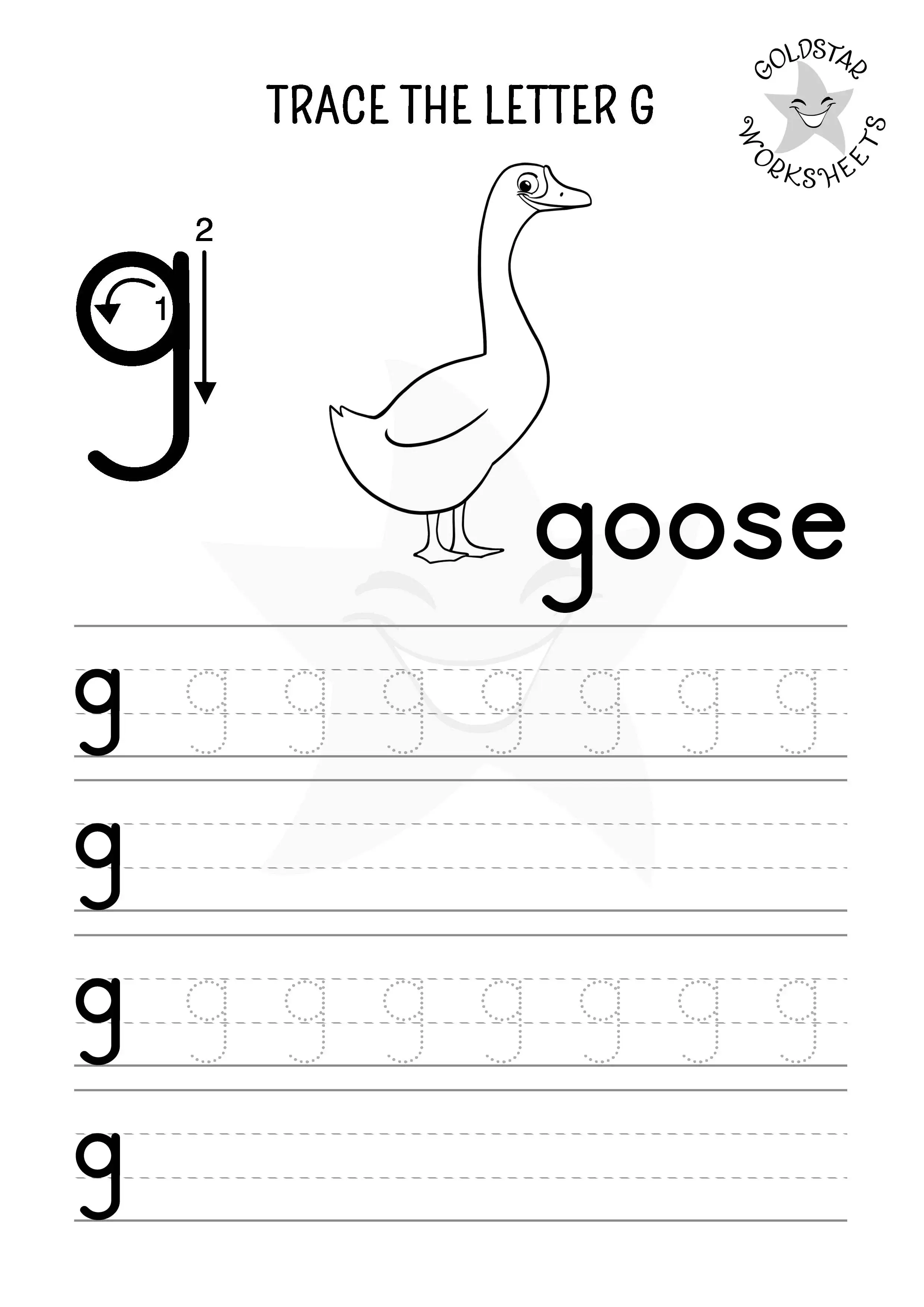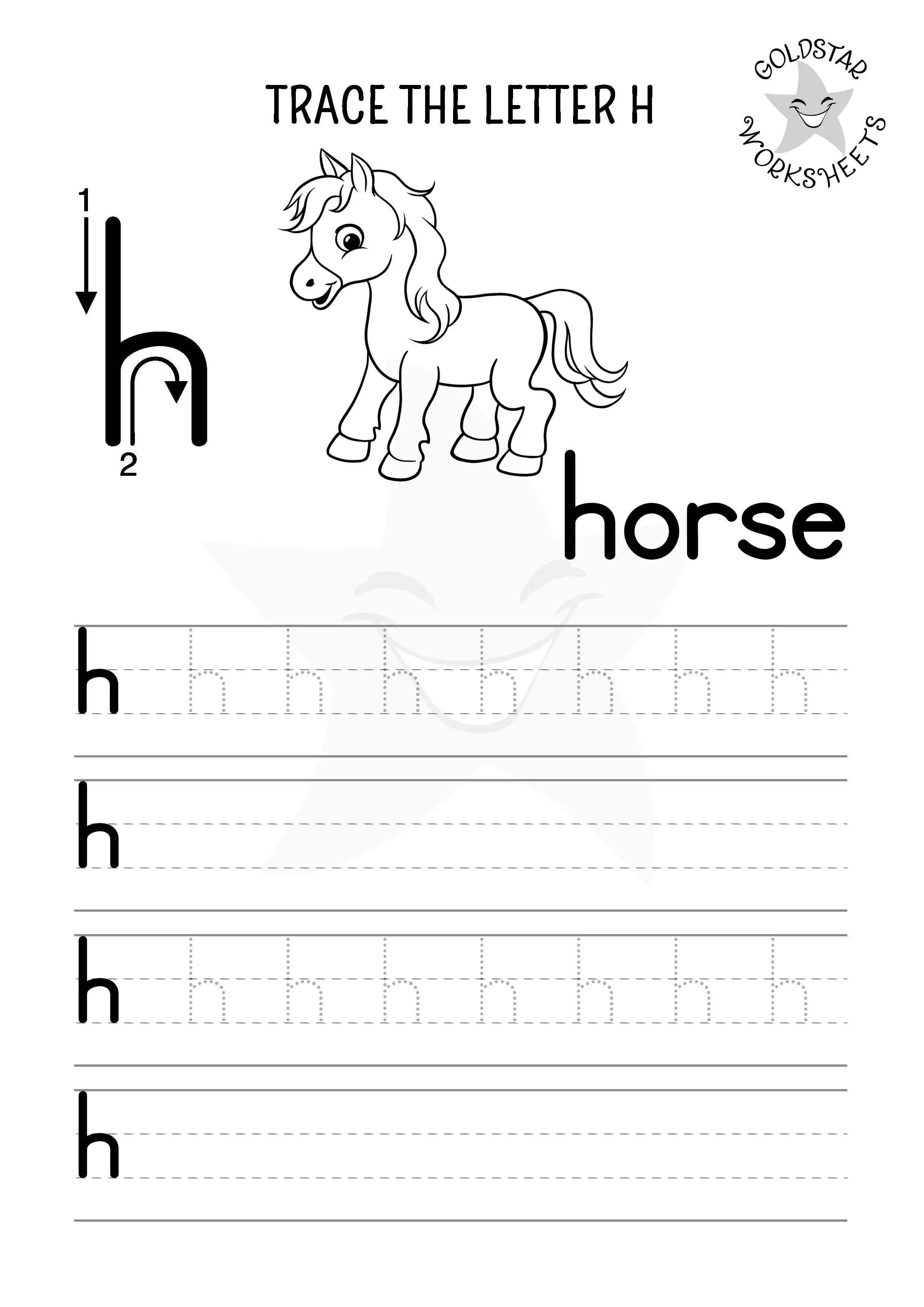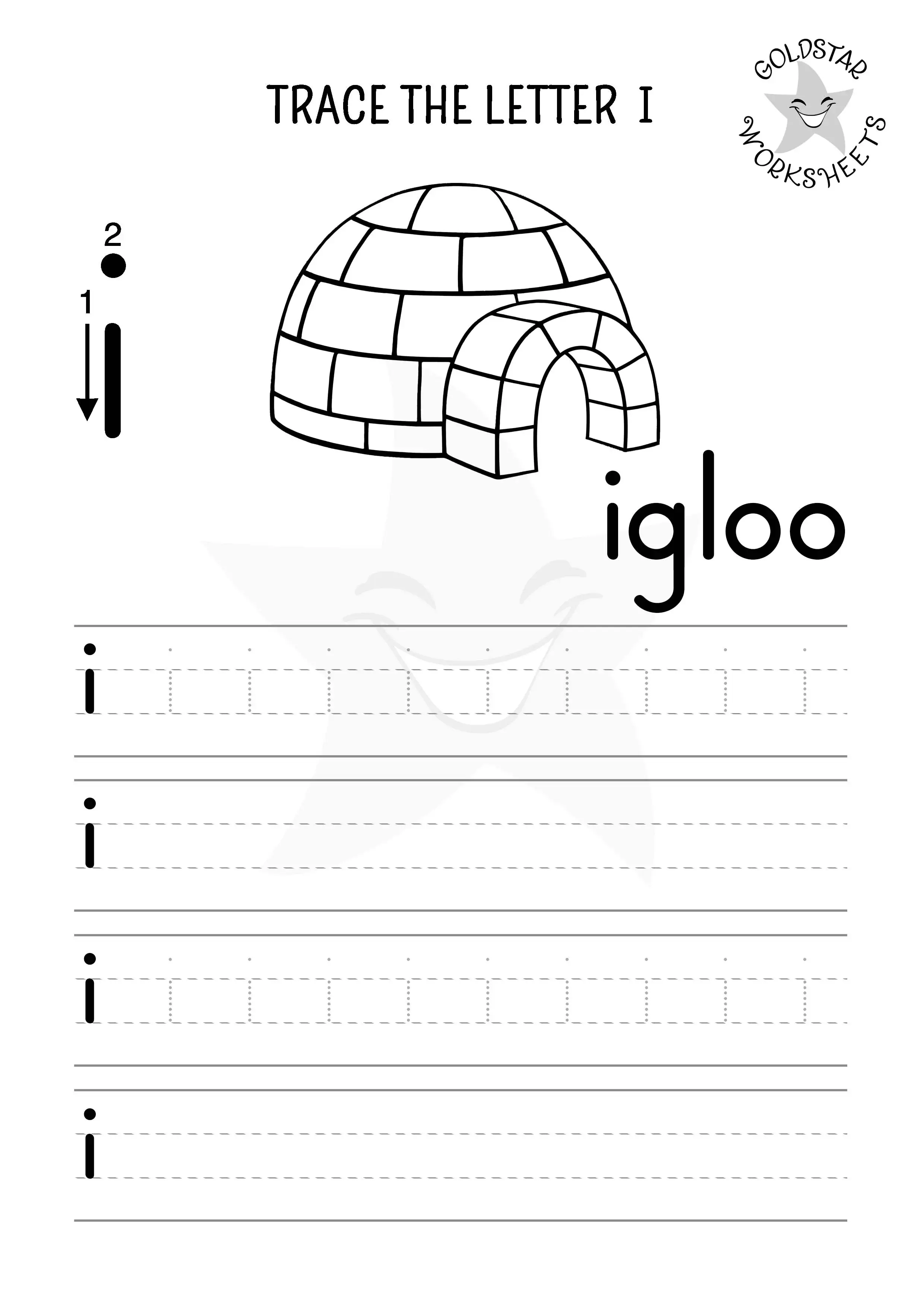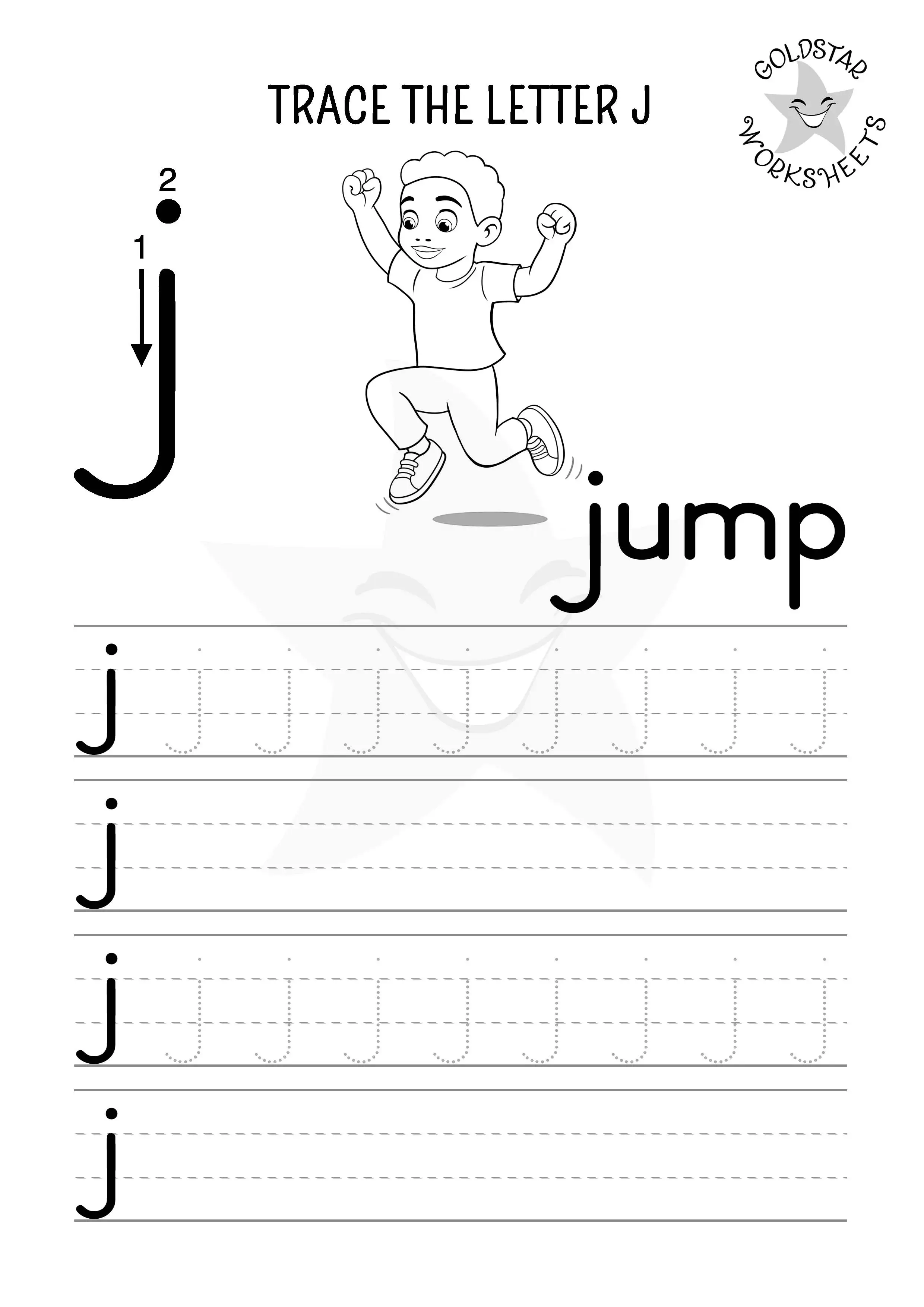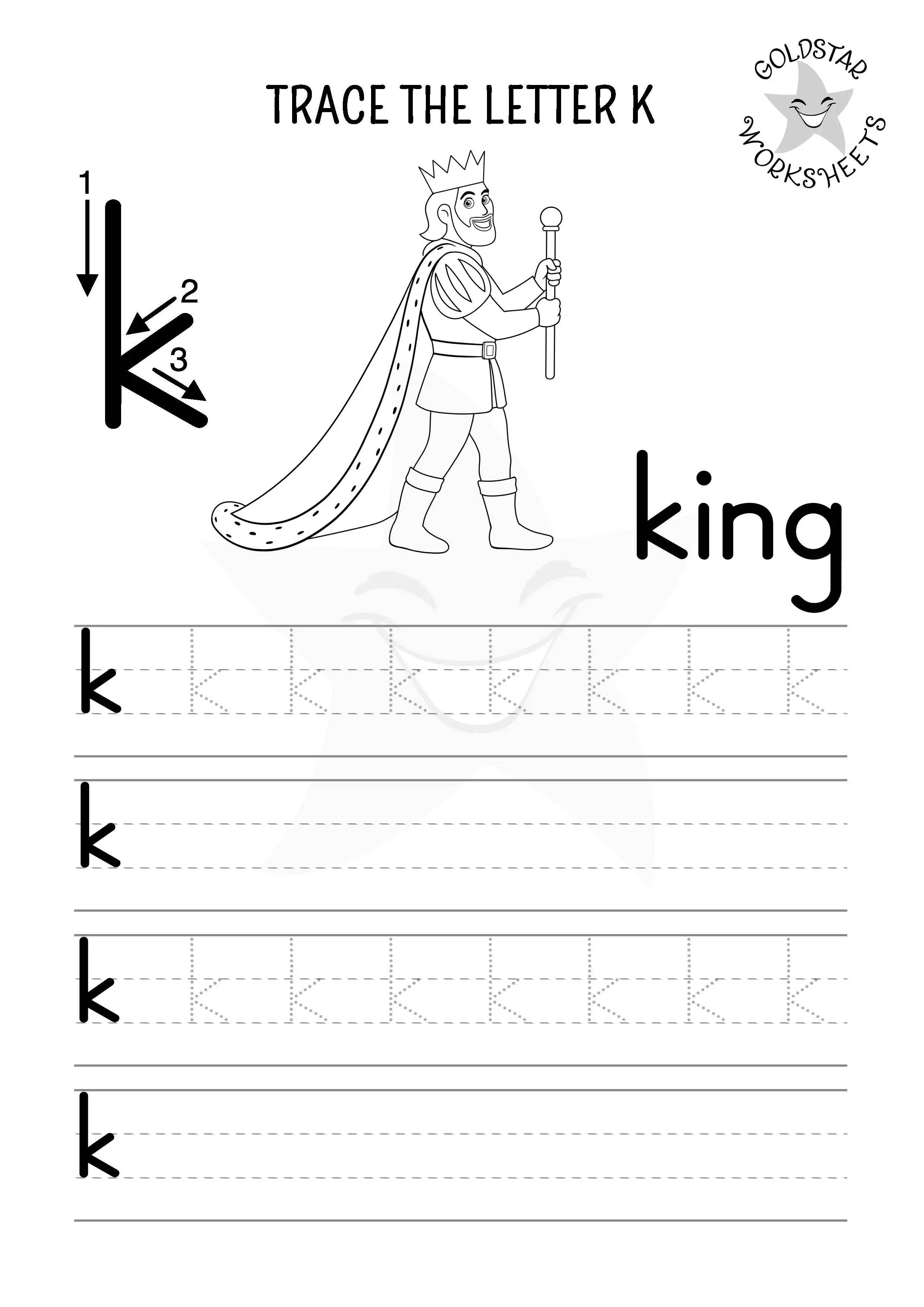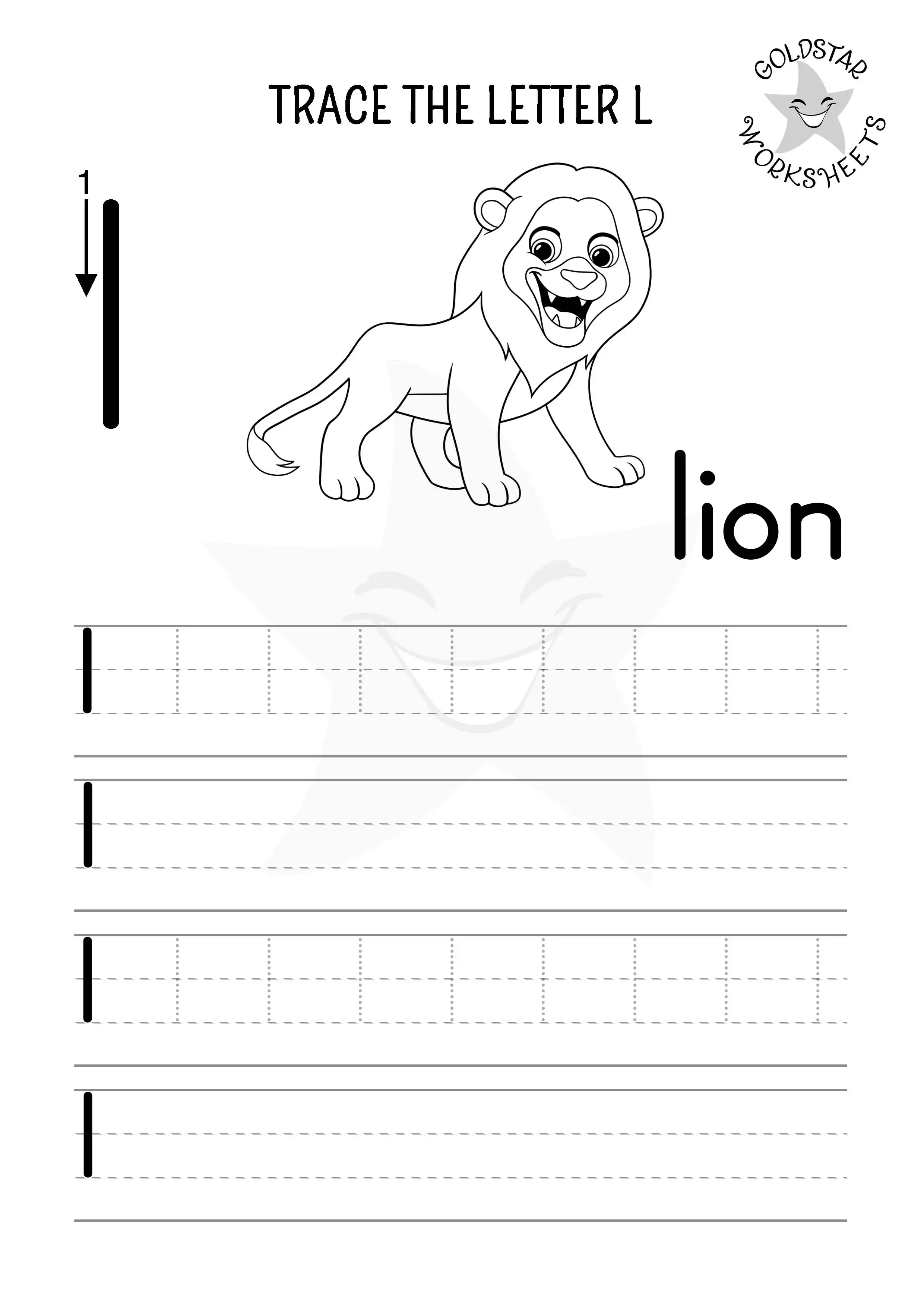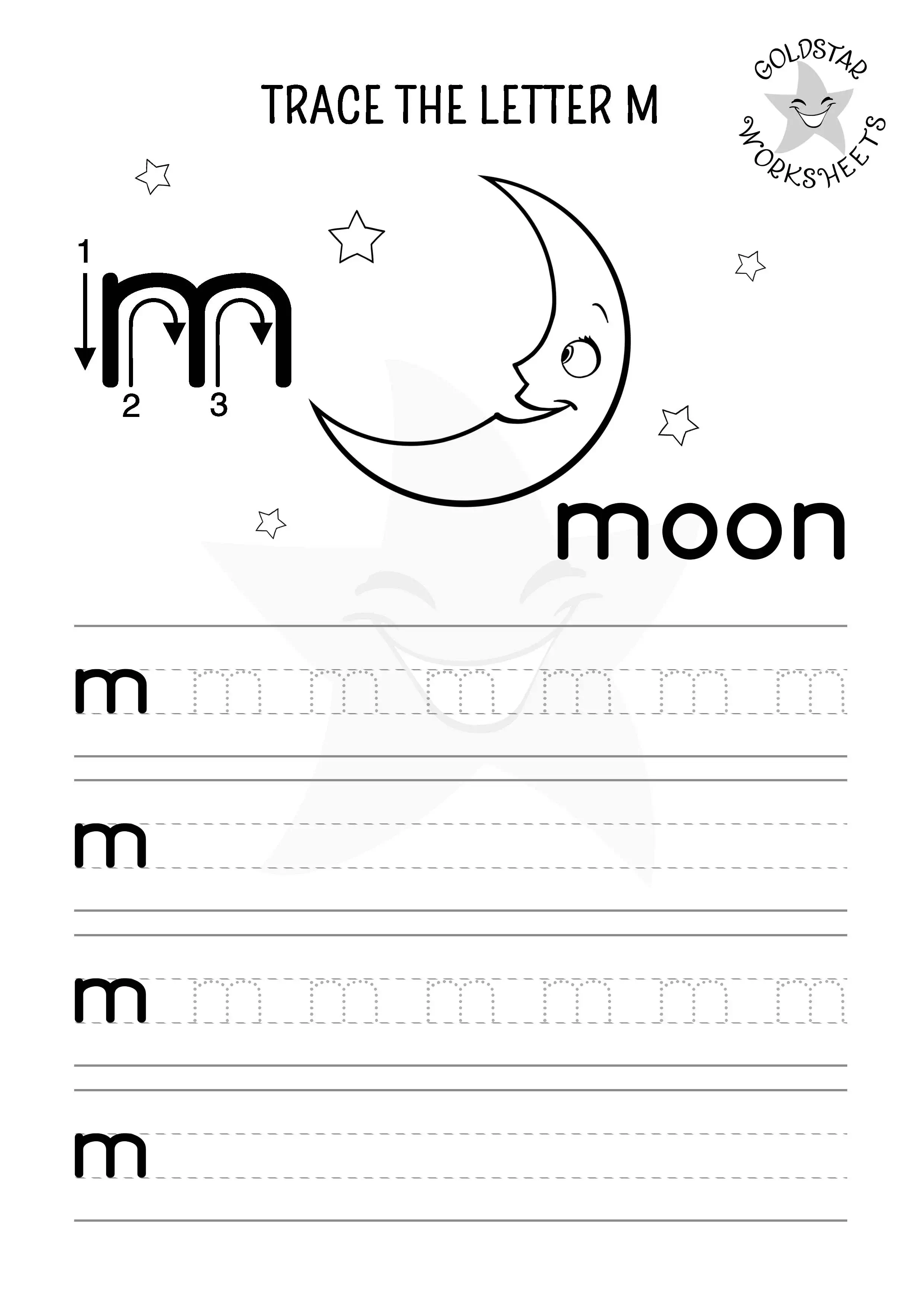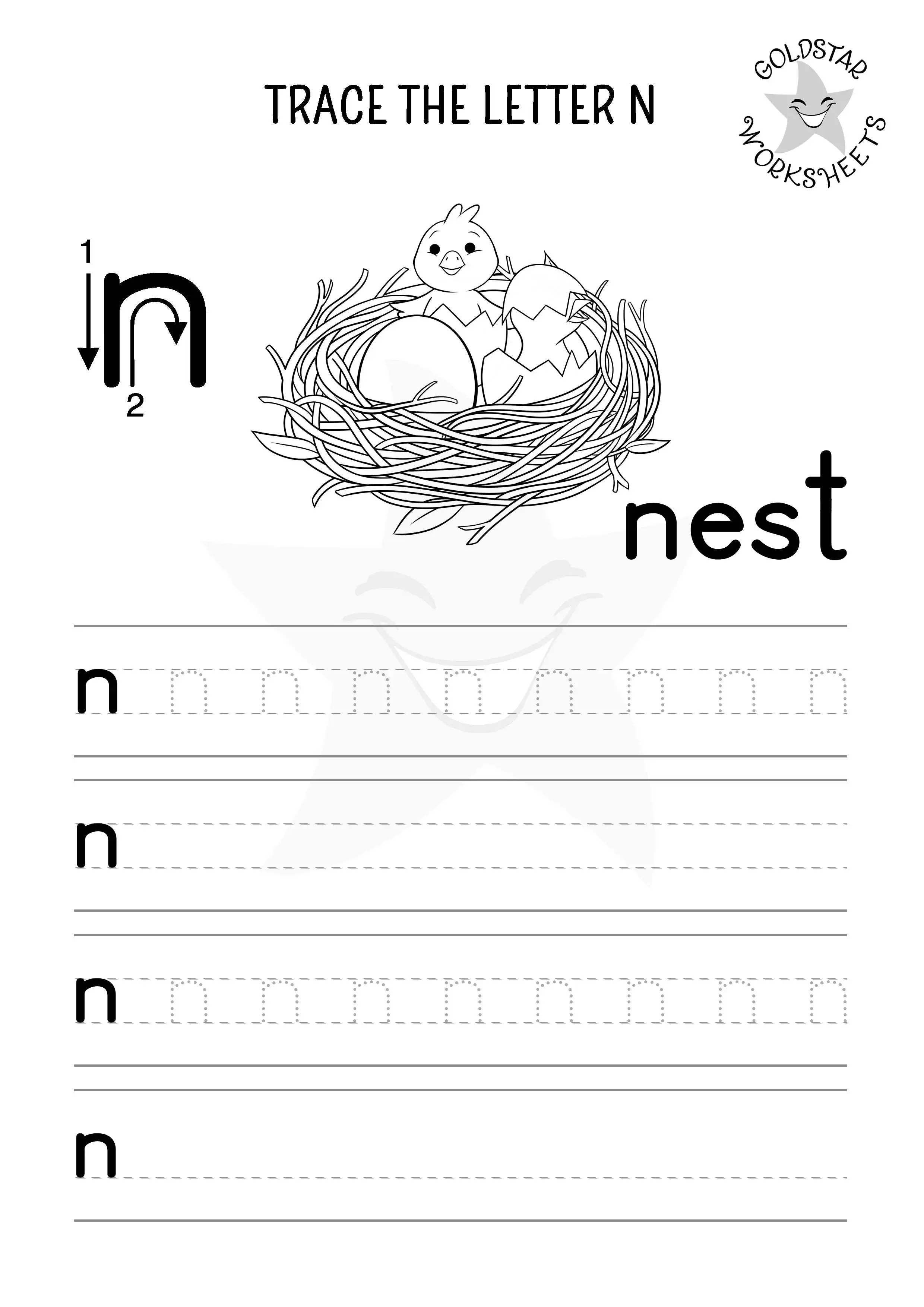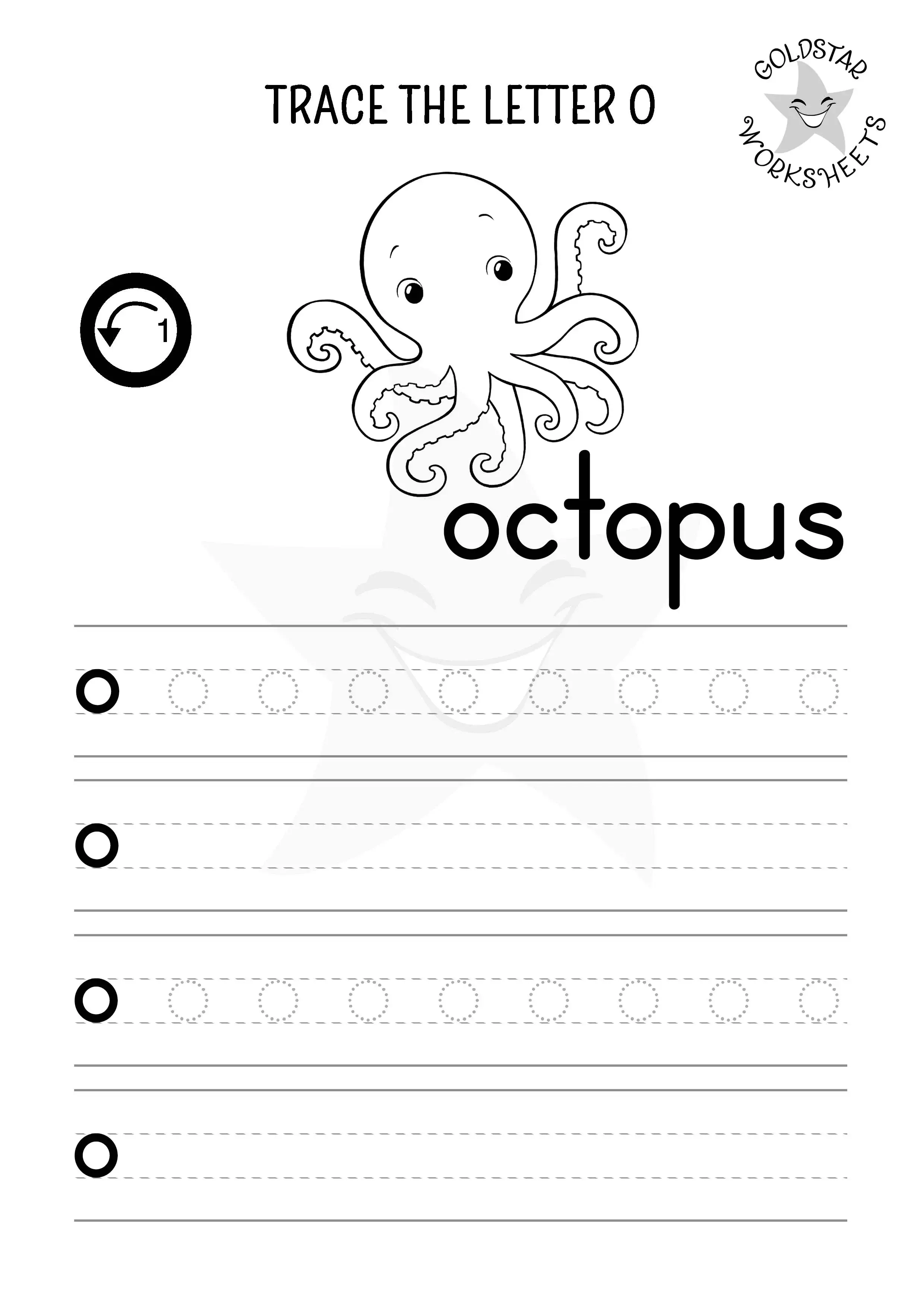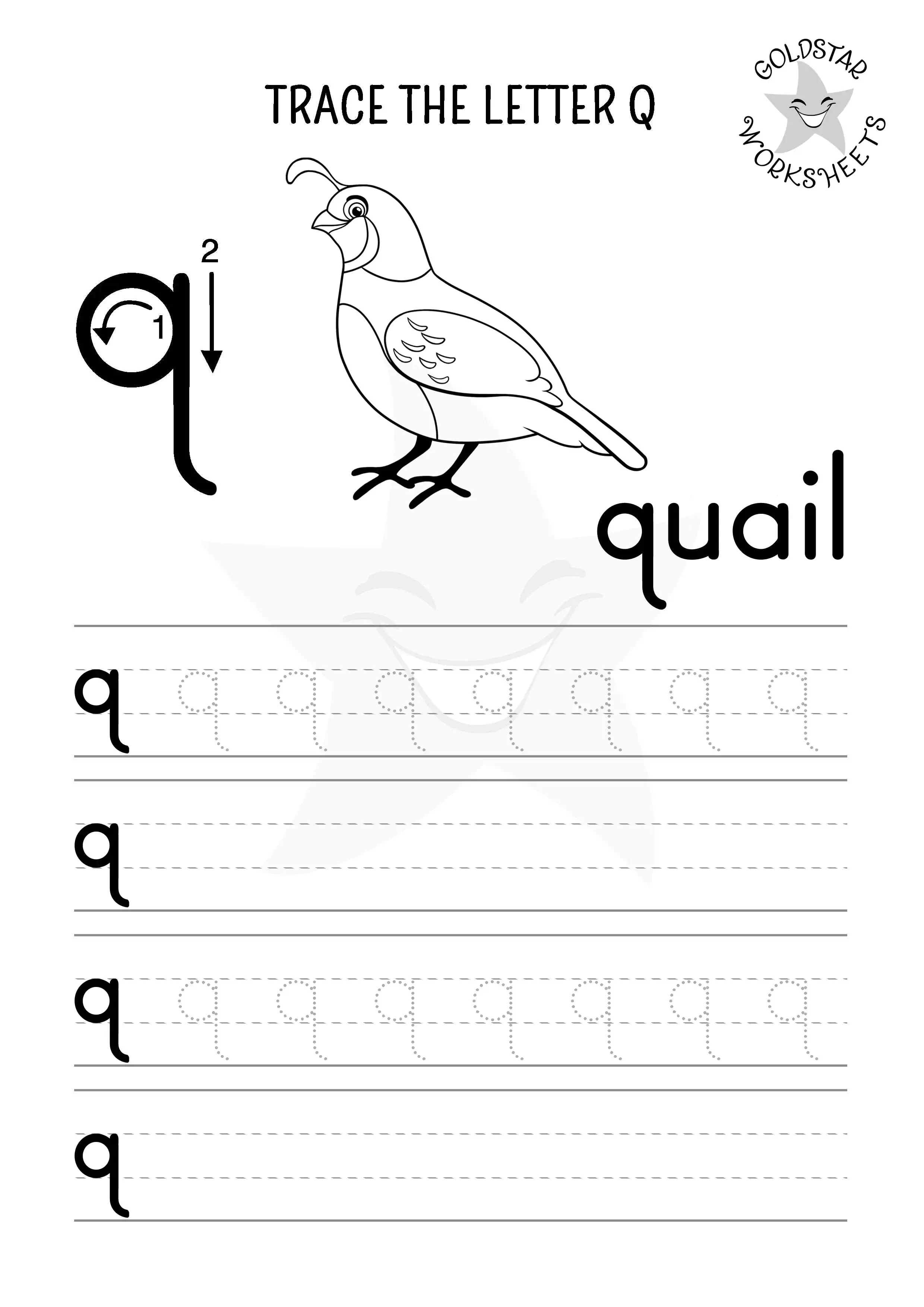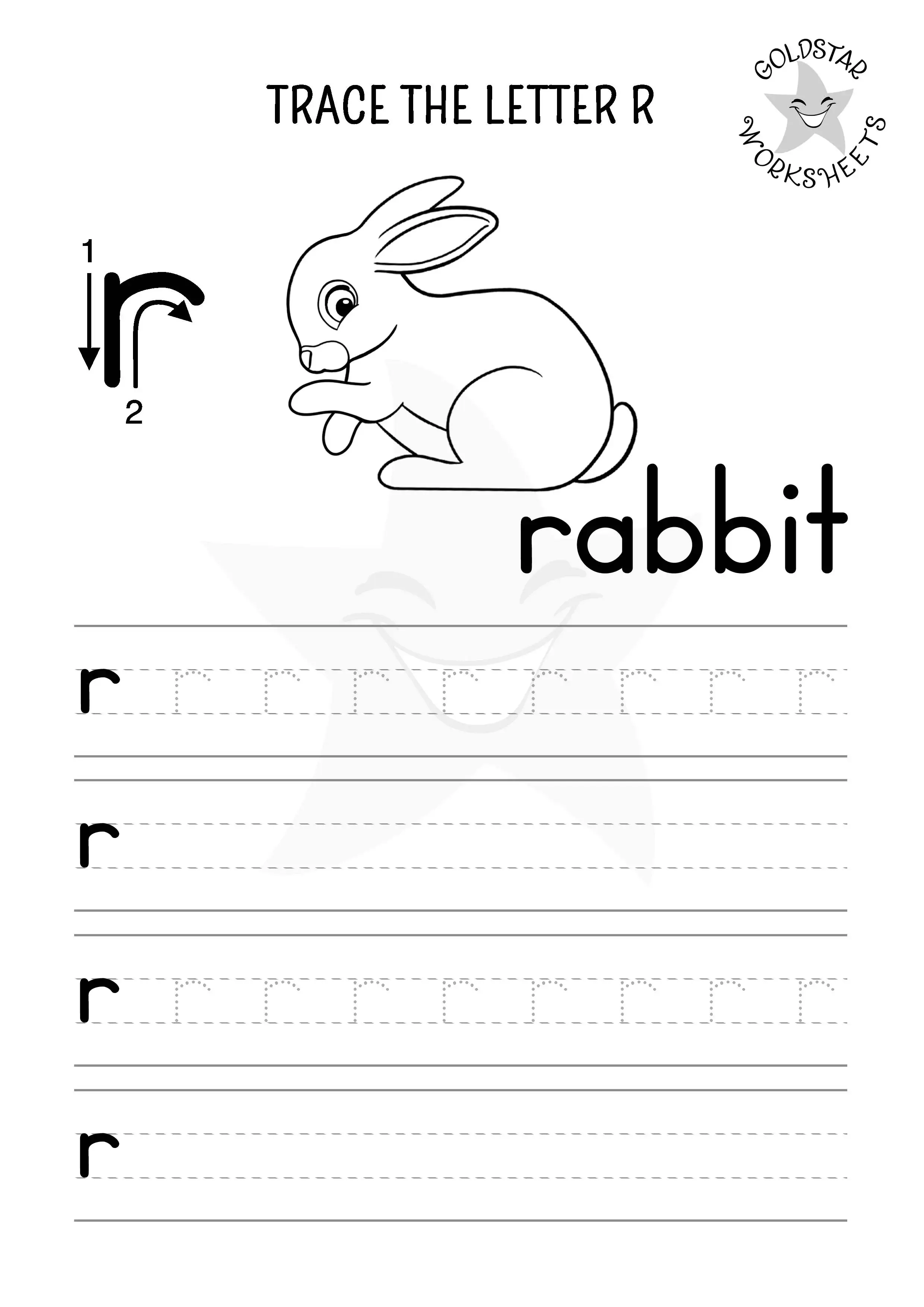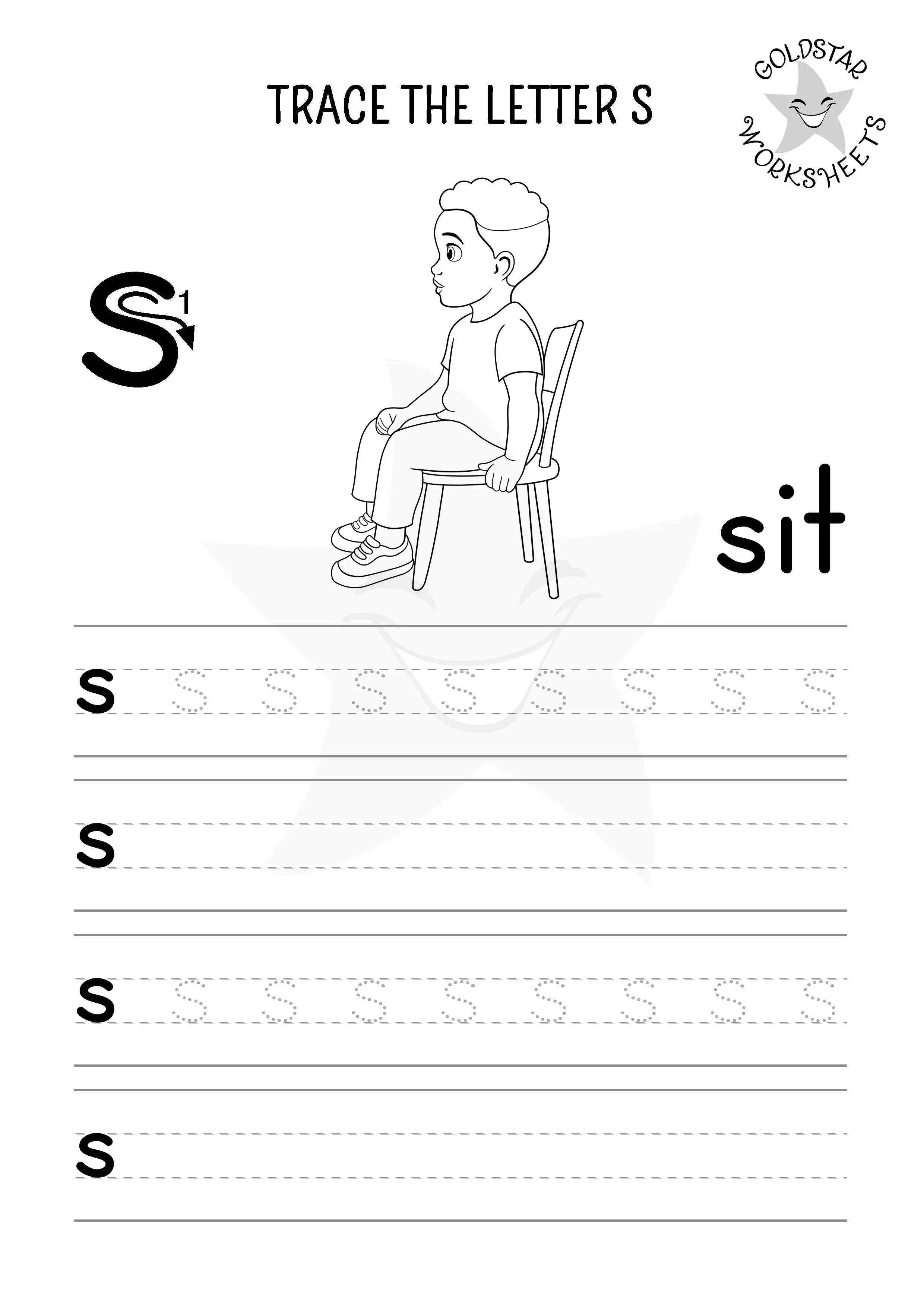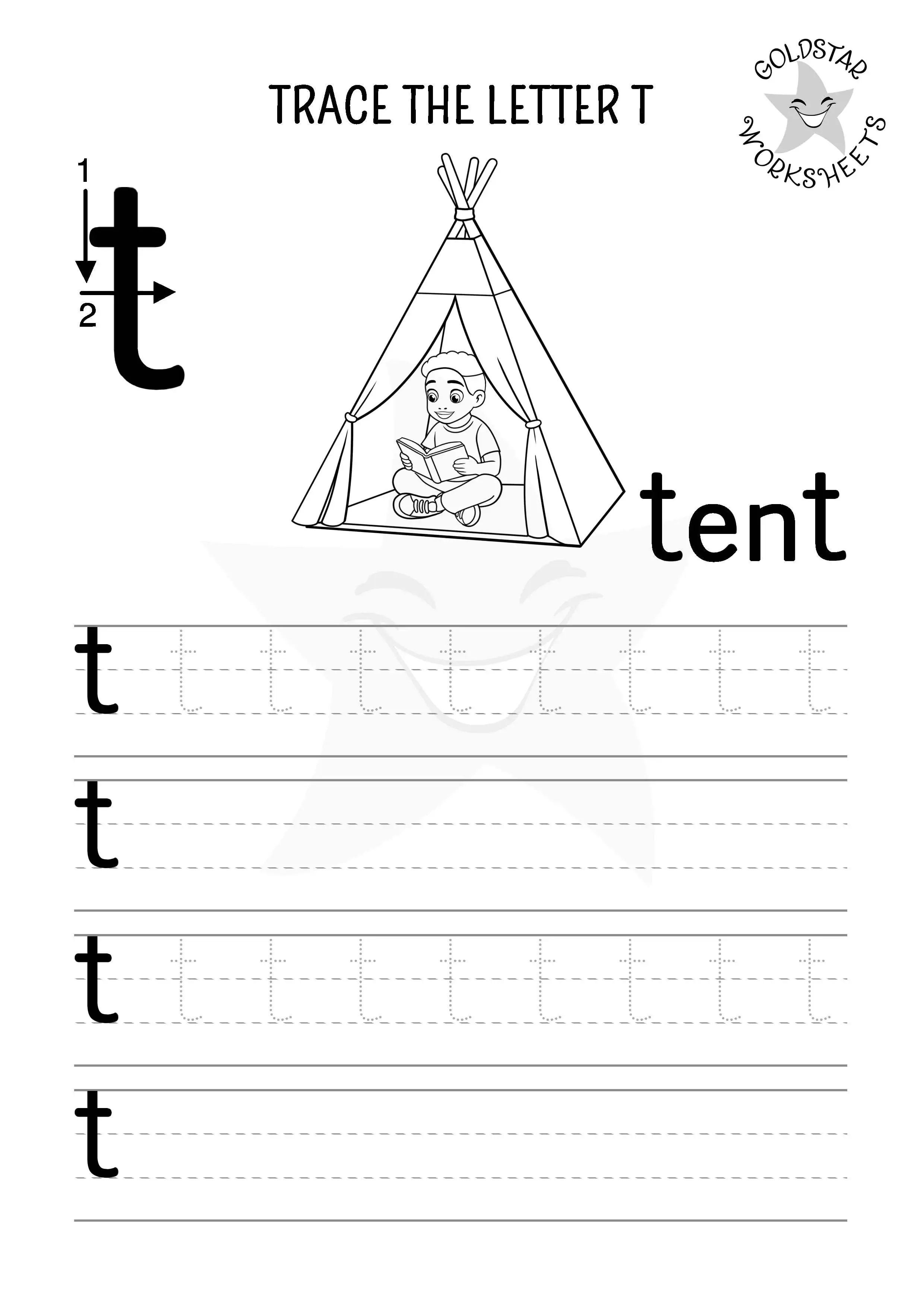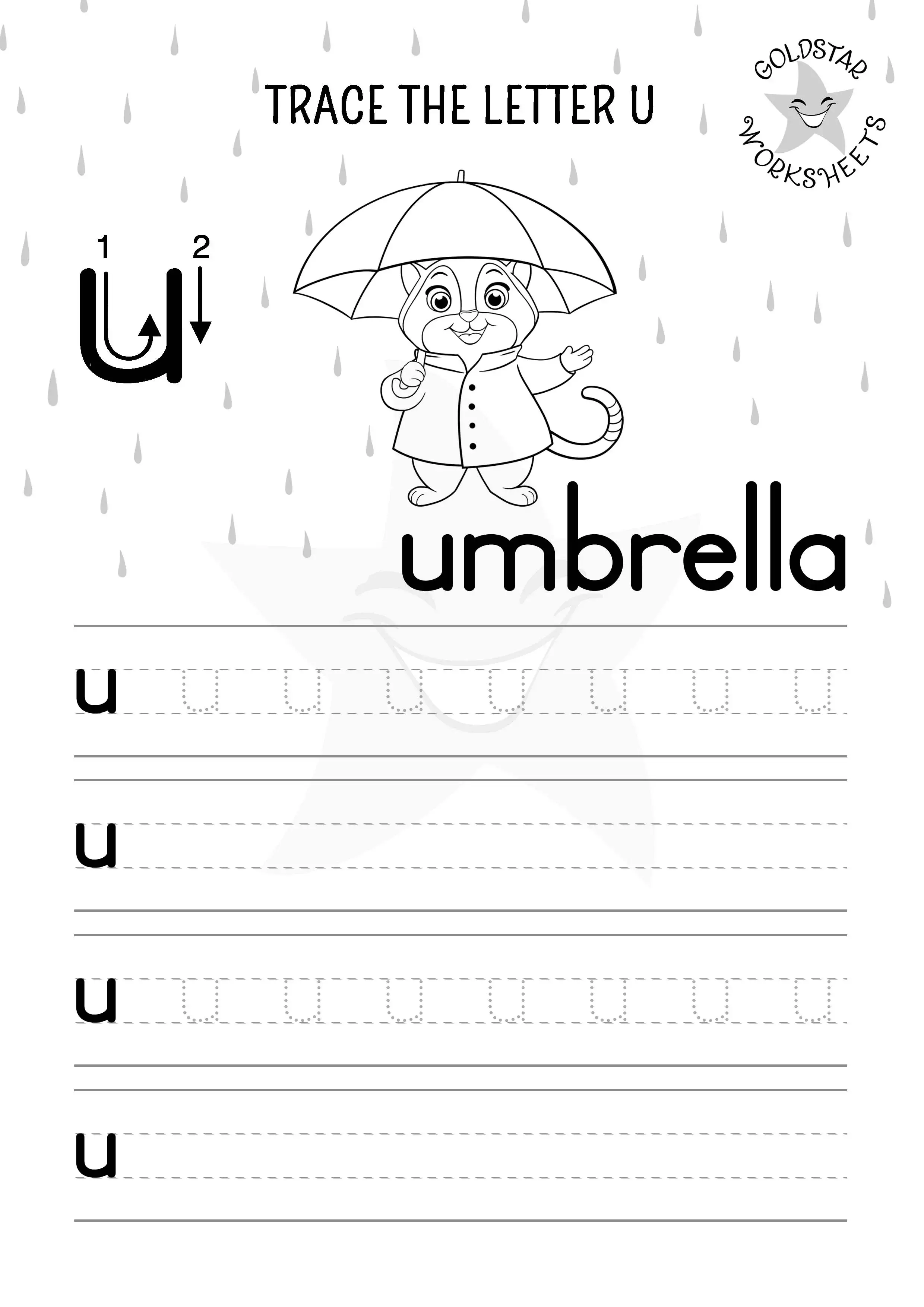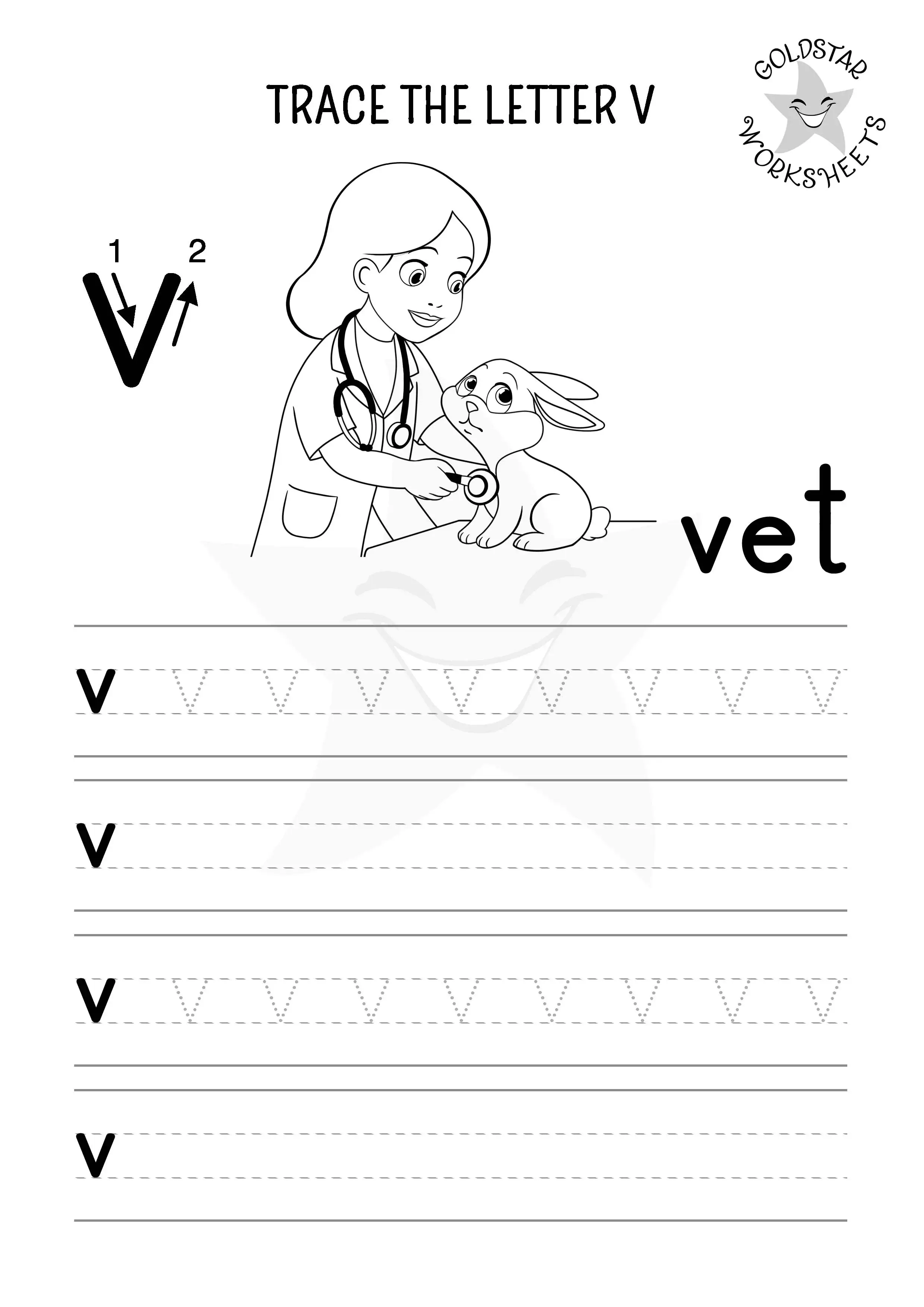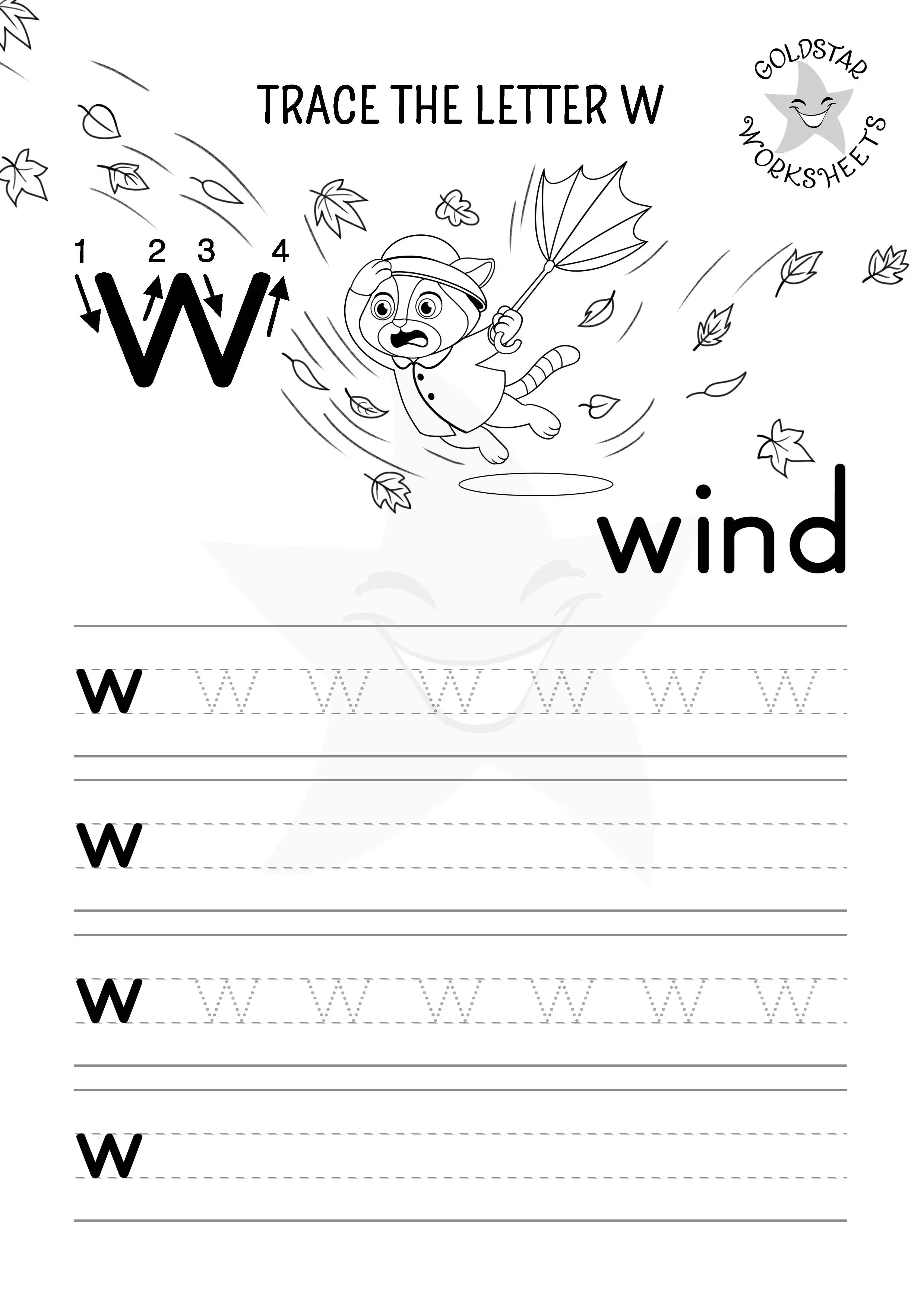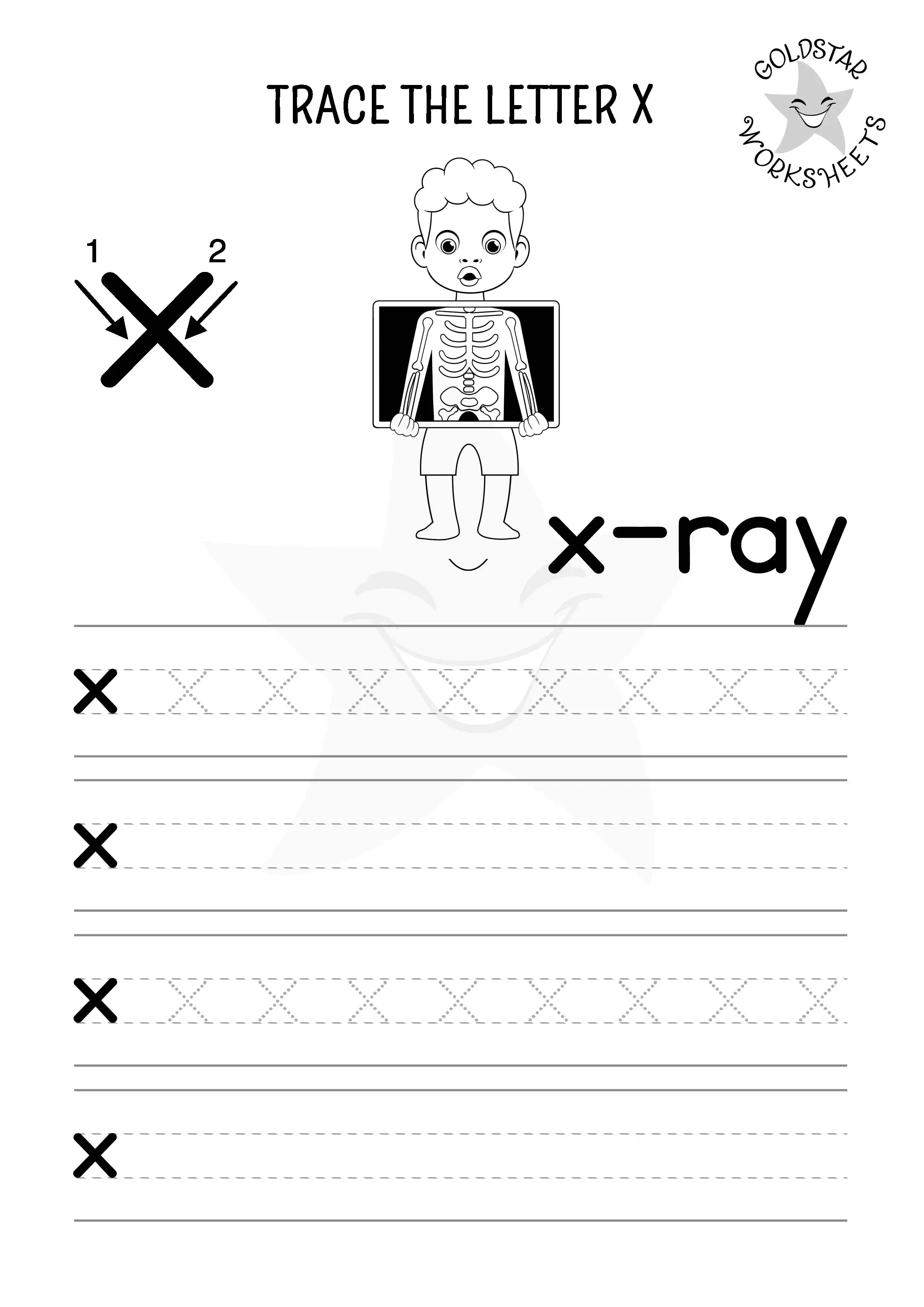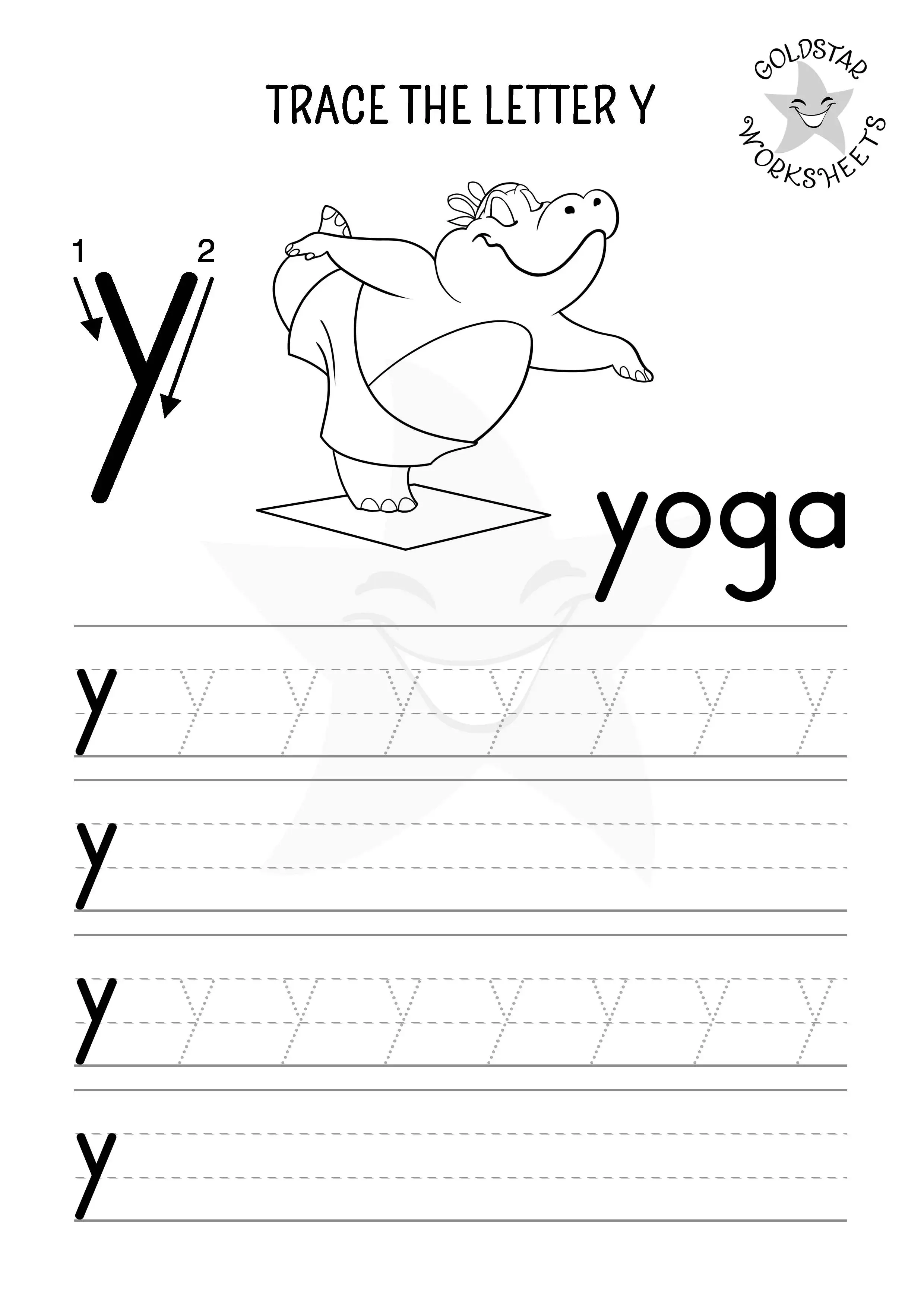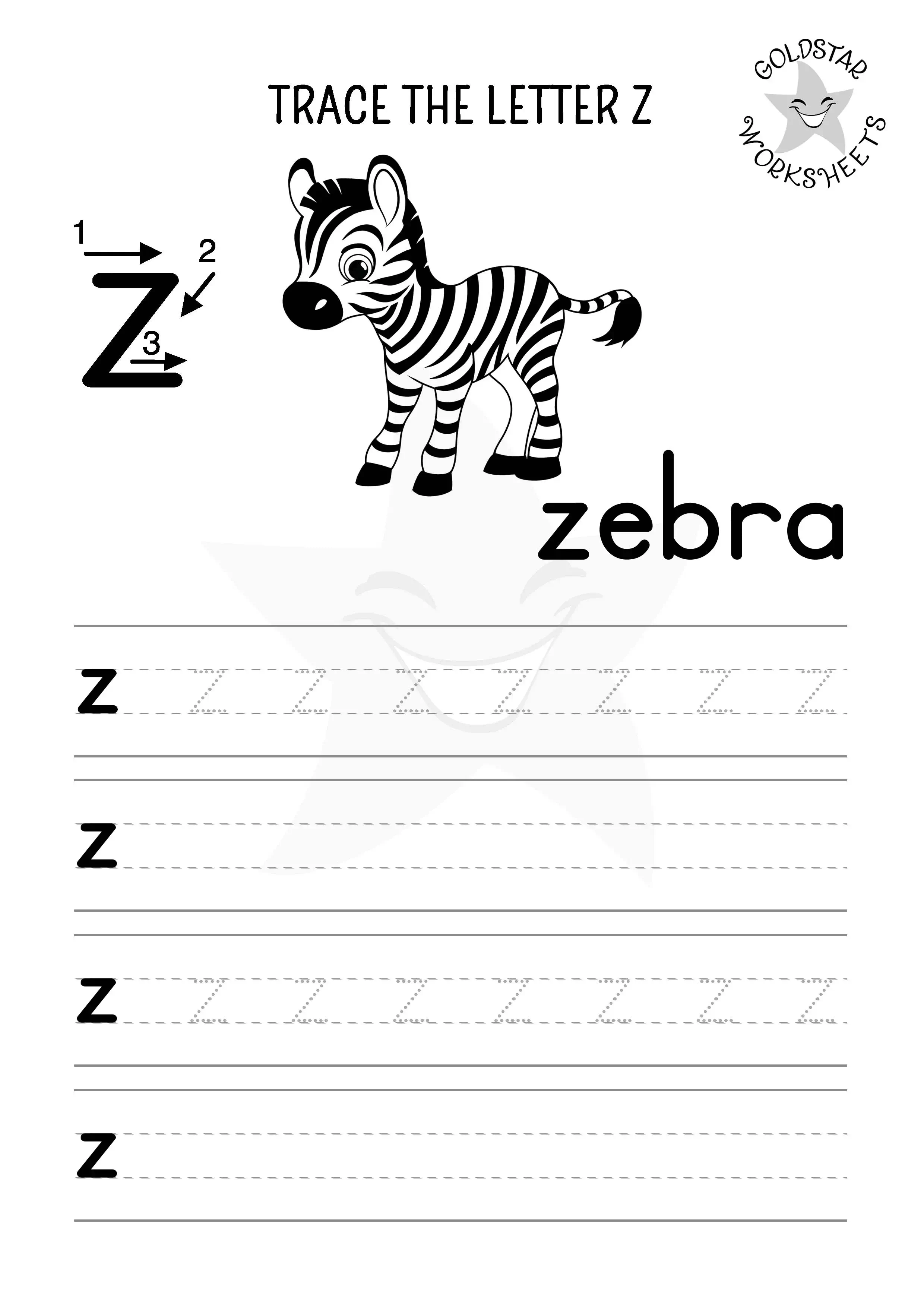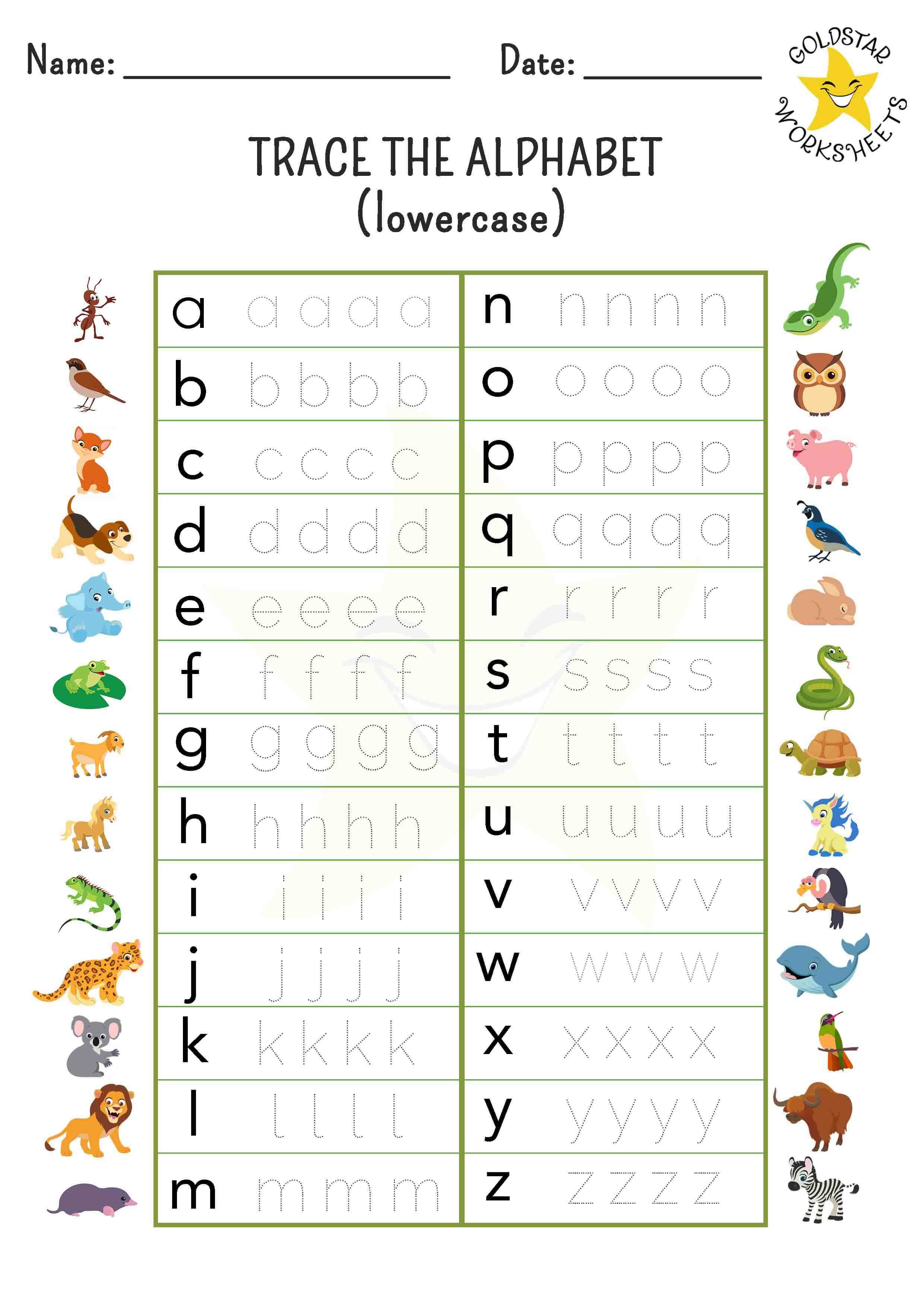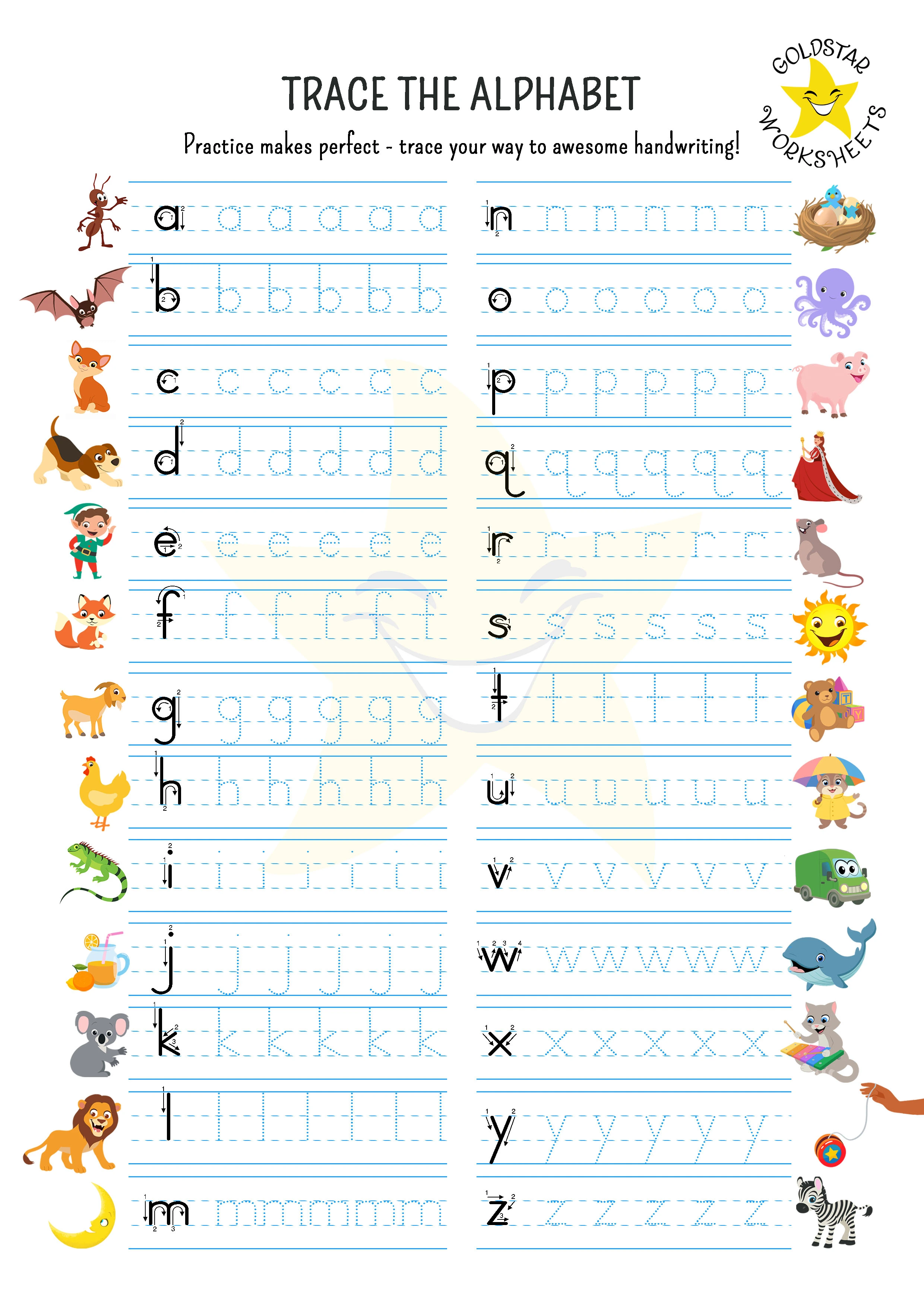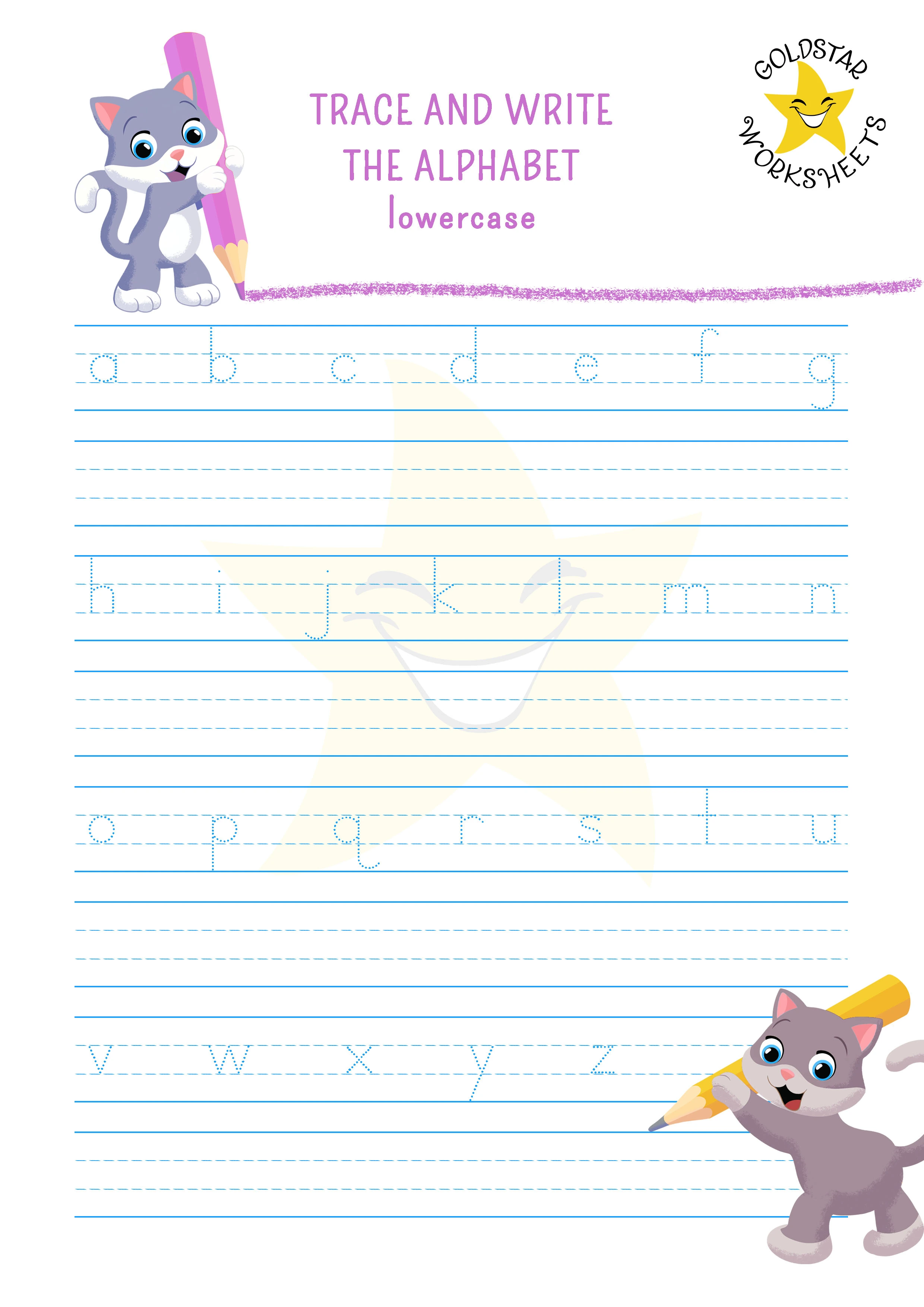- Home
- Free Letter Tracing Worksheets
- Lowercase
Over 100 Free Lowercase Letter Tracing Worksheets - Fun Alphabet Practice
Help little learners build confidence with 100+ engaging lowercase letter worksheets! From tracing to coloring and writing, these no-prep printables make alphabet practice fun—and they’re completely free to download. Ideal for preschool, kindergarten, and early writers.
What’s Included?
Jump to your preferred worksheet type below for the full A-Z lowercase set.
Wondering which type of worksheet to start with? Or about the best letter order?
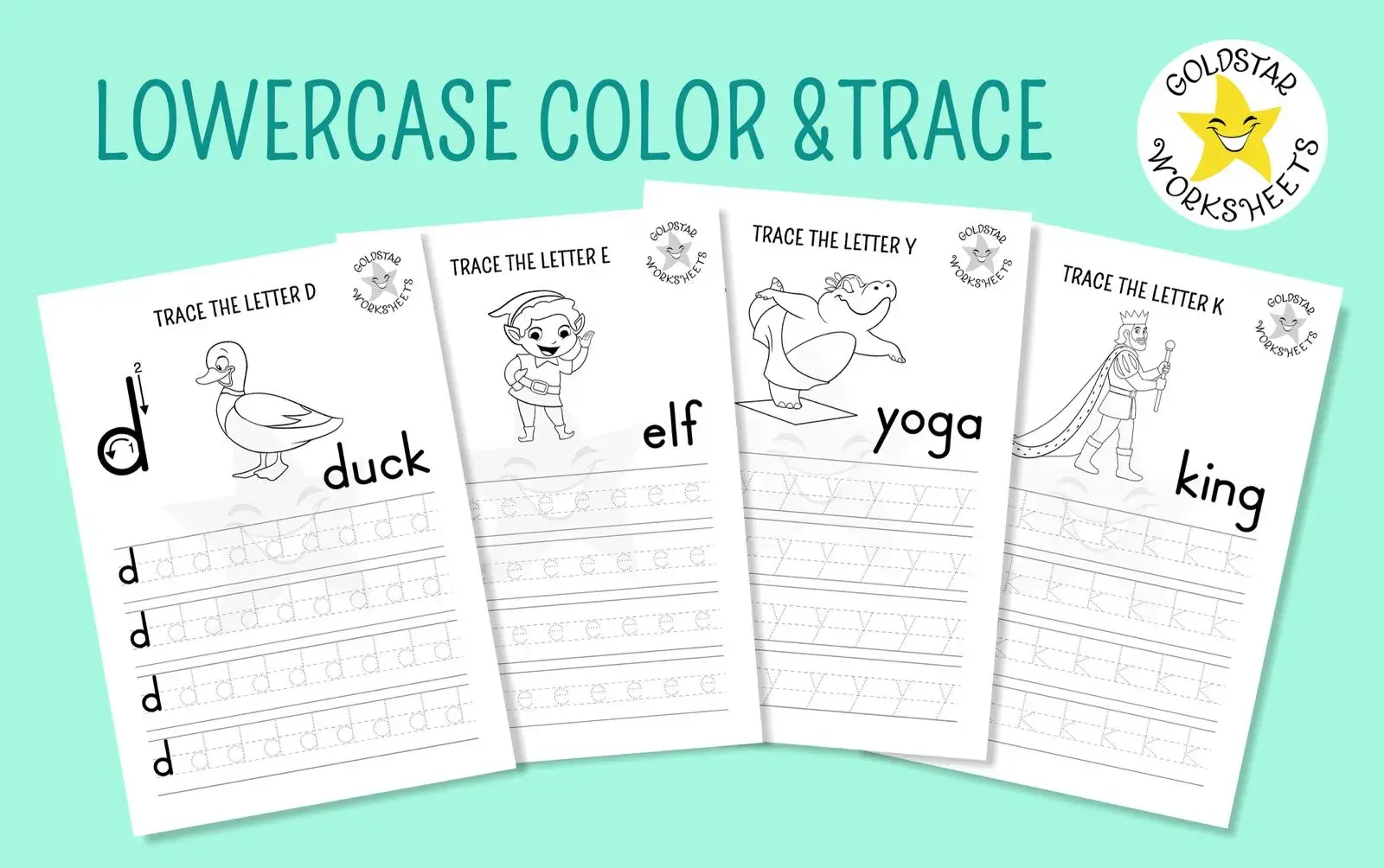
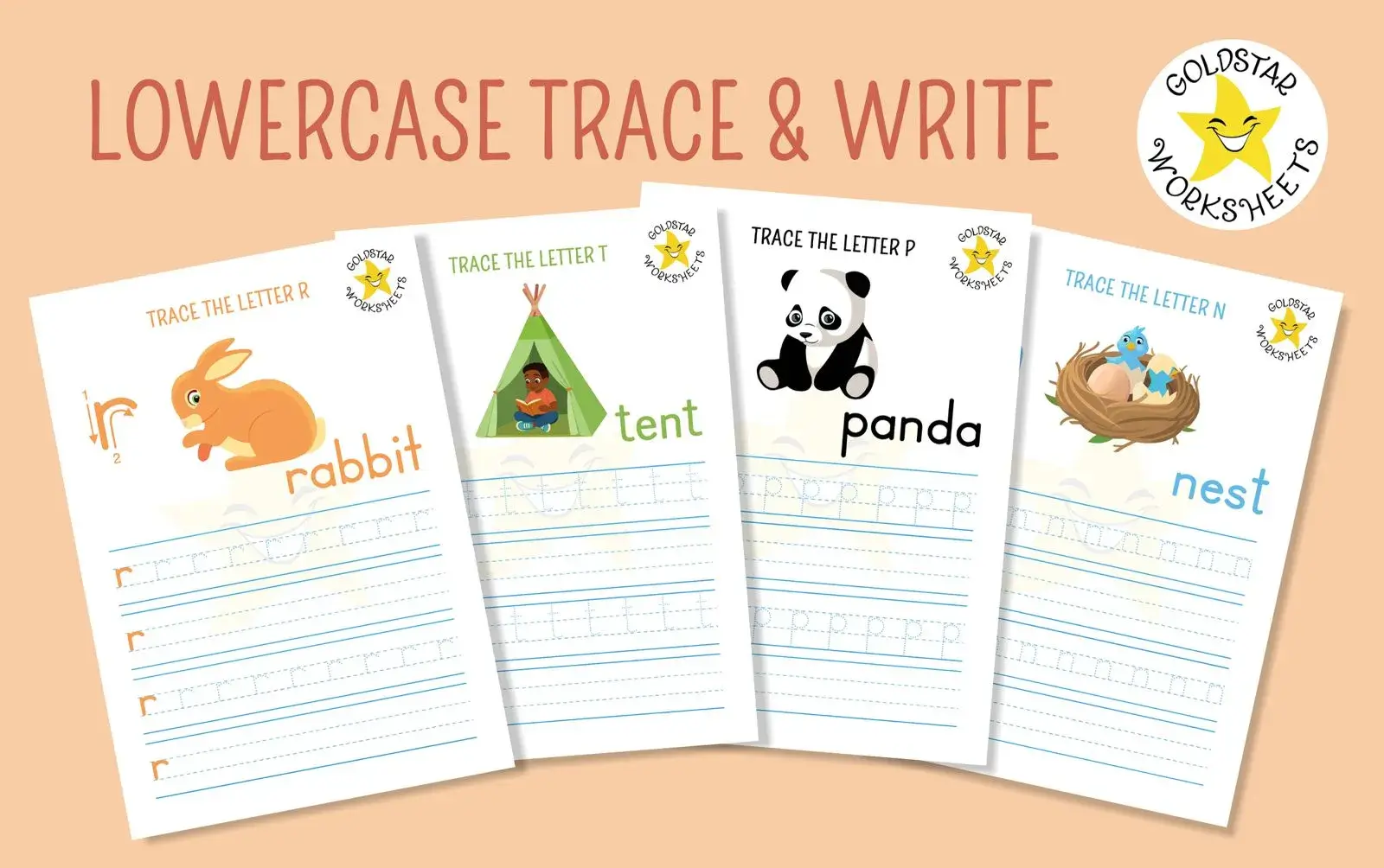
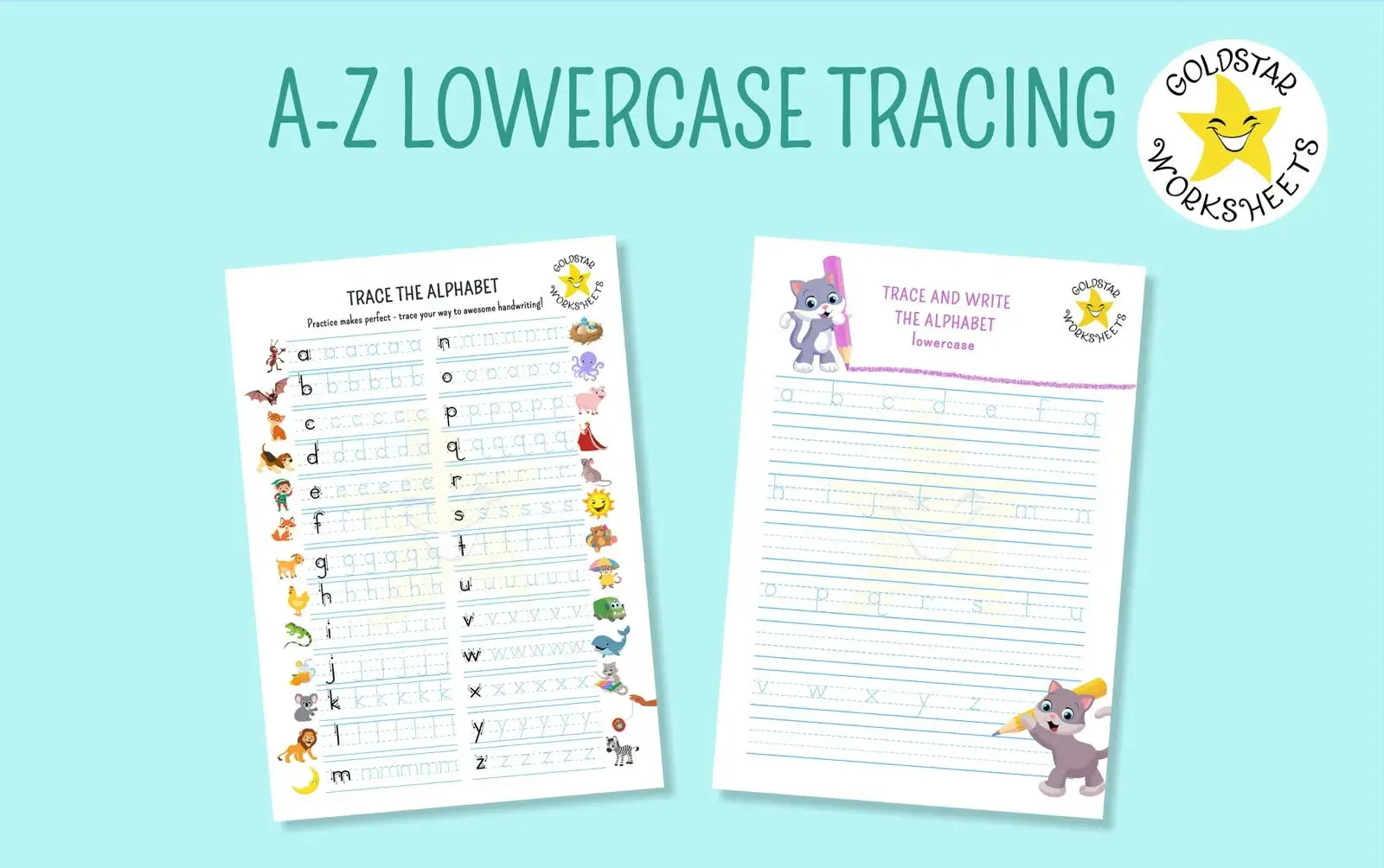
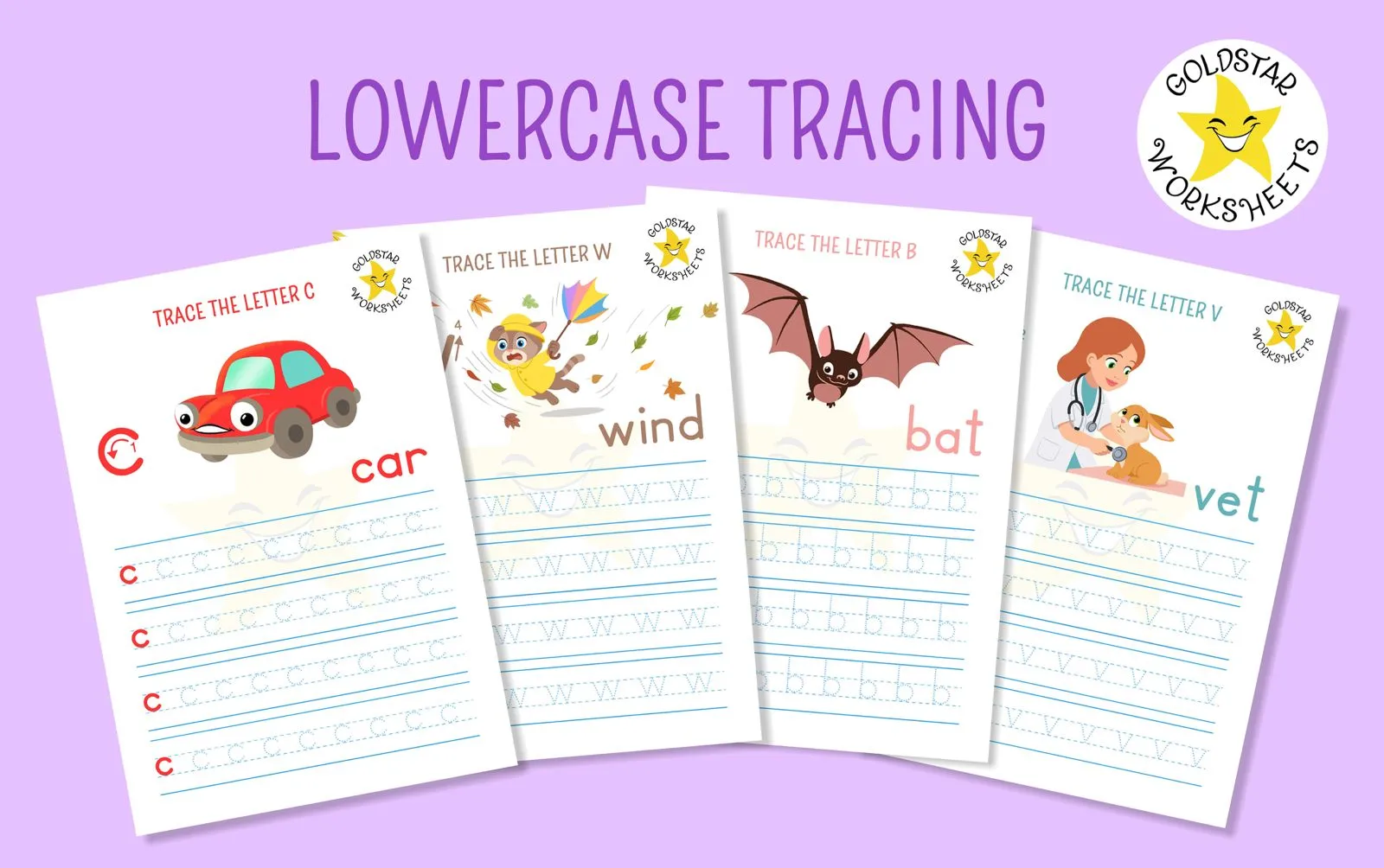
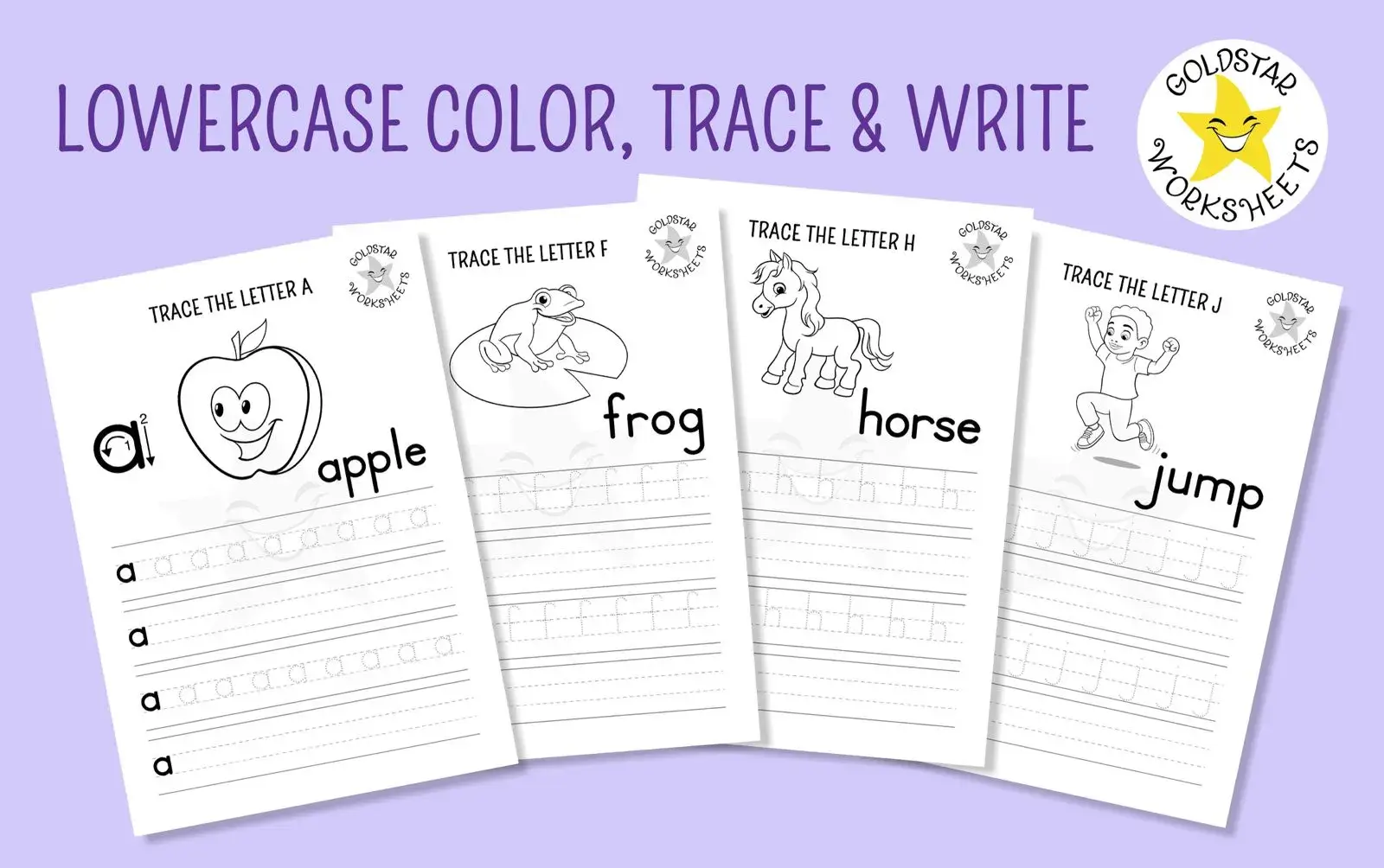
Trace and Color Lowercase Letter Worksheets (a-z)
These engaging alphabet activity sheets make lowercase letter practice more interesting by combining essential tracing exercises with calming coloring!
Each worksheet features four lines of lowercase letters for children to trace, followed by a fun illustration to color that reinforces the letter's sound (like "b" for bat or "m" for moon). This multi-sensory approach keeps young learners motivated while they develop fine motor skills, letter recognition, and phonemic awareness.
Lowercase Letter Tracing Only Worksheets (a-z)
These 26 fun and engaging lowercase tracing pages give beginner writers the perfect foundation for mastering small letters. Each of the worksheets feature a clear stroke order and directional arrows, helping children develop essential pre-writing skills through repetition.
The minimalist designs – lets young learners concentrate fully on the task at hand. Ideal for late preschool, pre-k and kindergarten - children typically use these after learning uppercase. Whether at home or in the classroom, print as many copies as you need.
Trace and Write Lowercase Letter Worksheets (a-z)
These printable PDF lowercase worksheets help kids bridge the gap between tracing and independent writing!
Each sheet features dotted lowercase letters for guided practice, followed by blank ruled lines for children to write the letter themselves—perfect for developing handwriting skills and building confidence.
The clear guidelines reinforce proper stroke order while giving learners room to practice freehand letter writing, making it ideal for pre-k, kindergarten, and early writers transitioning to self-directed writing.
Trace, Write, and Color Lowercase Worksheets (a-z)
These 3-in-1 alphabet sheets, most suited to pre-k and kindergarten, make letter practice fun and engaging! Kids:
1️⃣ Trace dotted letters with guiding arrows
2️⃣ Write independently on ruled lines
3️⃣ Color fun pictures that match each letter sound
Perfect for:
• Building writing confidence
• Reinforcing letter-sound connections
• Developing fine motor skills
The ideal blend of learning and fun for classrooms or home use!
A-Z Lowercase Letter Tracing on a Single Page
Get complete alphabet practice in one convenient sheet! We offer three versions to suit different skill levels:
1️⃣ Basic Tracing – Simple dotted letters for focused formation practice
2️⃣ Guided Sizing – Includes ruled lines to help maintain proper letter proportions
3️⃣ Trace & Write – Combines tracing with blank guidelines for independent writing
Perfect for:
• Quick letter formation assessments
• Portable practice (great for on-the-go learning!)
• Progress tracking as skills improve
All three versions feature clear, beginner-friendly fonts and fun engaging animals to help kids build writing confidence!
Recommended Order of Lowercase Tracing Worksheets
Learning lowercase letters requires progressive practice—from simple tracing to independent writing. There are many different and valid opinions when it comes to which case and which letters to do first and second etc... each with their pro's and con's. Here’s our recommended sequence to build confidence and mastery:
| Worksheet Type | Description | Suggested Age | Key Focus |
|---|---|---|---|
| Lowercase Letter Tracing Worksheets | |||
|
Lowercase Tracing-only Lowercase Tracing and Coloring |
Start with similar-to-uppercase letters (c, o, s) | 4-4.5 years | Understanding size variations and new shapes |
| Lowercase A-Z Tracing on One Page | Full lowercase alphabet practice | 4.5-5 years | Grasping lowercase as a complete system |
|
Lowercase Tracing & Writing Lowercase Trace, Color and Write |
Independent lowercase writing | 5 years | Precision in smaller letter forms |
| Lowercase A-Z Tracing & Writing on One Page | Complete lowercase mastery | 5-5.5 years | Fluency in lowercase writing |
Lowercase Writing Tips:
- Focus first on letters with similar uppercase shapes (c, o, s, v, w, t)
- Use highlighted baseline to help with proper letter placement
- Try magnifying glasses to help children see small details
- Click any worksheet type to access that specific set
What's the Best Lowercase Order?
While there isn't a single universally prescribed order for lowercase letter writing order, a developmental approach that groups letters by similar strokes is often recommended. This approach can make the learning process more intuitive and efficient.
Here's a suggested order based on The Handwriting Without Tears® approach:
| Phase | Letters | Why & Notes |
|---|---|---|
| Phase 1: "Easy Starters" | c, o, s, v, w, t | These mirror their uppercase counterparts and use basic strokes (no reversals yet!). |
| Phase 2: "Magic C Letters" | a, d, g | Starting with "c" helps differentiate b/d confusion later. Note: "q" is intentionally taught later to avoid mixing it up with "g." |
| Phase 3: "Remaining Vowels" | u, i, e | Completes the vowel set for writing simple words (e.g., "cat," "sit"). |
| Phase 4: "Familiar Friends" | l, k, y, j | These resemble their uppercase forms, making them easier to recall. |
| Phase 5: "Diving Letters" | p, r, n, m, h, b | Teaches the "diving" motion (top-to-bottom strokes). |
| Phase 6: "Tricky Leftovers" | f, q, x, z | "f" has a unique stroke, while "q" and "z" appear less frequently. |
| Bonus: "Drop-Down Letters" | j, g, p, q, y | Teach Last! These require special attention to tail placement below the line. |
Why This Order Works:
- Prevents reversals by separating similar letters (b/d, p/q)
- Builds motor skills progressively from simple to complex
- Aligns with early literacy needs (vowels first for word-building)
Frequently Asked Questions
1. Are these worksheets really free to use in classrooms?
1. Are these worksheets really free to use in classrooms?
Yes! All worksheets are 100% free for teachers, parents, and homeschoolers. Print as many copies as you need—no limits or hidden fees.
2. Do I need to create an account to download?
2. Do I need to create an account to download?
No account required! Click any worksheet, and the PDF will download instantly.
3. Can I share these with other teachers?
3. Can I share these with other teachers?
Yes, please feel free to.
4. Why teach lowercase after uppercase?
4. Why teach lowercase after uppercase?
Uppercase letters are easier for beginners because:
✔ Simpler starting points: Only 2 pencil starting positions (top or middle) vs. 7 in lowercase
✔ No reversals: Eliminates confusion between b/d, p/q, etc.
✔ Similar sizes: All letters sit on the same baseline and top line
5. Do I need special software to open the files?
5. Do I need special software to open the files?
No—just a PDF reader (like Adobe Acrobat or your browser) to view and print them.
6. What’s the difference between the "trace-only" and "trace-and-write" worksheets?
6. What’s the difference between the "trace-only" and "trace-and-write" worksheets?
- Trace-only: Focuses on letter formation with dotted outlines.
- Trace-and-write: Guides tracing first, then provides blank lines for independent writing.
7. What age group are these worksheets designed for?
7. What age group are these worksheets designed for?
While children typically begin with uppercase letters (ages 3-4), our lowercase worksheets are developmentally appropriate for:
• Ages 4-5 (Pre-K): When children start transitioning to lowercase
• Ages 5-6 (Kindergarten): For mastering proper lowercase formation
• Older children (7+): Who need handwriting remediation or ESL practice
*Note: It's a good idea to try and follow the child's skill level rather than chronological age - some advanced 3-year-olds enjoy these, while some 1st graders may still need them.*
8. Do these worksheets follow the "Handwriting Without Tears" method?
8. Do these worksheets follow the "Handwriting Without Tears" method?
While not officially affiliated, our stroke order and simple fonts align with HWT principles.
9. Are there uppercase versions available too?
9. Are there uppercase versions available too?
Yes! Here they are - Uppercase tracing worksheets (A-Z)
10. How can I make tracing more engaging?
10. How can I make tracing more engaging?
Try and get creative by:
- Add rewards (stickers for completed rows)
- Use colored markers for rainbow tracing
- Sing letter sounds while writing
Looking for One Specific Letter?
Prefer worksheets focused on a single letter? Visit our letter selector and click any letter button (a-z) to find dedicated tracing activities for that character.
🌟 Save Time with Our Full Letter Tracing Bundle!
Love these free lowercase worksheets? Get 300+ premium tracing pages (A-Z + a-z) in one click with our Complete Letter Tracing Bundle! This all-in-one pack includes:
- All worksheet types (trace-only, write & color, A-Z single pages, etc.)
- Uppercase + lowercase + mixed case for complete A-Z mastery
- Print-ready PDFs—no downloading individual files!
Perfect for teachers, parents, and homeschoolers!
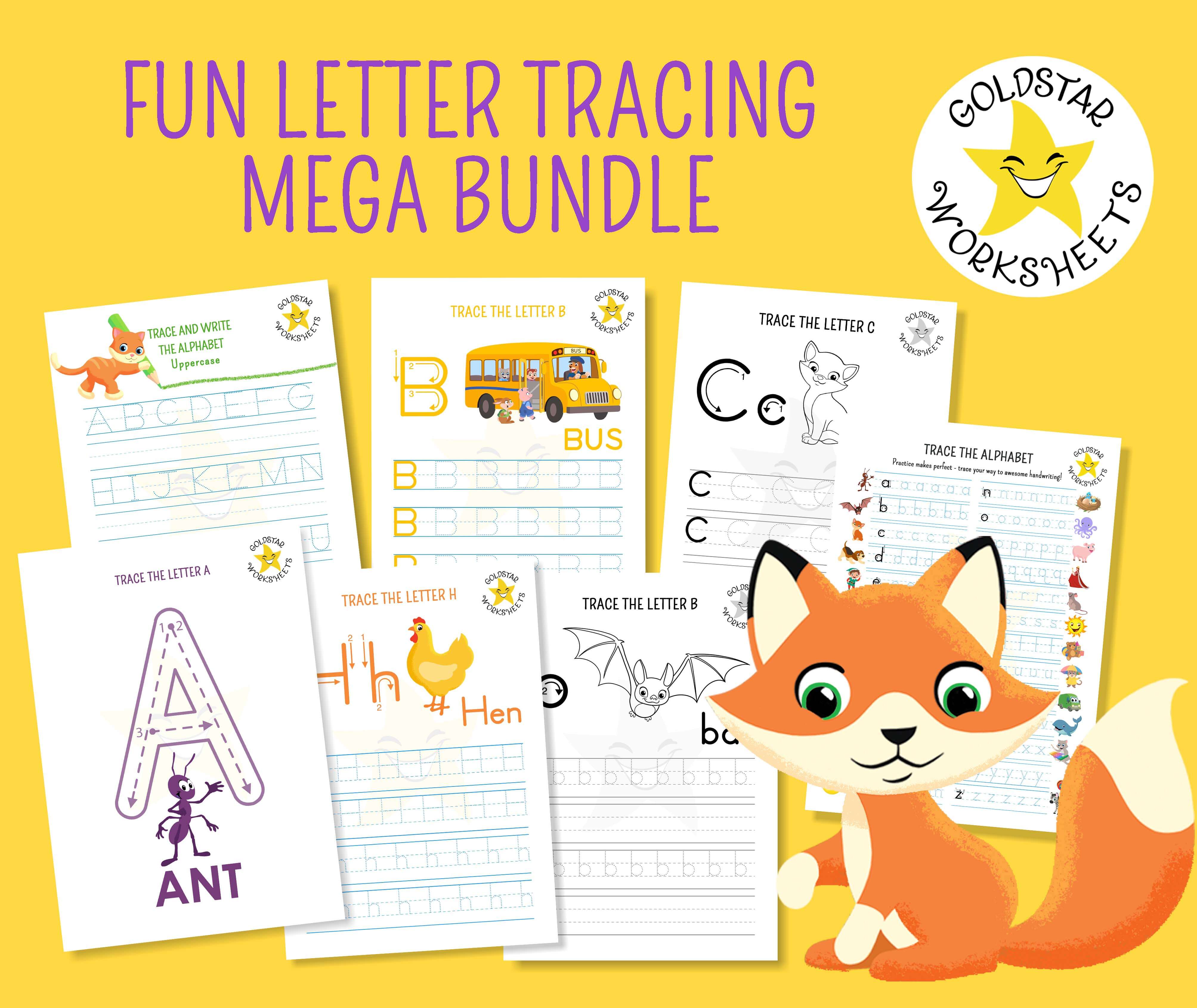
Let’s Start Tracing!
Whether you’re teaching at home or in a classroom, our free lowercase tracing worksheets make letter practice simple and fun. Download what you need today, or save time with our Complete A-Z Tracing Bundle for the ultimate handwriting resource. Happy learning!
- Home
- Free Letter Tracing Worksheets
- Lowercase
